Shows
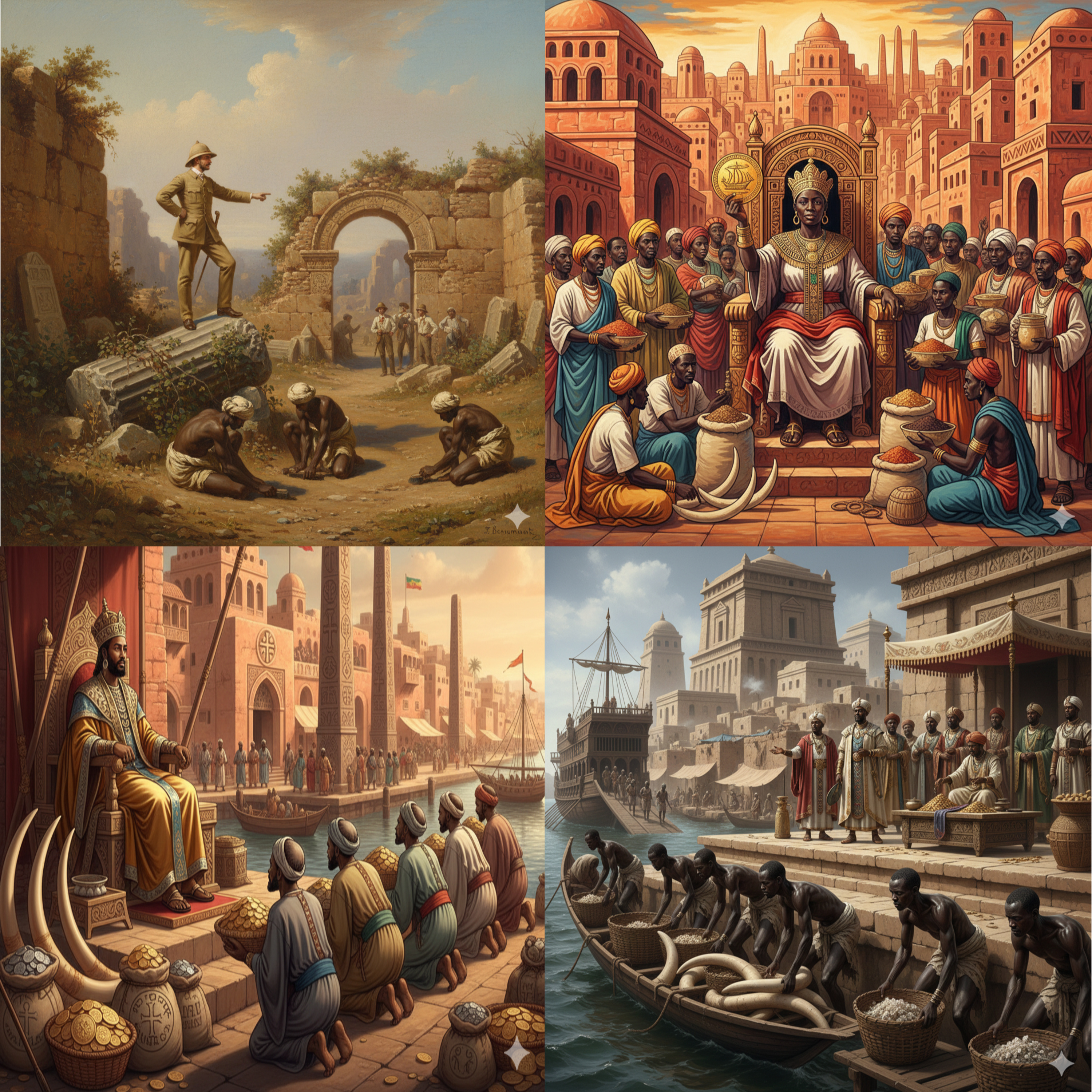
The Other Side of EritreaAdulis, Conclusion, Chapter 7Adulis, Conclusion, Chapter 7.The political economy of the ancient port city of Adulis in the Northern Horn of Africa during the Classical Age (1000 BCE–700 CE). The author argues against the prevailing Aksumite model, which asserts that Aksum dominated the regional world economy, instead proposing the Adulis model, which positions Adulis as an autonomous center within a network of power dynamics. The research supports this new model by analyzing extensive material data, including the hierarchical built forms at Adulis, the concentration of ancient coins suggesting Adulis was a tribute collector, and its strategic role in war elephant production an...
2025-12-0312 min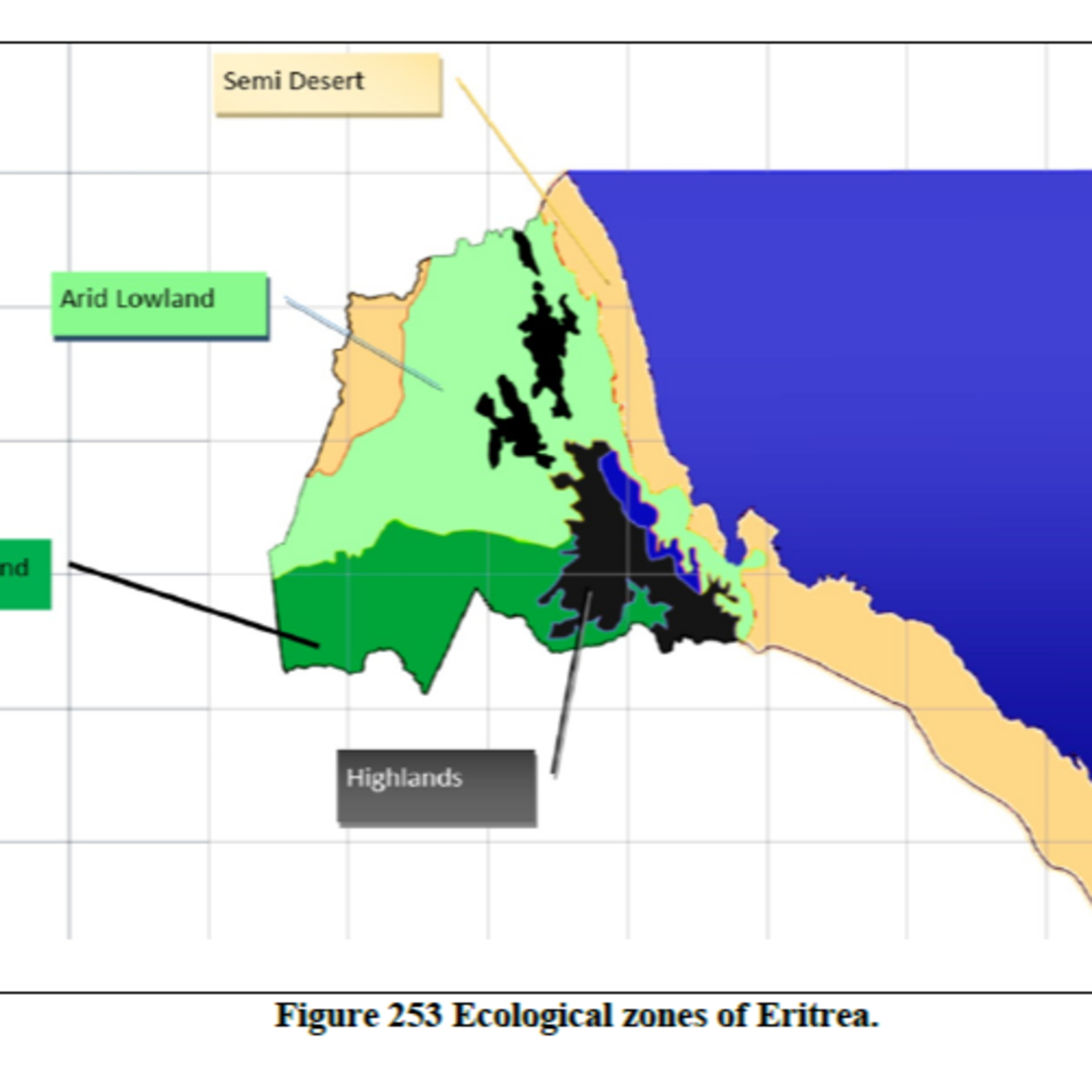
The Other Side of EritreaAromatic Trade At Adulis Chapter 6Aromatic Trade At Adulis Chapter 6Adulis, the ancient Red Sea trade in aromatics, focusing specifically on the highly valued resins frankincense and myrrh, which were considered necessities for religious and medicinal practices in antiquity. The chapter concentrates on the pivotal role of Adulis and its connection to the ancient trade partner of Egypt, the legendary land of Punt. Utilizing a combination of archaeological, botanical, and textual evidence, the analysis refutes earlier suggestions and argues that Punt was most likely located along the East Sudan and Eritrean coast. The author also addresses the historical debate regarding the route...
2025-12-0215 min
The Other Side of EritreaProduction Of War Elephants at Adulis Chapter 5Production Of War Elephants at Adulis Chapter 5: Adulis was the primary center for the production of African war elephants (Laxodonata cyclotis) used by major polities during the classical era. The analysis first details how these highly intelligent, non-domesticated animals required a resource-intensive, cooperative process involving specialized mahouts, making capture and training more practical than breeding. Supporting this central assertion, the text examines newly developed taxonomic analysis identifying the specific forest elephant species utilized in combat, which was once abundant in the Adulis region. Further archaeological and material evidence—including ivory artifacts, elephant-skin-wrapped mummies, and protective graduated masonry architecture—is pres...
2025-12-0115 min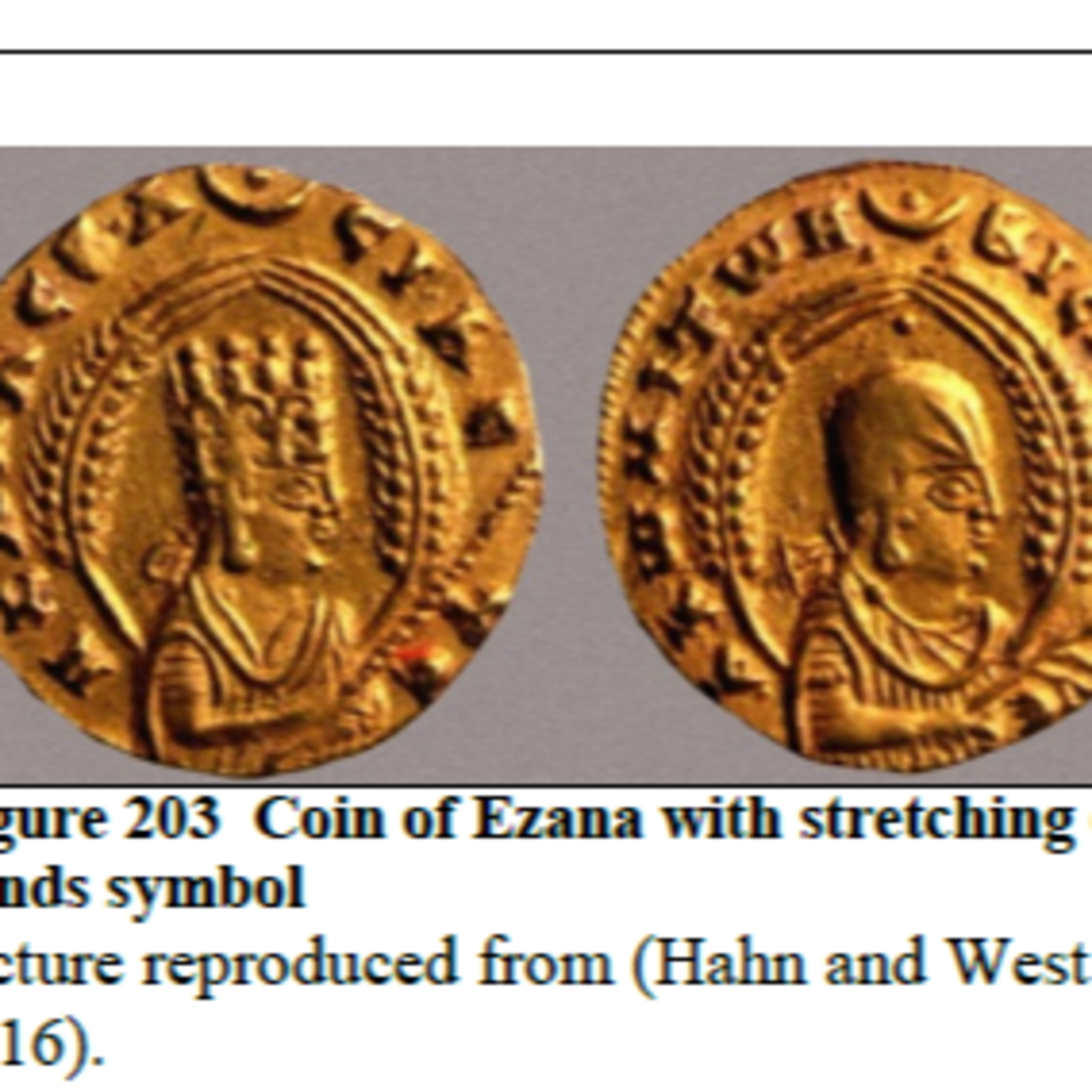
The Other Side of EritreaAssessing Critical Artifacts at Adulis Chapter 4Assessing Critical Artifacts at Adulis Chapter 4 examines critical archaeological artifacts from the site of Adulis to challenge the assumption that the city was merely a port dominated by Aksum, arguing instead that Adulis was a central power in the ancient world economy. The analysis focuses on three key data sets that support this thesis, beginning with the circulation patterns of coinage, where the discovery of roughly 70% of all known Northern Horn of Africa (NHA) currency at Adulis suggests the city was the region's primary economic engine. Furthermore, the Throne of Adulis (MA-II) is discussed as a unique and technologically...
2025-11-3010 min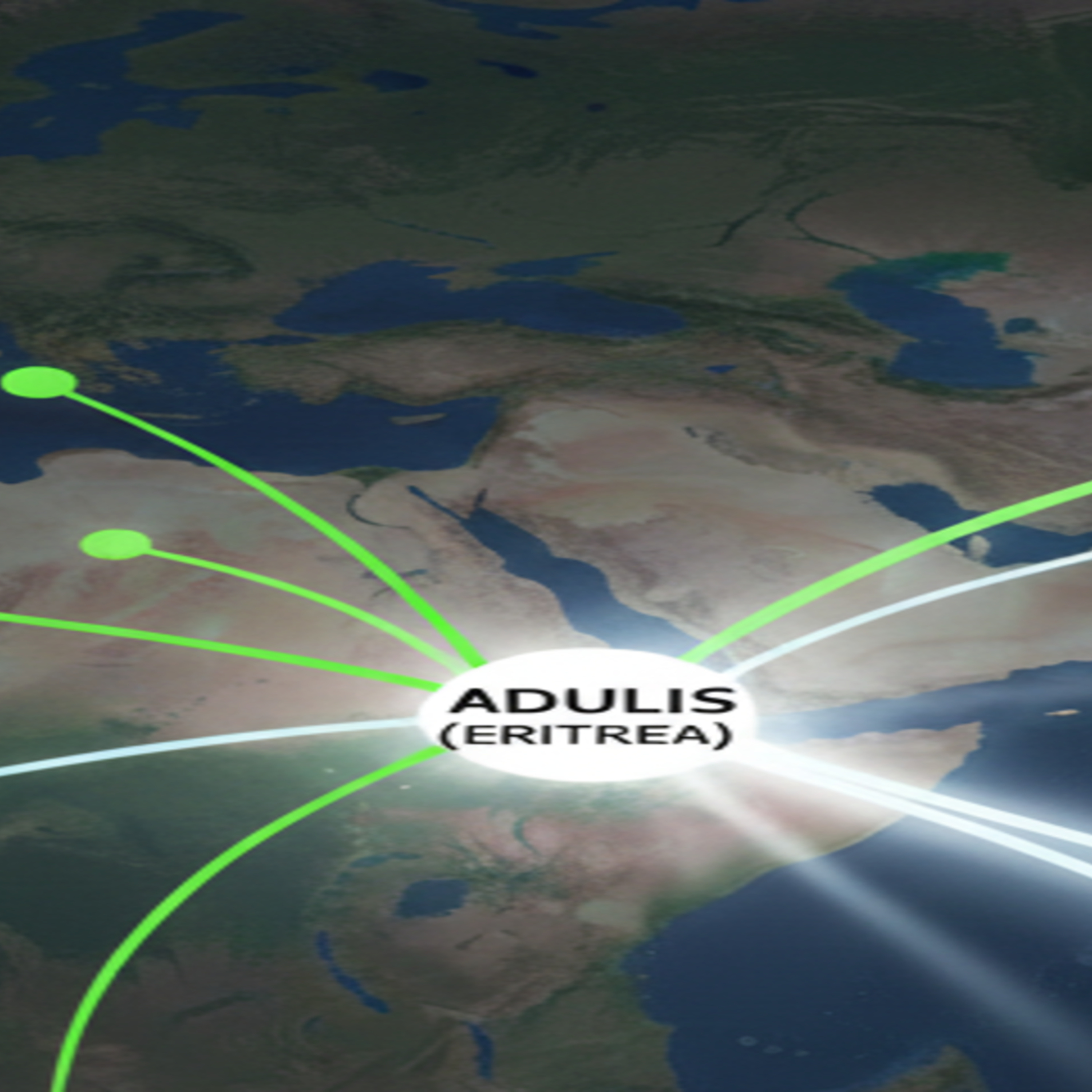
The Other Side of EritreaEnergetics Study At Adulis Chapter 3Energetics Study At Adulis Chapter 3:A study aimed at determining whether the ancient city of Adulis functioned as an independent economic center or merely a periphery of the Aksumite world. The methodology relies heavily on energetics studies, which quantify the labor time (Person-Days) invested in construction to deduce household wealth and social stratification. Researchers utilized advanced Computer-Aided Design (CAD) software to calculate the complex volumetric data of thirty-nine structures built using the site’s unique Graduated Masonry technique, which employed three distinct wall grades (A, B, and C) to communicate status. The analysis confirms a sharp difference in effort be...
2025-11-2811 min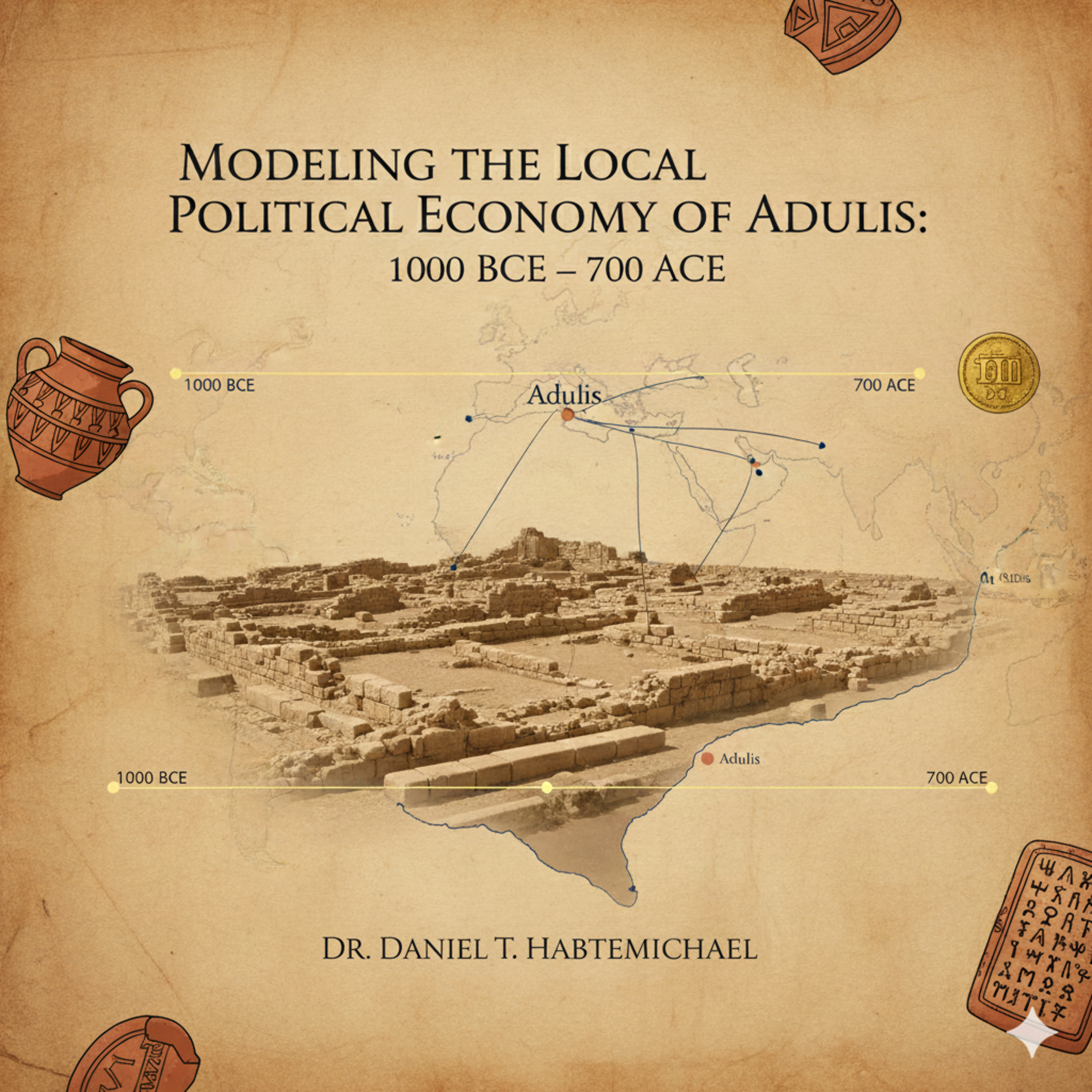
The Other Side of EritreaAdulis: Literature Review and Theoretical Background Chapter 2Adulis: Literature Review and Theoretical Background Chapter 2: is from a doctoral dissertation analyzing the political economy of the ancient Red Sea port city of Adulis in the Northern Horn of Africa between 1000 BCE and 700 ACE. The research directly challenges the conventional interpretation that Adulis functioned simply as a periphery or trading post for the Aksumite empire, arguing instead that Adulis was a wealthy, independent center within its own right. To support this claim, the author uses anthropological archaeology, employing energetics analysis of architecture (labor and time costs calculated from 3D models of built forms) to assess the city's internal...
2025-11-2614 min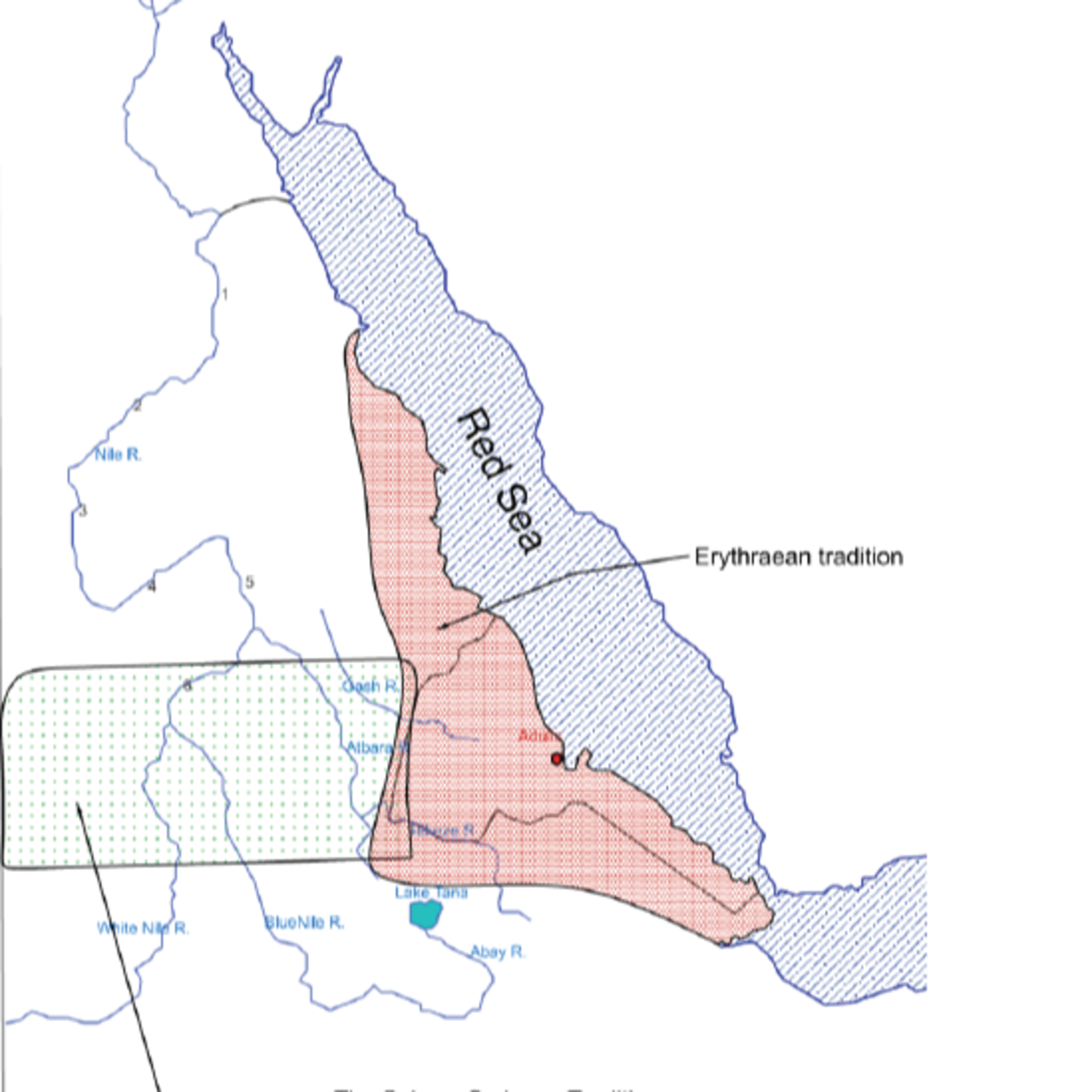
The Other Side of EritreaAdulis: Modeling a Classical African Political Economy Chapter 1Adulis: Modeling a Classical African Political Economy Chapter 1 Adulis: Modeling a Classical African Political Economy is from a 2019 doctoral dissertation by Daniel T. Habtemichael focused on modeling the local political economy of the ancient port city of Adulis in the Northern Horn of Africa between 1000 BCE and 700 ACE. The core research objective is to challenge the traditional view that Adulis was merely a periphery of the Aksumite world by proposing and testing an alternative hypothesis that Adulis was an independent political and economic center. The author uses energetics analysis of Adulis's built forms and artifacts, combined with textual and...
2025-11-2412 min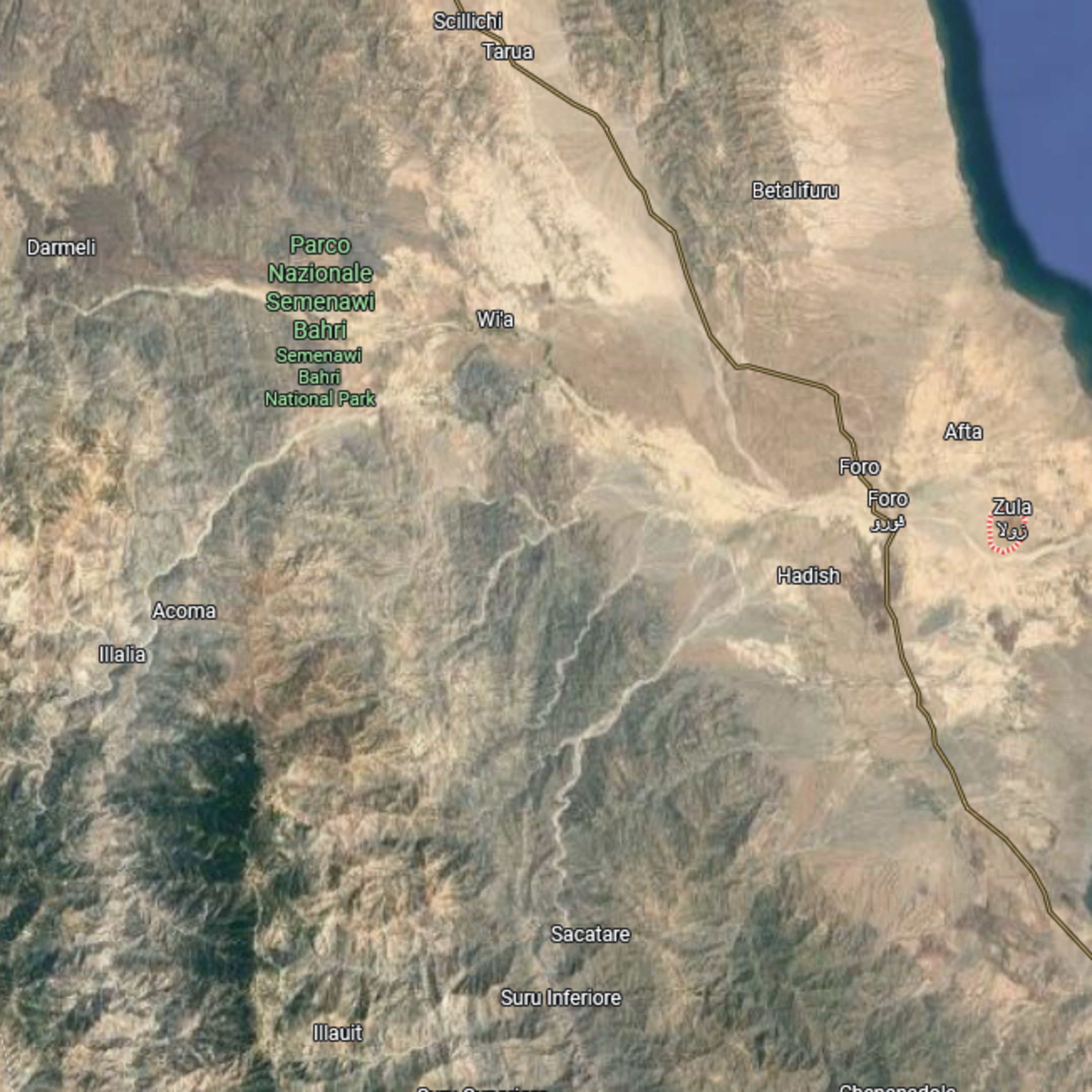
The Other Side of EritreaAdulis: A Center of Ancient African Political EconomyAdulis: A Center of Ancient African Political EconomyComing soon: a multi-episode journey into one of Africa’s most influential but least understood ancient cities. Adulis, long dismissed as a minor Red Sea port, is revealed through new archaeological research to have been a thriving political and economic powerhouse.Across this series, we unpack the groundbreaking findings of Dr Daniel T. Habtemichael’s 2019 dissertation, exploring how Adulis commanded interregional aromatics trade, exported war elephants, and connected the Mediterranean and Indian Ocean worlds. Through 3D reconstructions, artifact analysis, and conversations with leading scholars, we re-examine the Nort...
2025-11-2302 min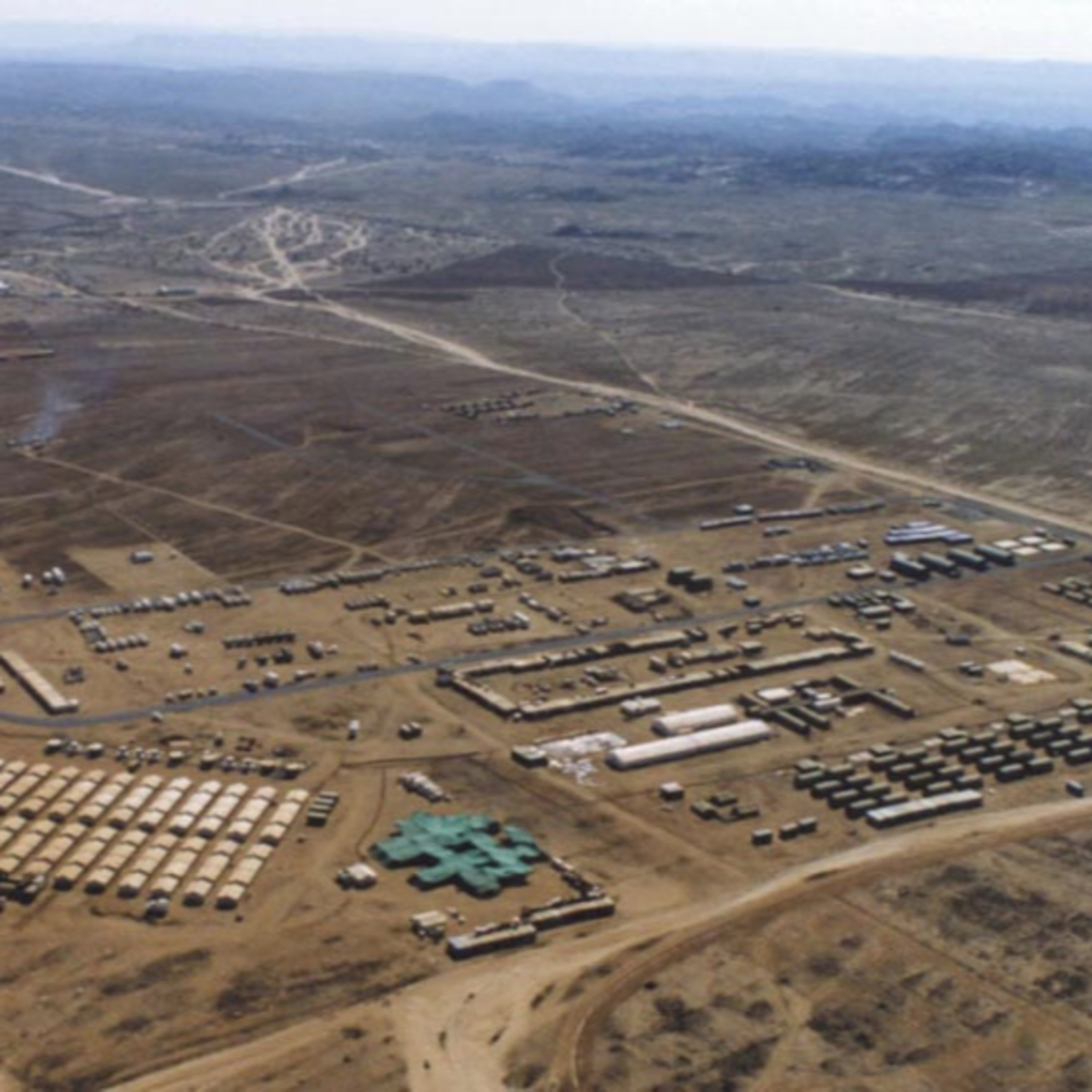
The Other Side of EritreaEritrea, Gura Company Town A Wartime Social ExperimentEritrea, Gura Company Town: The Social History of a Wartime Planning Experiment, "focusing on the social history and planning of a company town named Gura in Eritrea, East Africa, during World War II. It examines the social dynamics, culture, and various forms of security and insecurity experienced by the American, Italian, and native employees of the Farwest Aircraft Company at this remote location. Details everything from the differential wage scale of employees to the formation of social cliques and associations within the isolated community, understanding how isolated men establish a social balance in a foreign environment while confronting issues...
2025-11-1910 min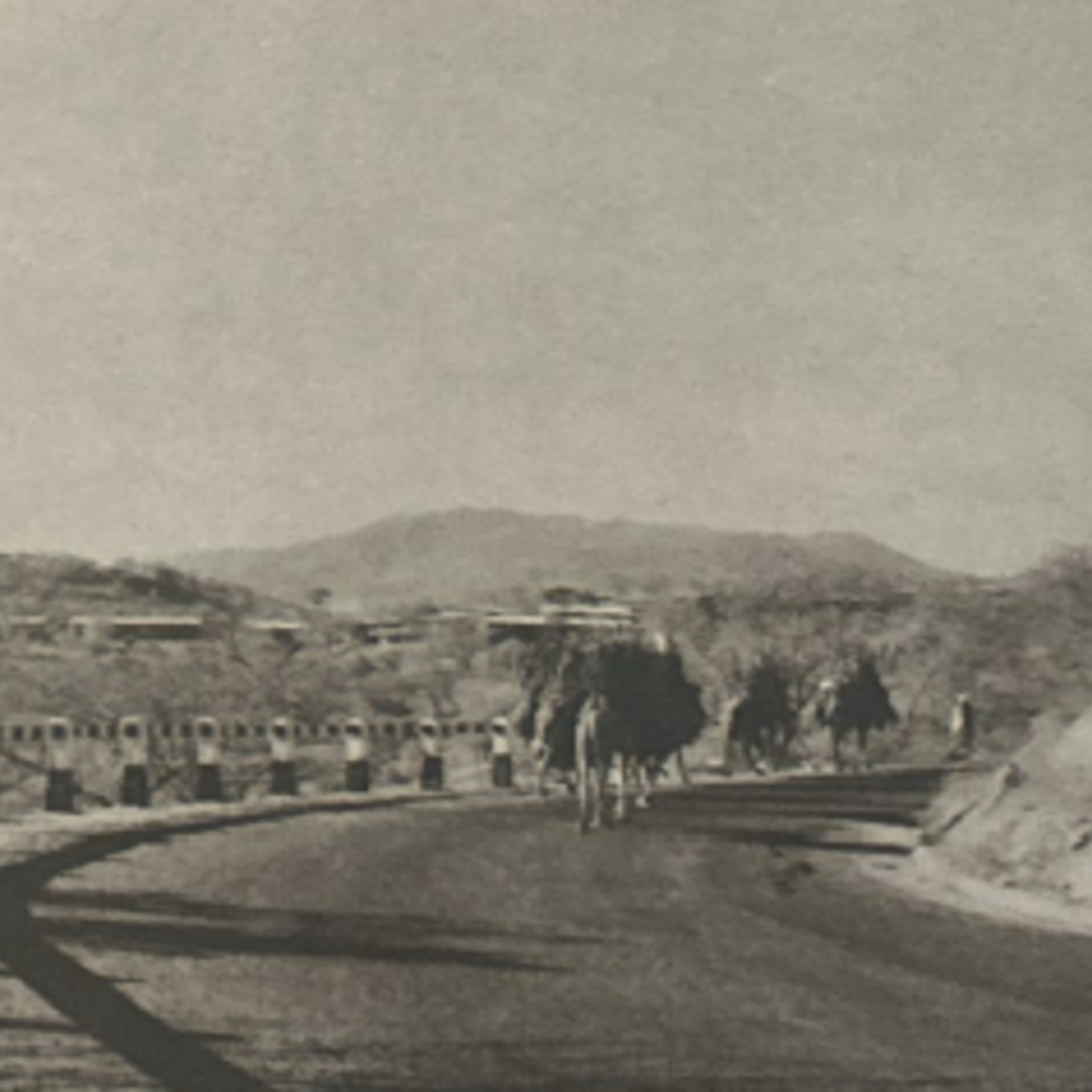
The Other Side of EritreaEritrea at the Frontline US Corps of Engineers War Projects, 1942–1943The pivotal role of Eritrea in the Middle East War Projects carried out by Johnson, Drake & Piper, Inc. for the U.S. Army Corps of Engineers during 1942–1943. Eritrea emerges as a crucial hub of Allied wartime construction, where extensive rehabilitation and expansion of former Italian military installations formed the core of the effort. While additional work took place in Egypt and Arabia, the most significant projects naval bases, airfields, hospitals, and essential infrastructure were concentrated in Eritrea. Featuring a table of contents, preface, detailed descriptions, photographs, and drawings, the document vividly depicts the scale of operations and the challenging co...
2025-11-1513 min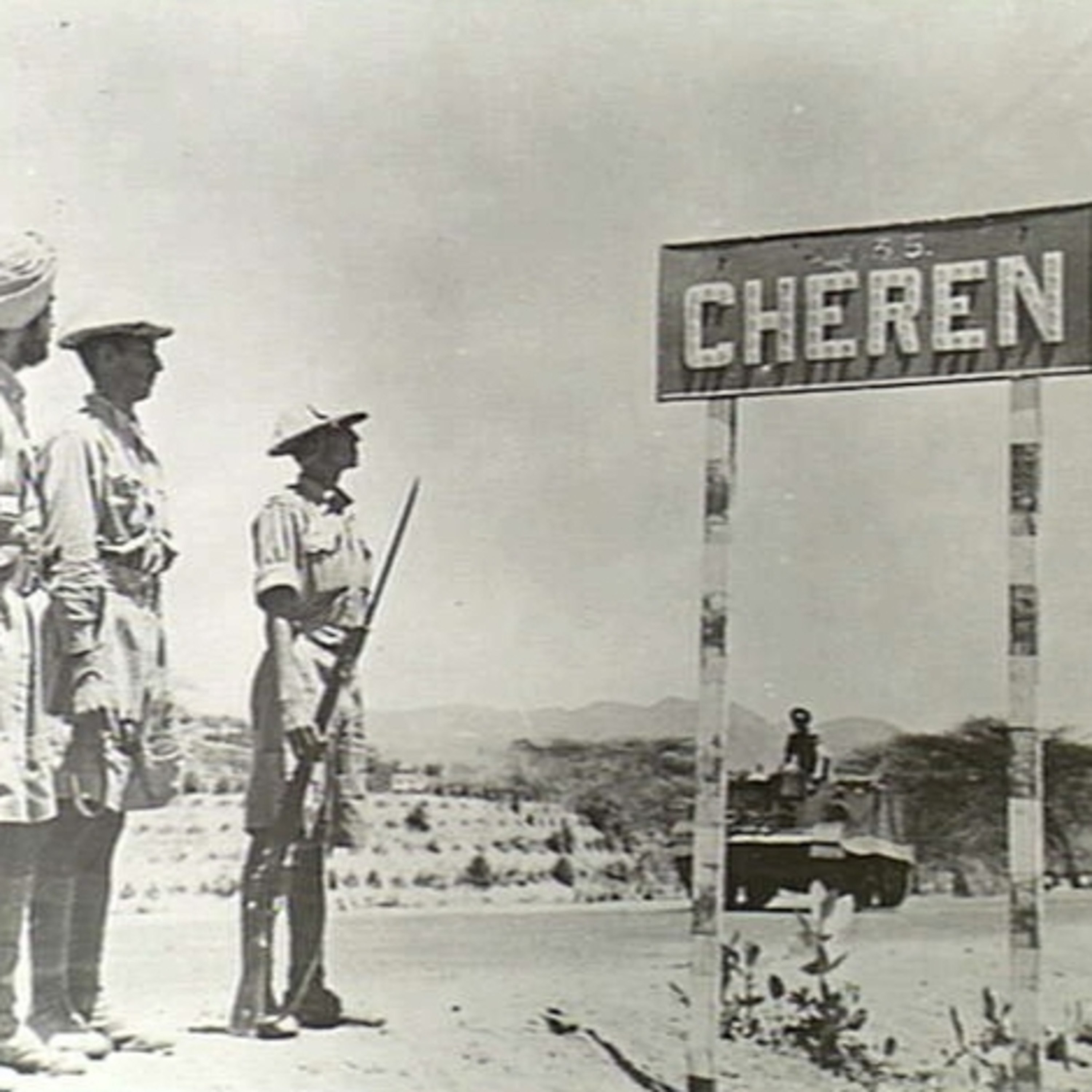
The Other Side of EritreaEritrea and the Indian Army’s Forgotten Front in WW2An extensive historical and tactical analysis of the Indian Army's role during World War II in the Western theatre, particularly in Eritrea, East Africa, North Africa, and Italy. The primary focus is on how the colonial force adapted its pre-war "Small War" mountain techniques to engage in large-scale conventional warfare, battling both Italian and German forces. The analysis details key battles, such as those in Abyssinia, the Western Desert campaigns against Rommel, and the piercing of the Gustav and Gothic Lines in Italy. Overall, the chapter examines the operational, tactical, and technological evolution of the Indian Army under the...
2025-11-1111 min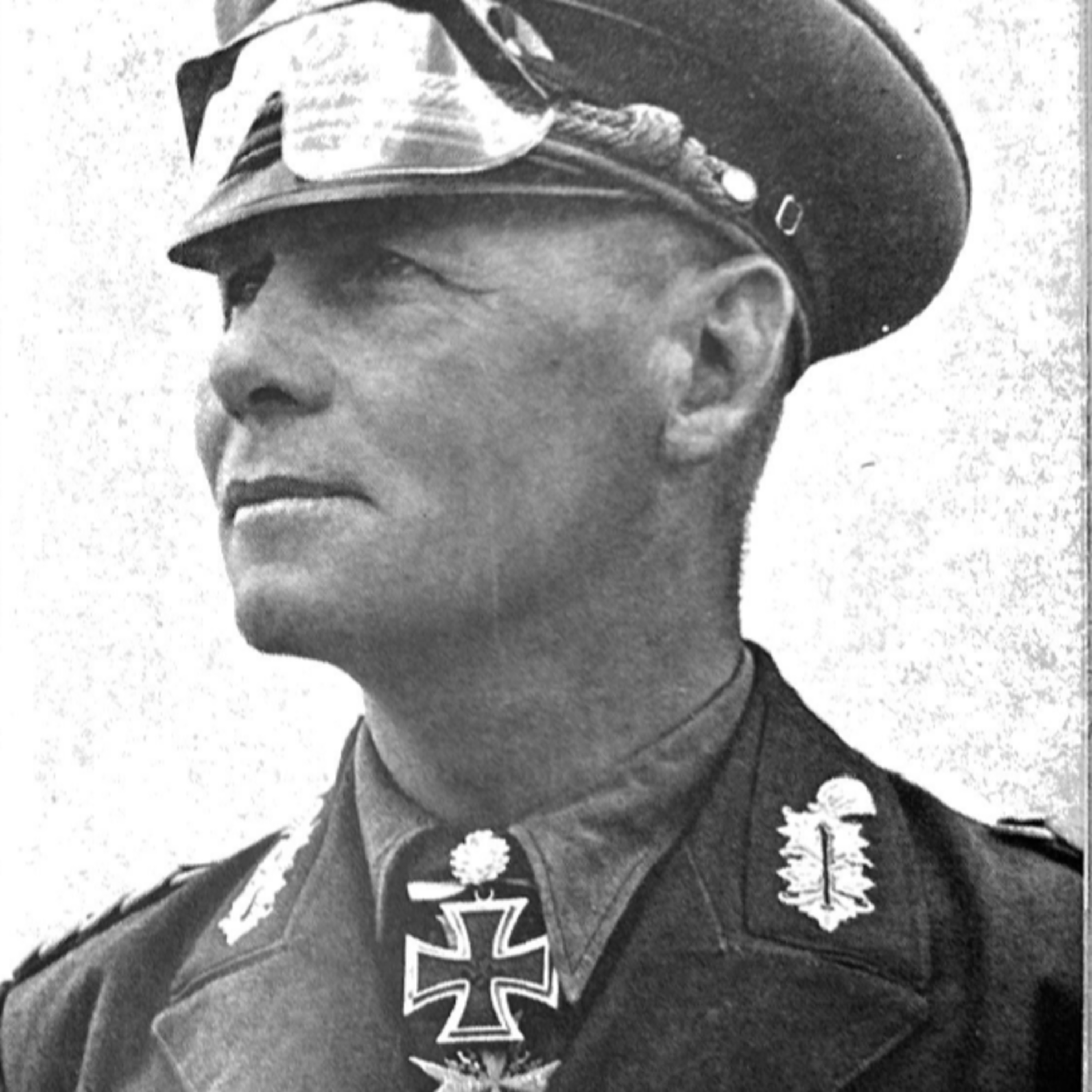
The Other Side of EritreaThe Eritrean Front: The Forgotten Victory that Sealed the Fate of Rommel’s North African CampaignAlthough Heinz Werner Schmidt’s With Rommel in the Desert focuses exclusively on the North African theatre, the roots of Rommel’s eventual defeat stretch back to the lesser-known campaign fought far to the east in Eritrea. The Battle of Keren (February to March 1941), a brutal engagement between Italian colonial forces and British Commonwealth troops, proved to be one of the decisive turning points of the entire African war.The victory at Keren ensured the collapse of Italian East Africa and brought Eritrea and the Red Sea coast under Allied control. With the fall of Keren, the Allies secured the...
2025-11-0410 min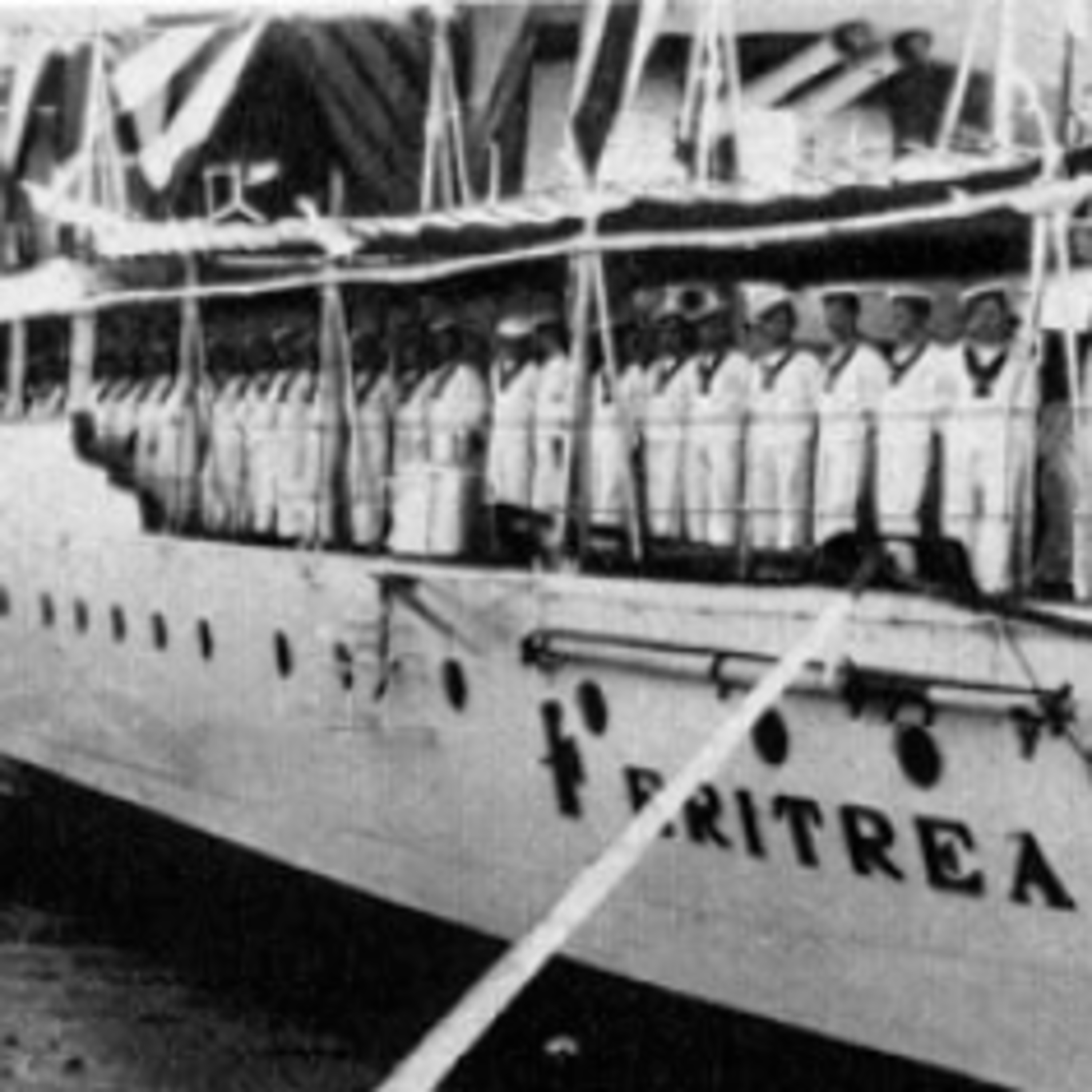
The Other Side of EritreaItalian War Operations in Eritrea, 1940–1941Historical overview of Italian military activities in Eritrea during World War II, focusing primarily on the period from 1940 to 1941, when the region was isolated after Italy entered the war. One major focus is the Italian Red Sea Fleet's operations from June 1940 to April 1941, detailing naval units, engagements, and the ultimate destruction or retreat of the fleet due to overwhelming British forces and critical shortages of supplies. A second key area describes the aerial links and long-range missions conducted by the Italian Air Force using transport aircraft like the Savoia-Marchetti SM75 and SM83, including efforts to resupply the isolated East...
2025-10-2914 min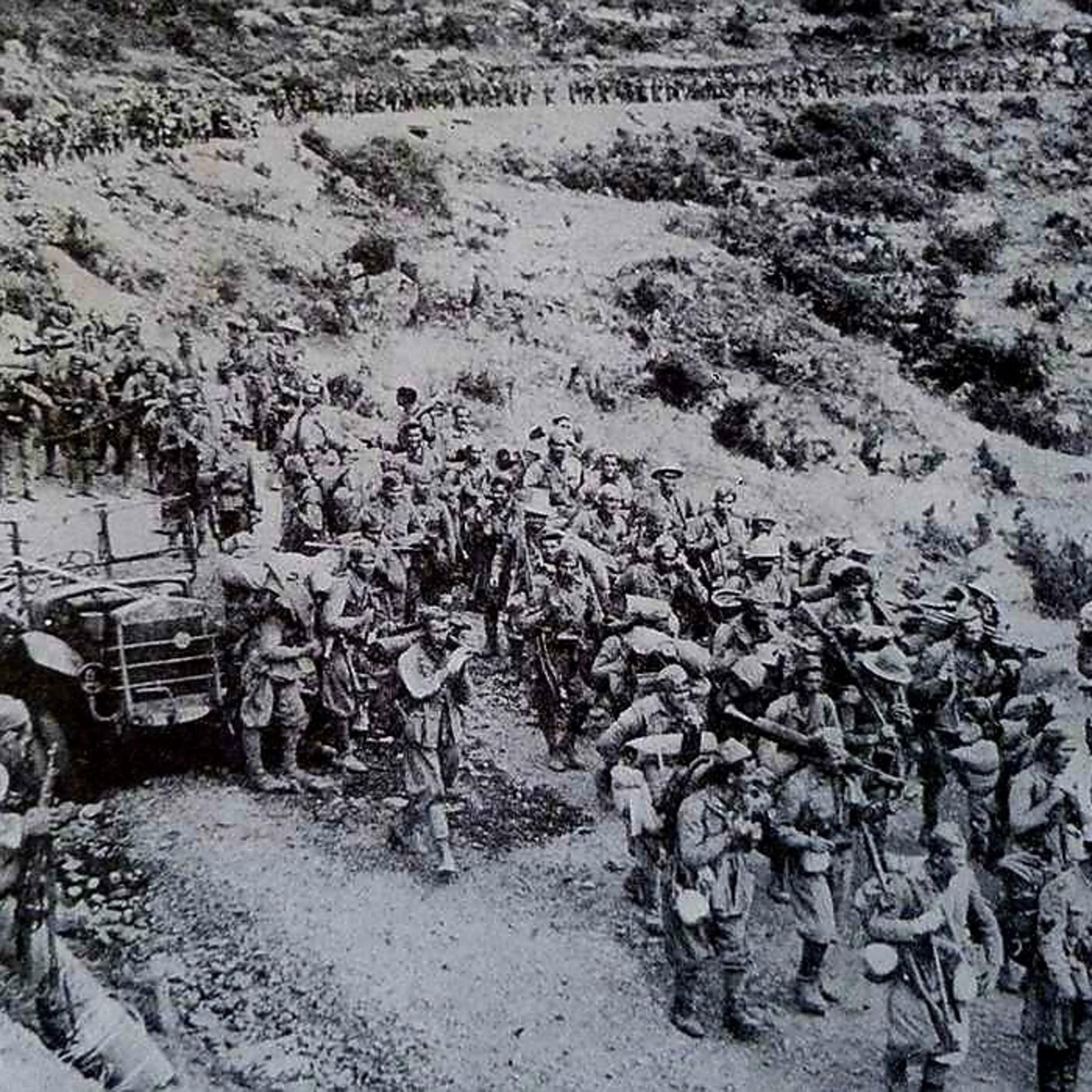
The Other Side of EritreaThe Battle of Keren: Italy’s Decisive Defeat in Eritrea and the East African CampaignBattle of Keren, a pivotal conflict within the East African Campaign of World War II. One source provides an in-depth historical summary of the battle, including the timeline from February 5 to April 1, 1941, the commanders, units involved, and significant casualties, ultimately concluding with a decisive Allied victory that secured routes to Asmara and Massawa. The second source is a detailed scenario design, likely for a wargame, titled "Against Enemy and Ground: Final Days of the Battle of Keren," which concentrates on the final phase of the battle from March 25–27, 1941. This scenario outlines the deployment, objectives, troop compositions (Italian and Commonwealth fo...
2025-10-2212 min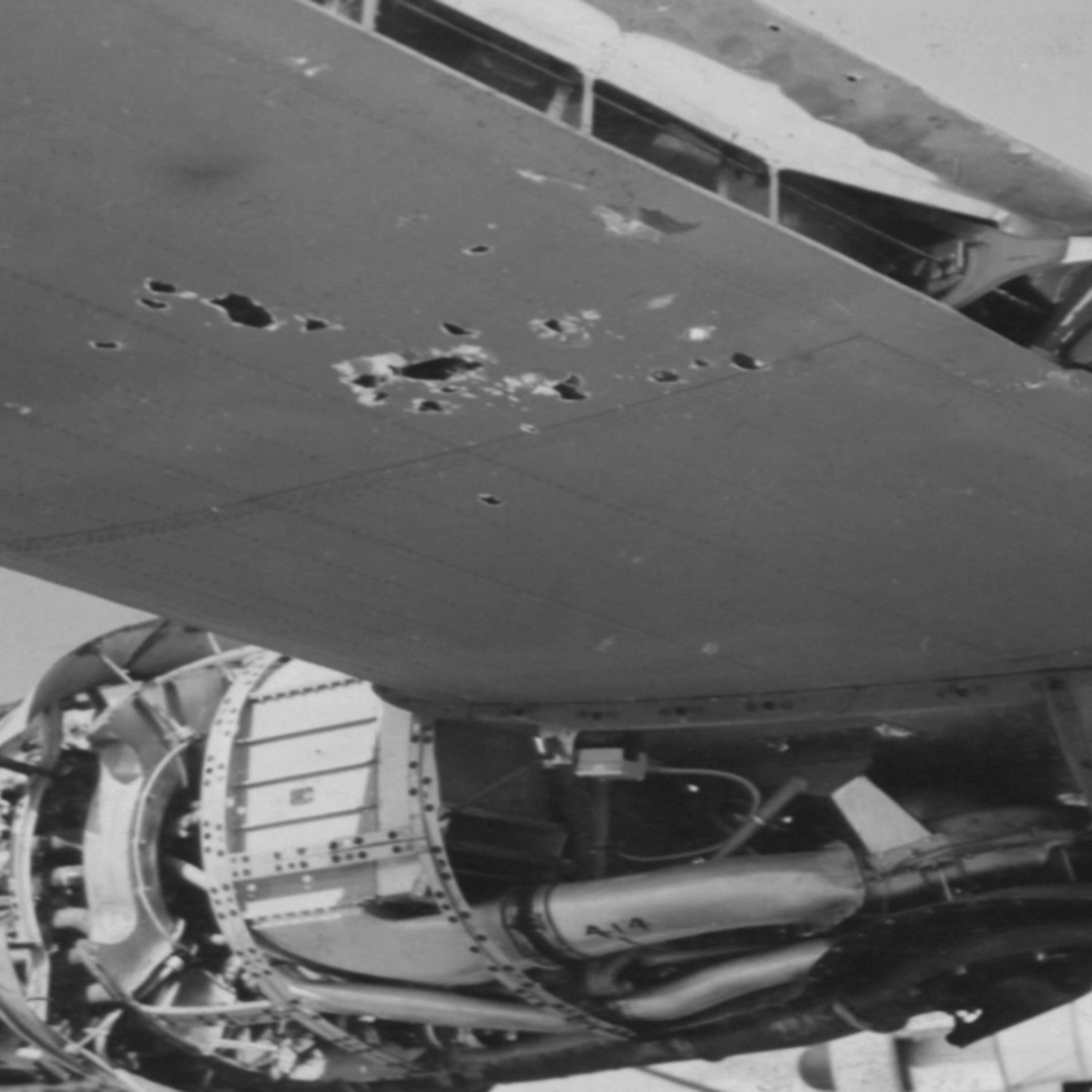
The Other Side of EritreaProject 19: How the Base in Gura, Eritrea Tipped the Balance in WWIIProject 19, a secret World War II mission initiated by President Franklin D. Roosevelt to aid Great Britain in its fight against the German Afrika Corps in North Africa. This project involved recruiting approximately 2,000 American civilian volunteers, often aircraft manufacturing personnel, to travel to a remote, bombed-out base in Gura, Eritrea, to repair and assemble damaged and newly delivered aircraft for the Royal Air Force (RAF) and later the U.S. Army Air Force (USAAF). The Americans faced harsh conditions, including the necessity of rebuilding the base itself and forming their own defense force, the American Volunteer Guard (AVG), while...
2025-10-1513 min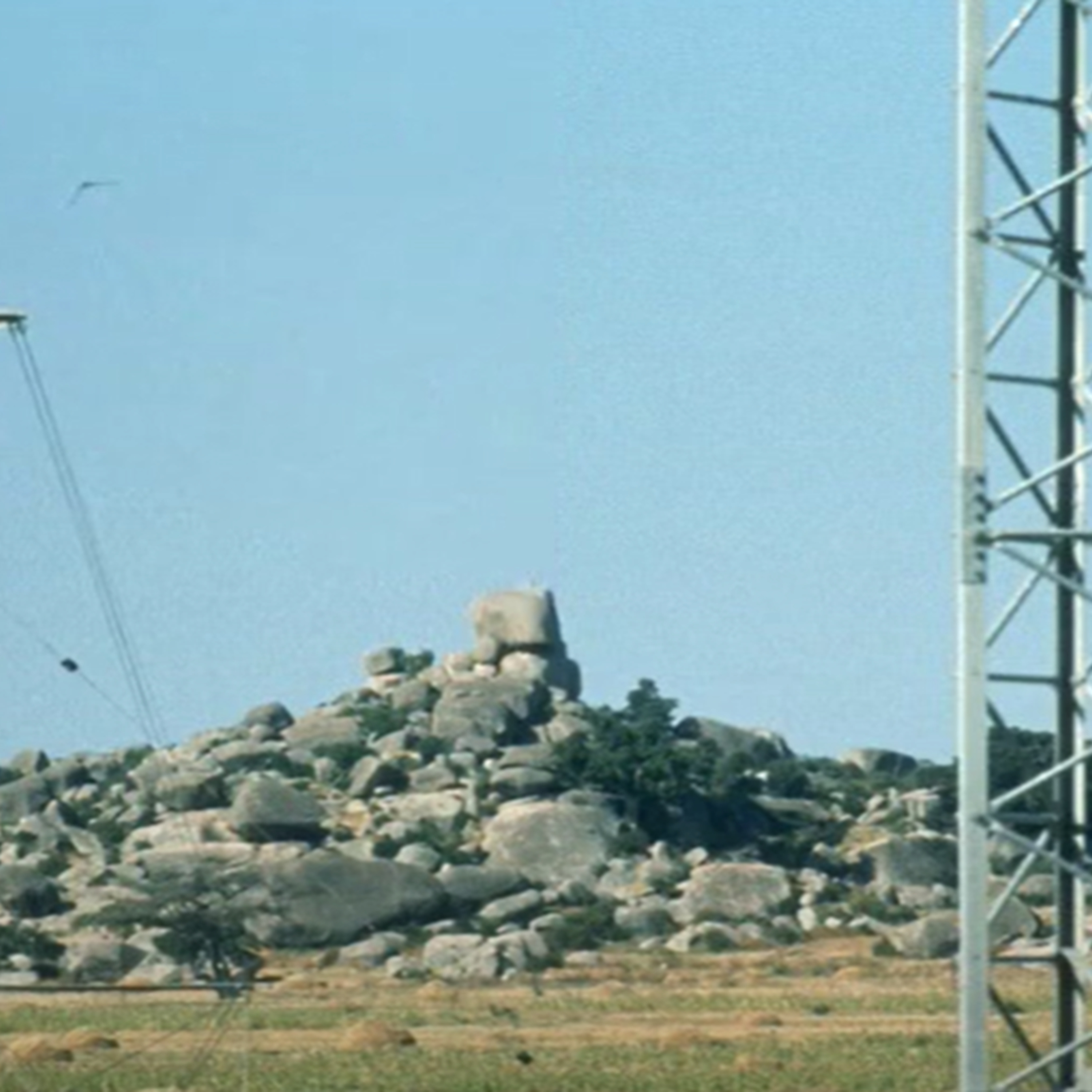
The Other Side of EritreaKagnew Station: U.S. Policy in EritreaBefore the satellite age, one U.S. military base in East Africa quietly shaped decades of American foreign policy, Kagnew Station in Asmara, Eritrea.The United States’ strategic dependence on Kagnew Station a massive communications and intelligence hu, led Washington to back Ethiopia’s control of Eritrea for nearly three decades. To protect the base, U.S. policymakers ignored rising local resentment, the loss of Eritrean autonomy, and warnings from diplomats on the ground.When Ethiopia shifted toward the Soviet Union in the late 1970s, the U.S. was forced to abandon the station, just as s...
2025-10-1113 min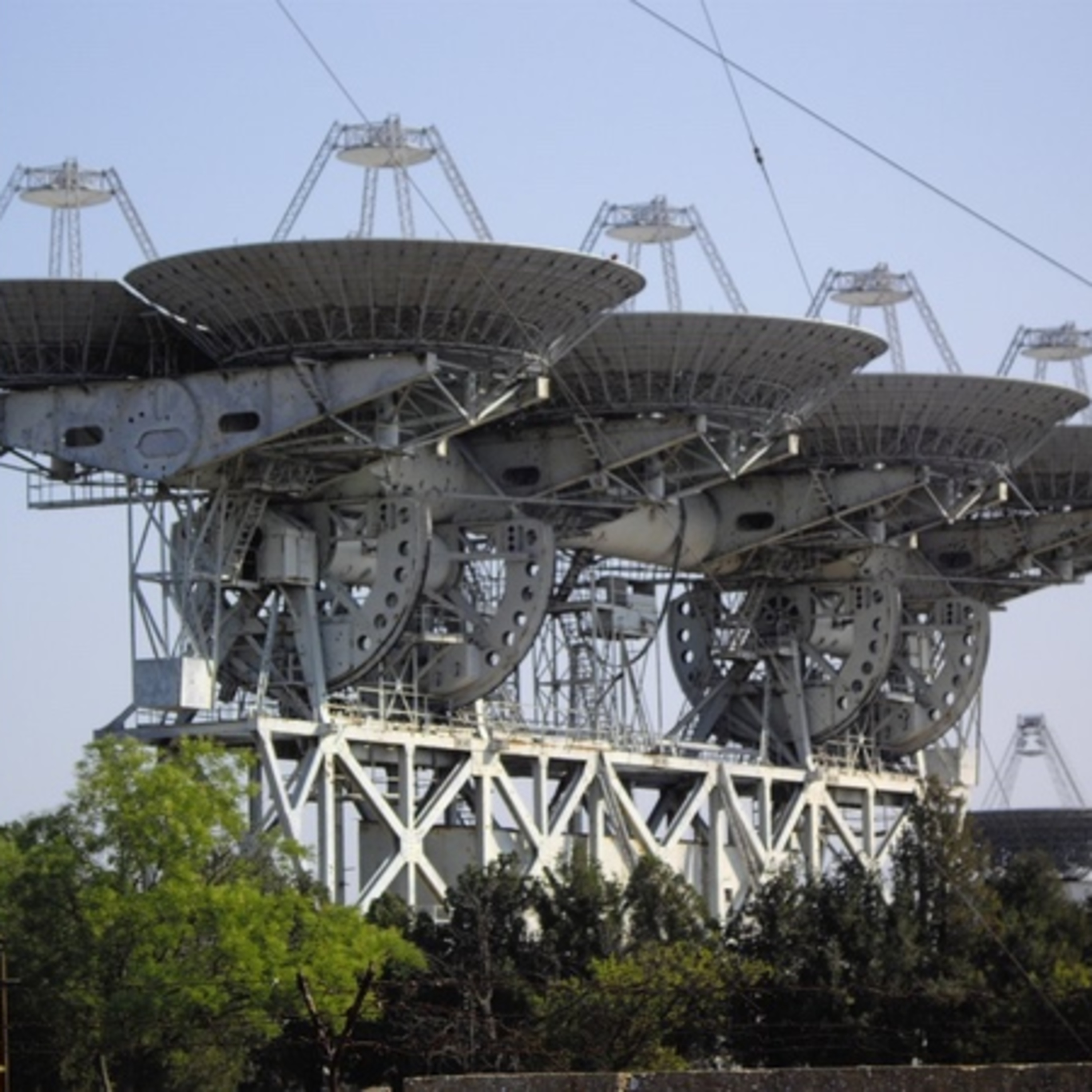
The Other Side of EritreaEritrea: Kagnew Station, Cold War, Surveillance and Deep Space ListeningEritrea, Kagnew Station, a crucial U.S. military intelligence and communications base operational in Eritrea (then Ethiopia) during the Cold War. The first source offers a personal narrative from a reunion of former Kagnew service members, reflecting on the base's history as a major Army Security Agency (ASA) deep space listening post and exploring the enduring geopolitical impact of the U.S. presence in the Horn of Africa. The second and third sources focus specifically on STONEHOUSE, the highly specialized National Security Agency (NSA) deep space tracking facility located within Kagnew Station, detailing its construction with massive antennae, its...
2025-10-0316 min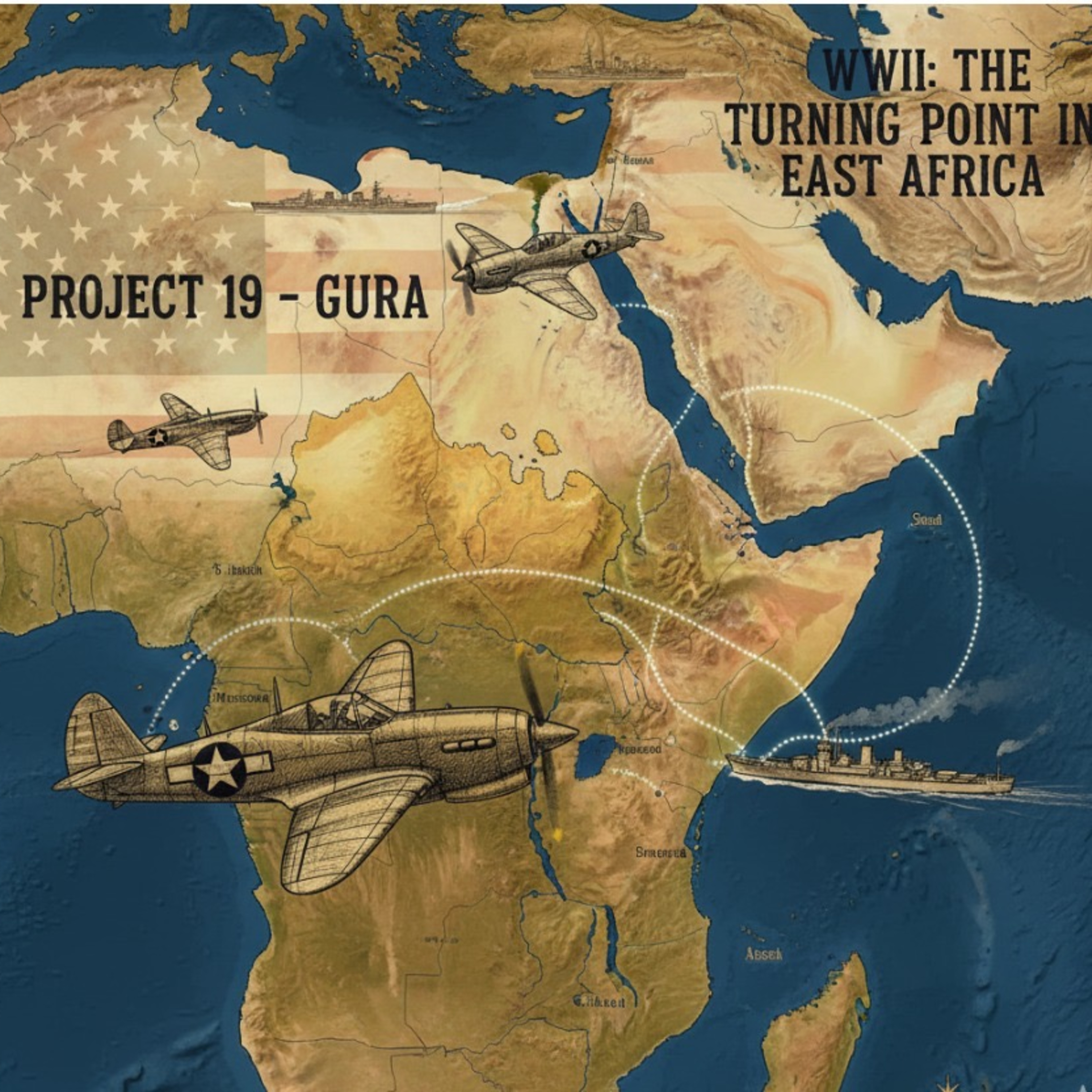
The Other Side of EritreaEritrea: Global History's Strategic NexusEritrea has consistently functioned as a critical strategic pivot point in modern world history despite its small size. The source details how Eritrea’s unique geography and infrastructure made it instrumental during World War II, citing the crucial Allied victory at the Battle of Keren and the massive logistical hub known as Project 19 at Gura which supported the North African campaign. Furthermore, the article explains Eritrea’s central role in the Cold War and Space Race through Kagnew Station, which served both NASA and the NSA, and its renewed importance in the post-9/11 War on Terror, highlighted by high-level visi...
2025-10-0116 min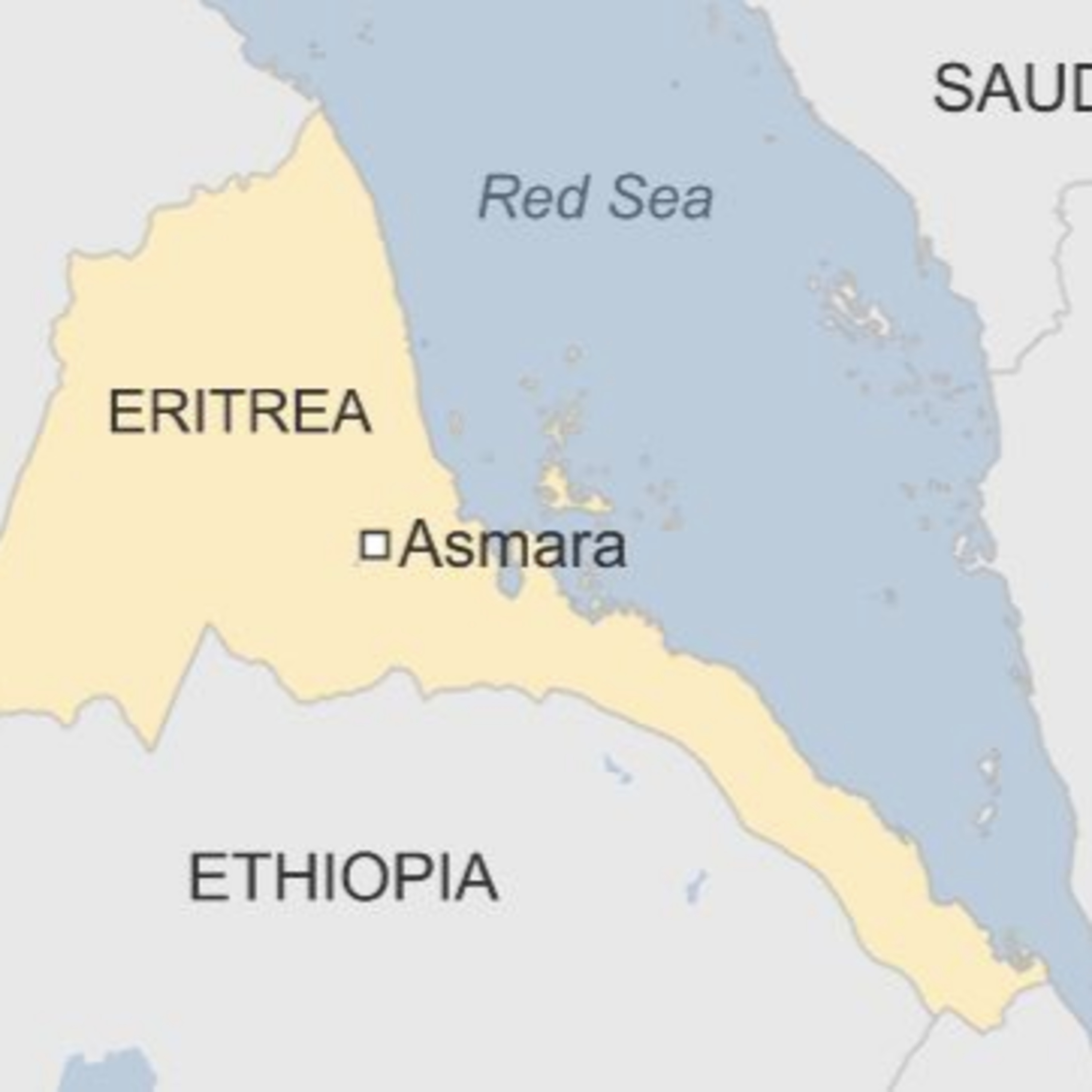
The Other Side of EritreaEritrea is making its voice heard at UNGA80Eritrean delegation's participation at the 80th Session of the United Nations General Assembly, highlighting their diplomatic activities and policy positions. Specifically, the texts document Foreign Minister Osman Saleh's bilateral meetings with numerous foreign officials, including those from the US, EU, Sudan, and Sweden, focusing on security, economic development, and regional stability in the Horn of Africa. Separate statements detail Eritrea’s focus on two key policy areas: gender equality and climate action. Regarding women's rights, an official explained Eritrea's progress in institutionalizing equality, citing increased political participation and reduced maternal mortality. Finally, on climate action, the Foreign Mi...
2025-09-2609 min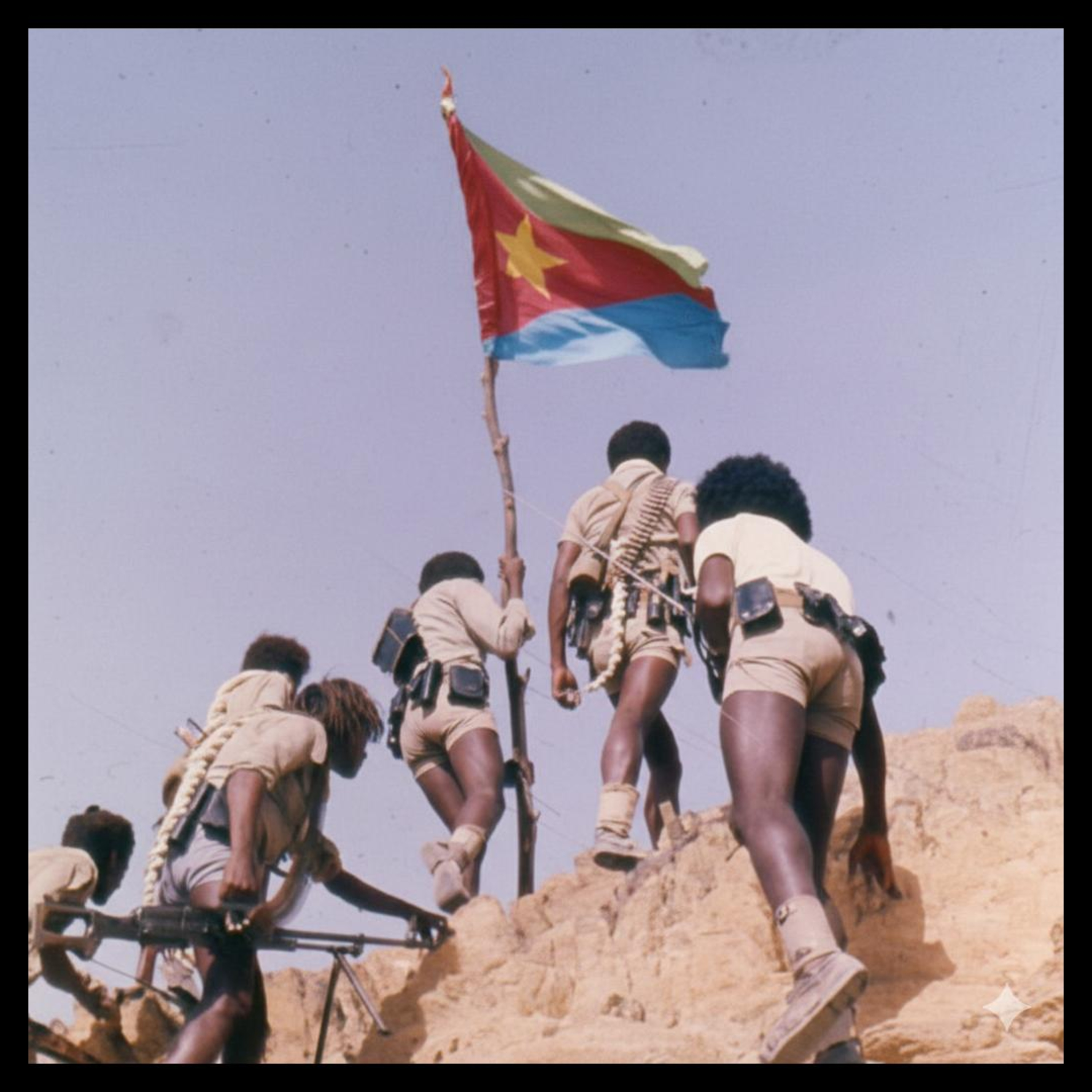
The Other Side of EritreaEritrea’s Sovereignty Is Not Up for DebateWe set the record straight on Eritrea’s sovereignty and the myths surrounding Ethiopia’s “loss” of a coastline. Respecting sovereignty is not a courtesy—it’s international law. Eritrea didn’t create an injustice; it corrected one through sacrifice and struggle, reaffirmed by a UN-monitored referendum.So why do some still frame this as an “injustice” or a “problem to fix”? We break down the historical facts, expose the contradictions, and call out the revisionism and bad education fueling this narrative. Sovereignty, annexation, and history are not negotiable points in a think-tank memo—they’re the foundation of international order.Join u...
2025-09-2309 min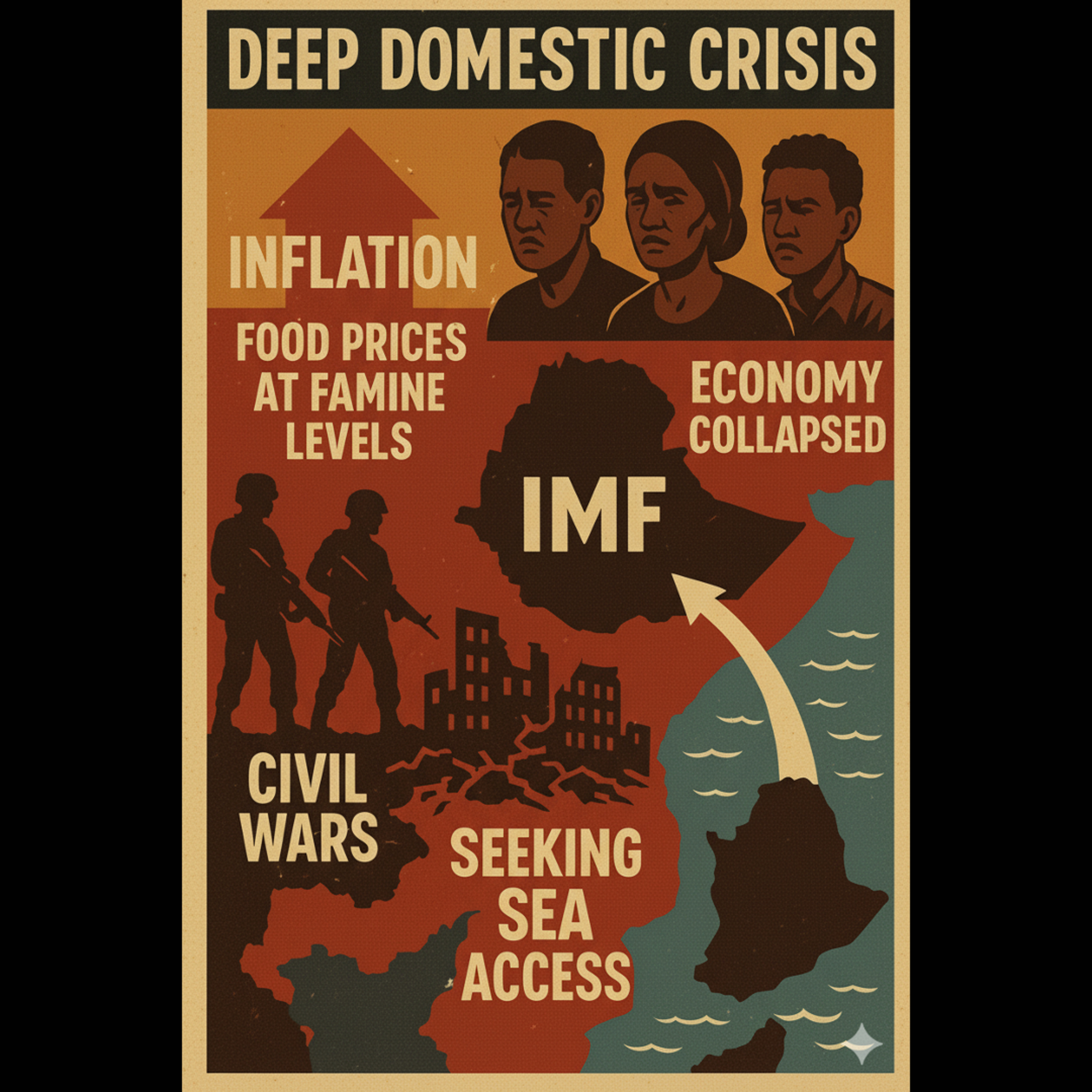
The Other Side of EritreaEthiopia’s Coastline Ambition: A Diversion from Domestic Turmoil?A critique of the Ethiopian government’s rhetoric regarding its demand for sovereign access to the sea, often using the metaphor of being “encapsulated” or a “geographic prisoner.” They argue that this narrative is disingenuous, historically inaccurate, and politically motivated to distract from severe domestic issues like economic crisis and internal conflict. The texts stress that Ethiopia already enjoys robust commercial access to the sea through existing, lawful agreements with its neighbors, particularly Djibouti, and that conflating ownership with access strains regional relations. Ultimately, the sources warn that the rhetoric, which has included veiled threats of force, undermines regional stability...
2025-09-2014 min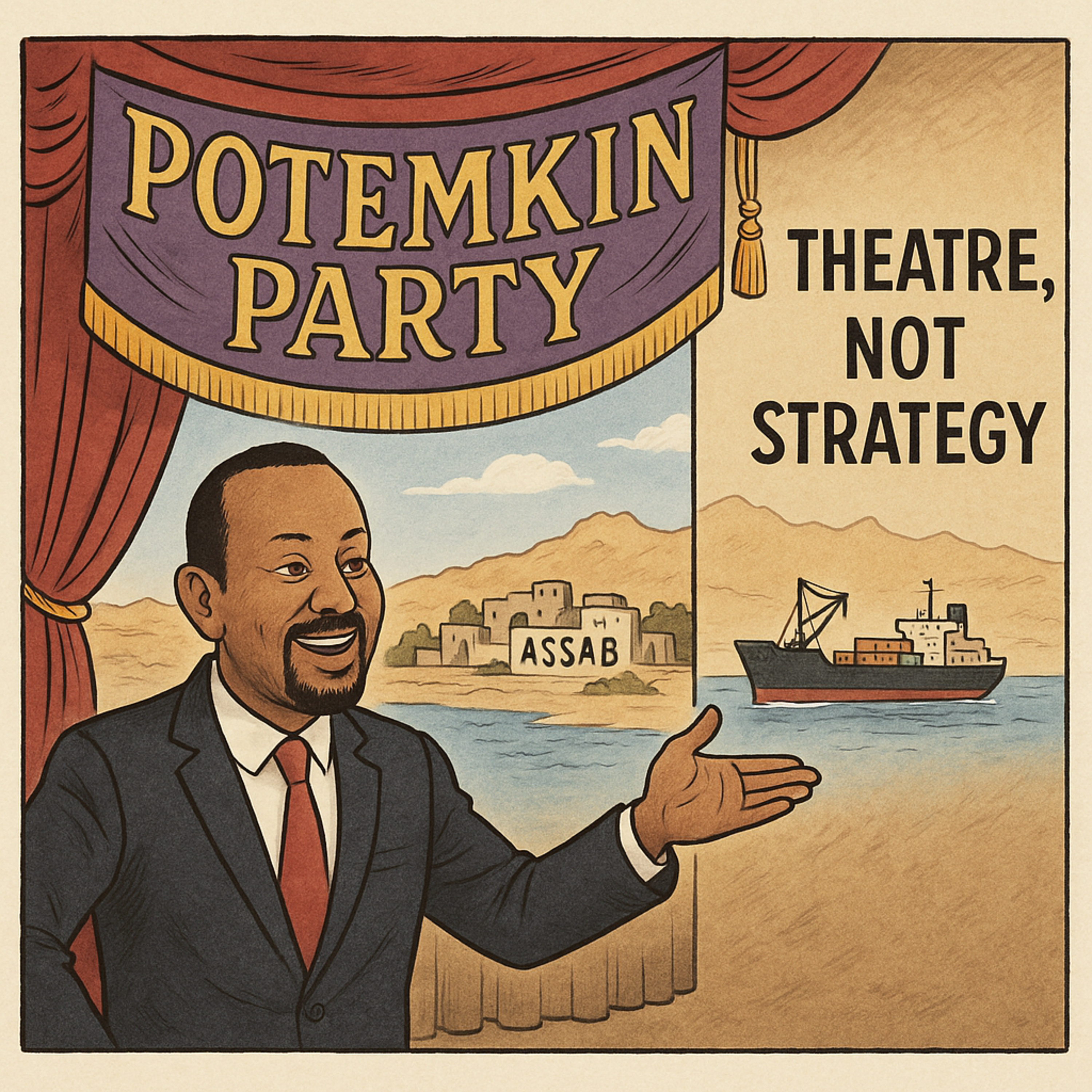
The Other Side of EritreaPotemkin Party, Theater not Strategy: Time for African Union to moveEthiopia’s “Potemkin Party” push for sea access is theatre, not strategy. Real growth comes from logistics & treaties, not fantasies of ports. Time for the AU to move meetings, optics, even HQ. Let Addis keep the stage; the AU must keep its soul
2025-09-1517 min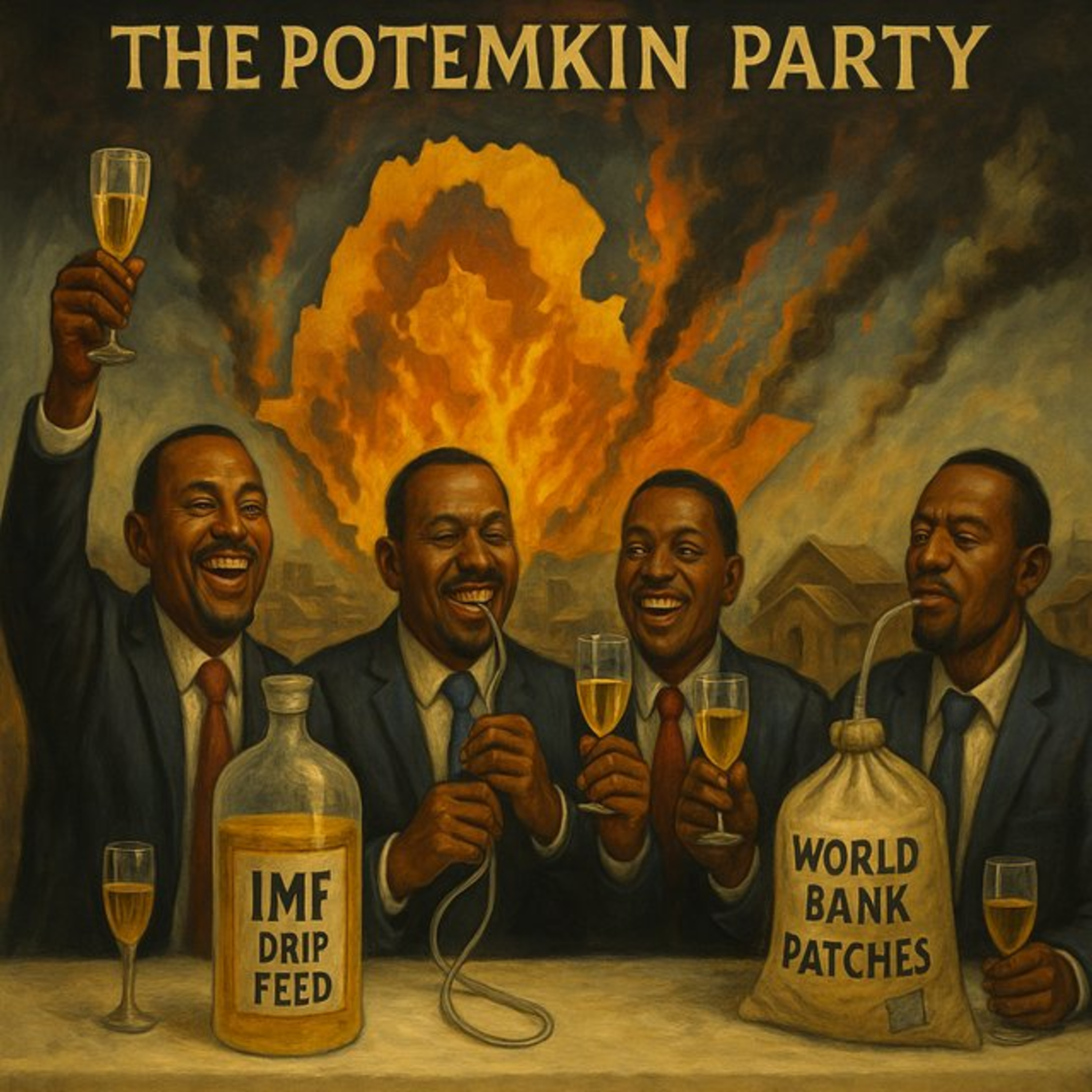
The Other Side of EritreaPotemkin Party's Red Sea DelusionsEthiopia's Potemkin Party or PP's expansionist ambitions regarding access to the Red SeaThese claims are a direct threat to Eritrea's sovereignty. Ethiopia's PP rhetoric, are "delusional" and based on historical fallacies, population statistics, and a sense of entitlement rather than international law. Eritrea's independence and borders are firmly established through self-determination and international agreements, making its coastline non-negotiable. The sources highlight the historical context of past conflicts fueled by Ethiopia's pursuit of sea access, emphasizing the devastating human and economic costs, and reject the idea that being landlocked constitutes a "historical injustice"...
2025-09-1011 min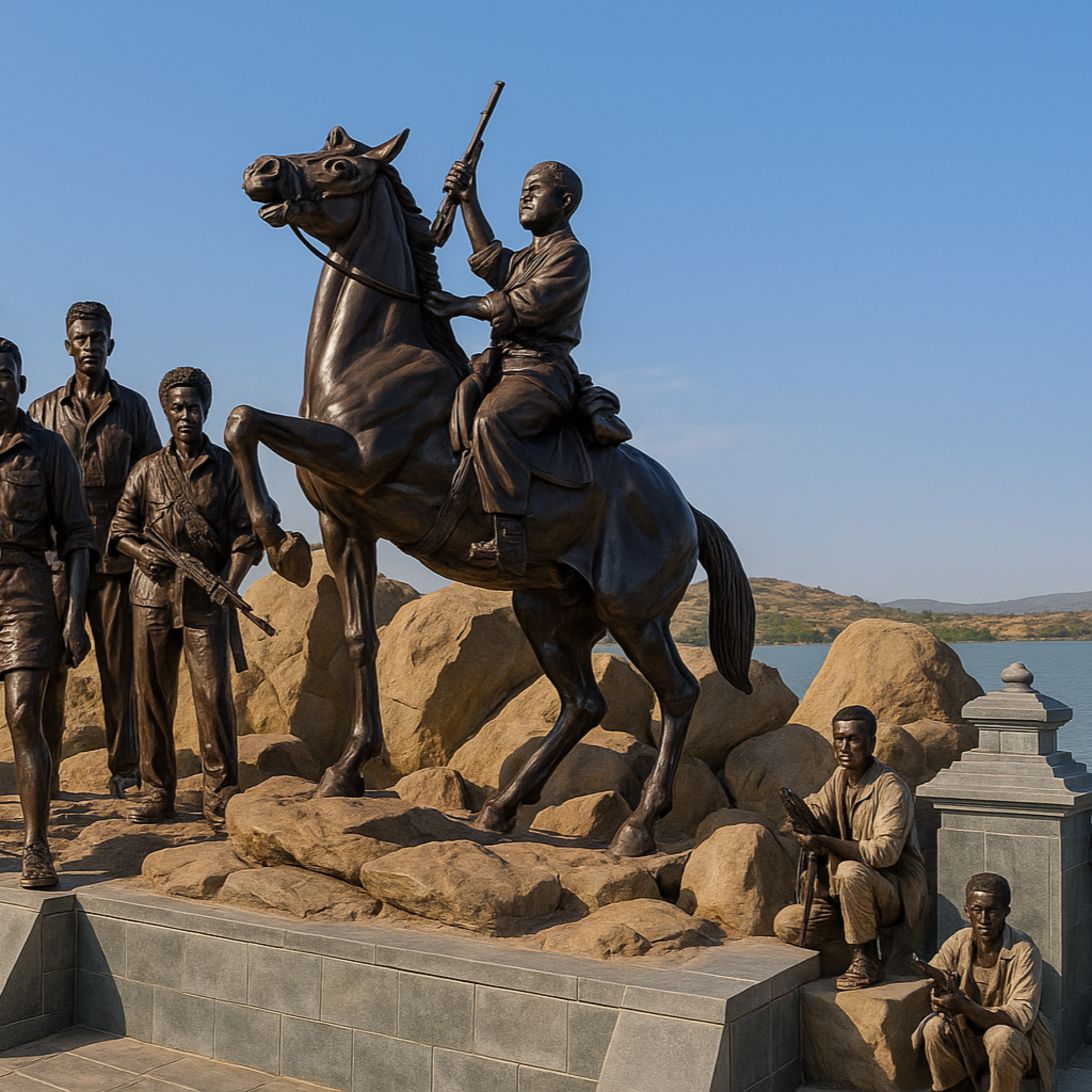
The Other Side of EritreaEritrea, the importance of September 1st: From Resistance to IndependenceThis historical account examines Eritrea's struggle for independence, highlighting the catalytic event of September 1, 1961, when armed resistance began. It details how the United Nations, influenced by Cold War geopolitics, prioritized U.S. strategic interests over Eritrean self-determination, leading to a forced federation with Ethiopia. The text then illustrates Ethiopia's systematic dismantling of Eritrean autonomy, which ultimately ignited a thirty-year war of liberation despite overwhelming odds and a lack of international support for Eritrea. The narrative emphasizes the resilience, unity, and unwavering determination that led to Eritrea's hard-won sovereignty in 1991, underscoring the enduring significance of this legacy against contemporary attempts...
2025-09-0711 min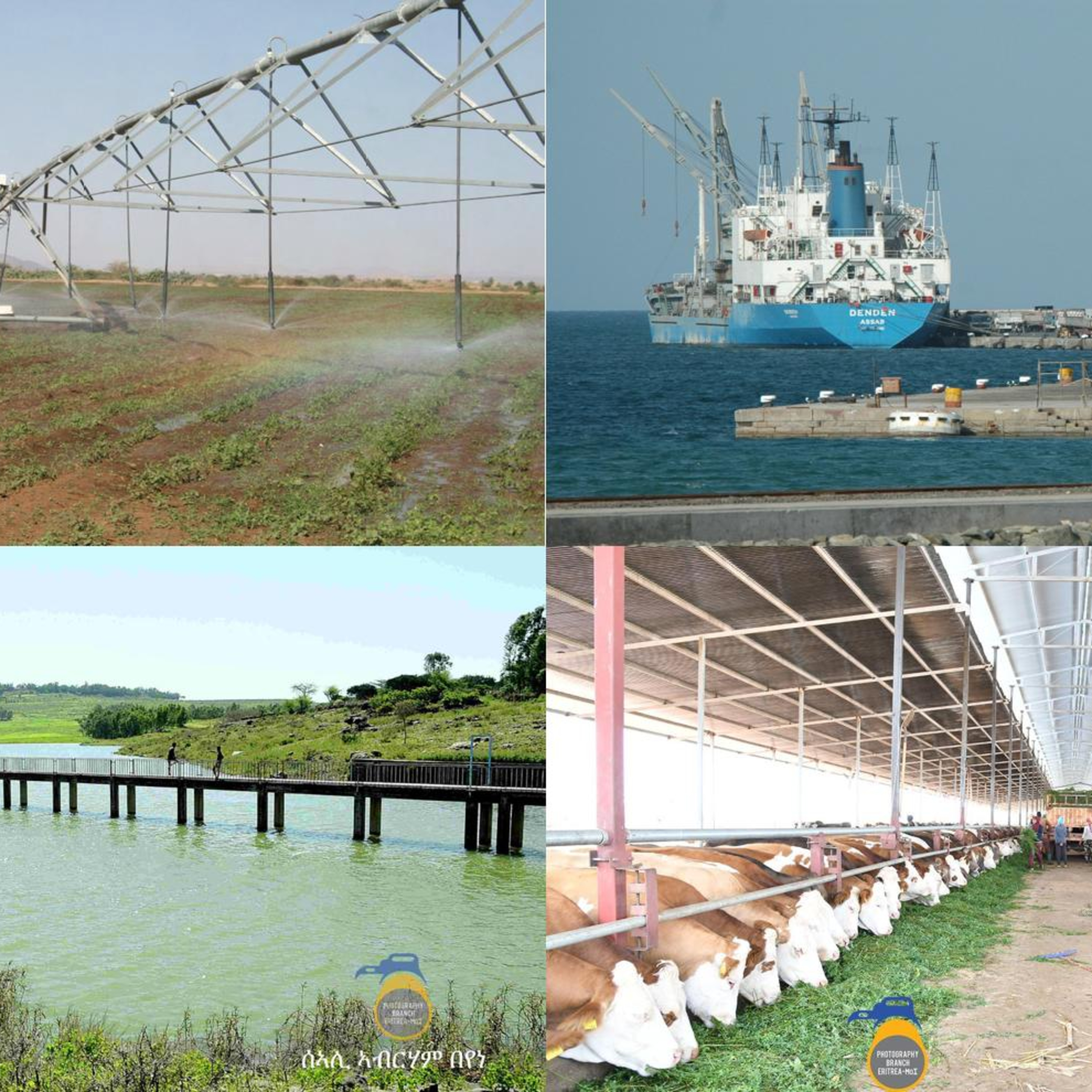
The Other Side of EritreaUnderstanding Eritrea’s Distinctive Development VisionEritrea's unique vision for sustainable development, arguing that it is often misunderstood when viewed solely through international frameworks like the SDGs. It emphasizes that Eritrea's approach, rooted in its history and liberation struggle, predates many global goals and is built on principles of social justice, equality, environmental stewardship, and self-reliance. The article highlights Eritrea's commitment to free healthcare and education, its skepticism towards conditional foreign aid, and the strong societal values of solidarity and collective responsibility as integral to its developmental path. Ultimately, the text asserts that Eritrea's model, though sometimes labeled "isolationist," is a principled, pragmatic, and resilient...
2025-08-2614 min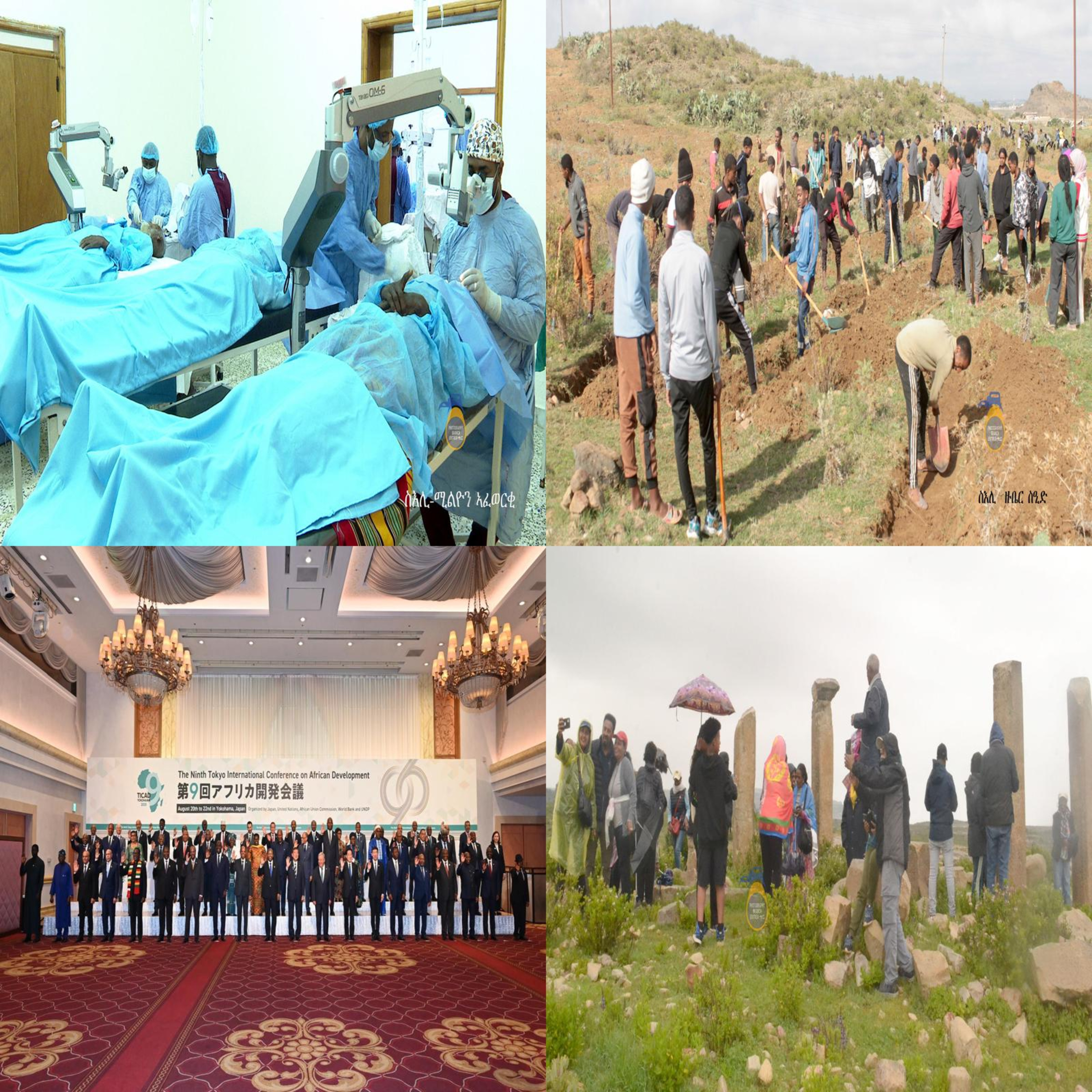
The Other Side of EritreaEritrea's Path: Diplomacy, Development, and ProgressA multifaceted view of Eritrea's current endeavors, highlighting diplomatic engagement, national development initiatives, and public welfare improvements. The first document details Eritrea's participation in TICAD9, where Ambassador Afeworki emphasized regional peace, security, and economic collaboration over conflict, particularly focusing on energy and mineral resource diplomacy. The other texts showcase internal progress: diaspora nationals touring historical and developmental sites, a large-scale student summer program focused on environmental conservation, and a successful cataract surgery campaign at Adi-Keih Hospital, demonstrating a commitment to health and community well-being. Together, these sources paint a picture of a nation actively pursuing both international cooperation and...
2025-08-2313 min
The Other Side of EritreaEritrean Artists Elevate African Heritage GloballyHighlights of two Eritrean artists who are making significant contributions to the global art and music scenes. Sonny Alem, an R&B and pop musician, discusses his journey of blending traditional Eritrean sounds with modern genres, culminating in his inclusion in "The World Album," a project featuring artists from every country. Similarly, Marta Woldu, a visual artist, shares her path from growing up with artist parents to winning the "Pride of Africa Asia Pacific Awards 2025" for her work promoting African heritage through her Sip & Dip studio. Both artists emphasize the importance of representing their Eritrean roots and...
2025-08-1824 min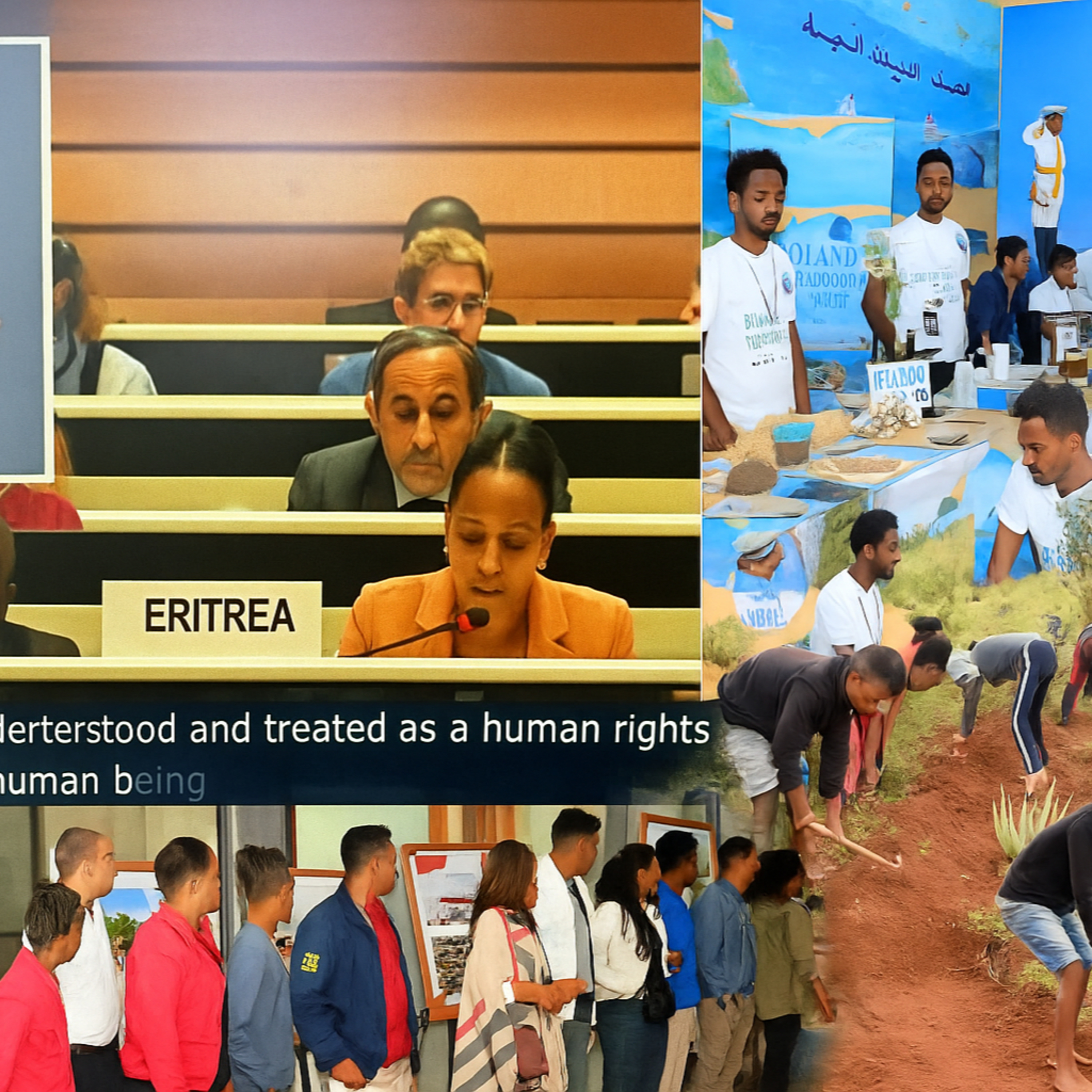
The Other Side of EritreaEritrea's Journey: Progress, Heritage, and Inclusive DevelopmentA multifaceted look at Eritrea, highlighting its commitment to social welfare and human rights, particularly for persons with disabilities, as evidenced by its long-standing efforts and recent ratification of the CRPD. They showcase government initiatives like financial aid for martyrs' families and community-based programs. Furthermore, the sources emphasize Eritrea's rich cultural heritage and national identity, illustrated through festival exhibitions that display ethnic traditions, historical photographs, and art, along with ongoing environmental conservation efforts demonstrating significant community and national participation in greening campaigns and soil protection. Together, these pieces paint a picture of a nation focused on both internal development...
2025-08-1410 min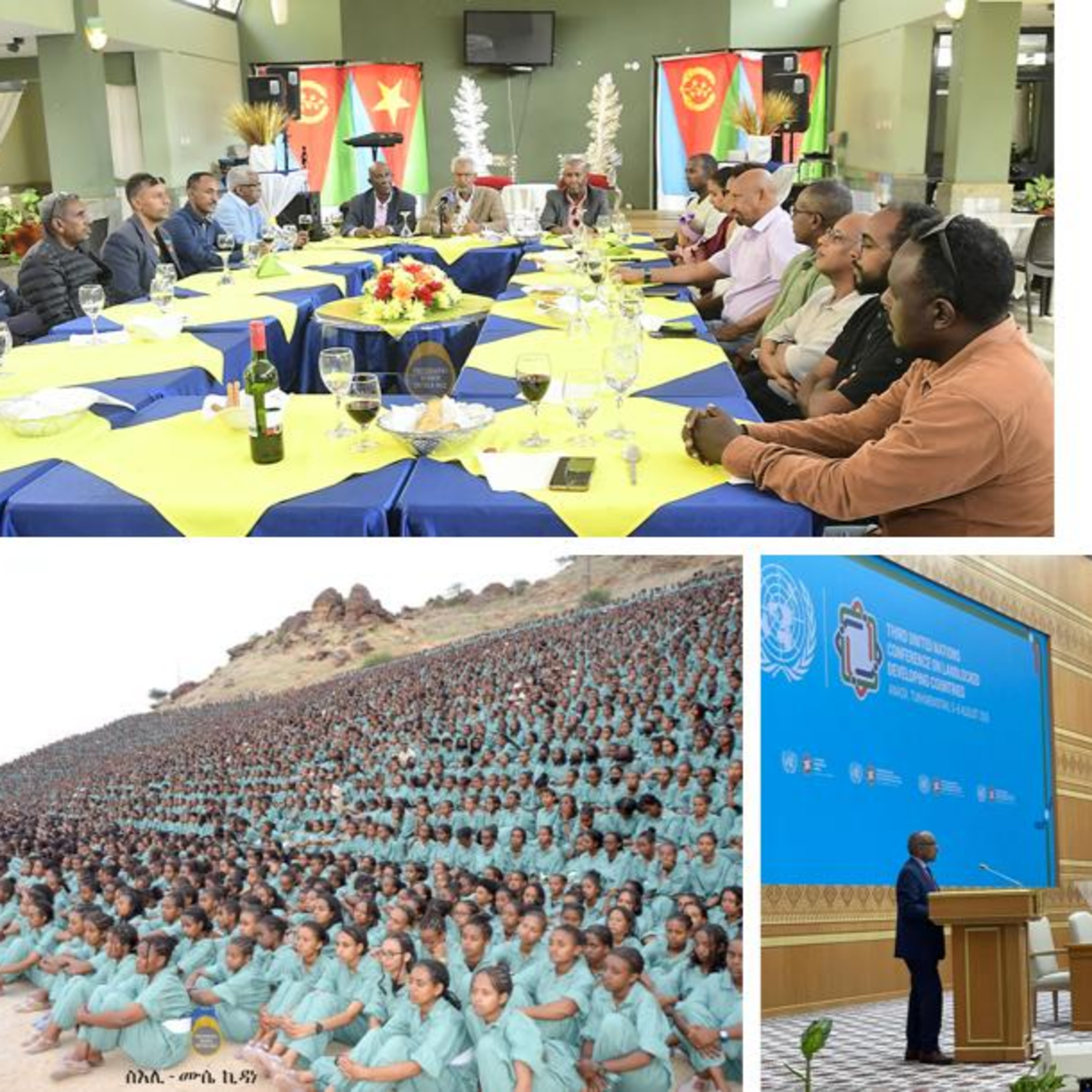
The Other Side of EritreaEritrea Showcases Commitment to Development, International Cooperation, and National UnityEritrea Showcases Commitment to Development, International Cooperation, and National UnityEritrea has reaffirmed its dedication to national development and global engagement through a series of recent highlights that showcase the country’s strategic vision, achievements, and unity.In a statement at the Third UN Conference on Landlocked Developing Countries, Eritrea emphasized its unique role as a transit state with a long Red Sea coastline, advocating for greater solidarity and partnership among developing nations. The country called for collective action to overcome infrastructural and economic challenges, particularly those affecting landlocked states, through investment, cooperation, and fair trade.On the international stage, Er...
2025-08-0911 min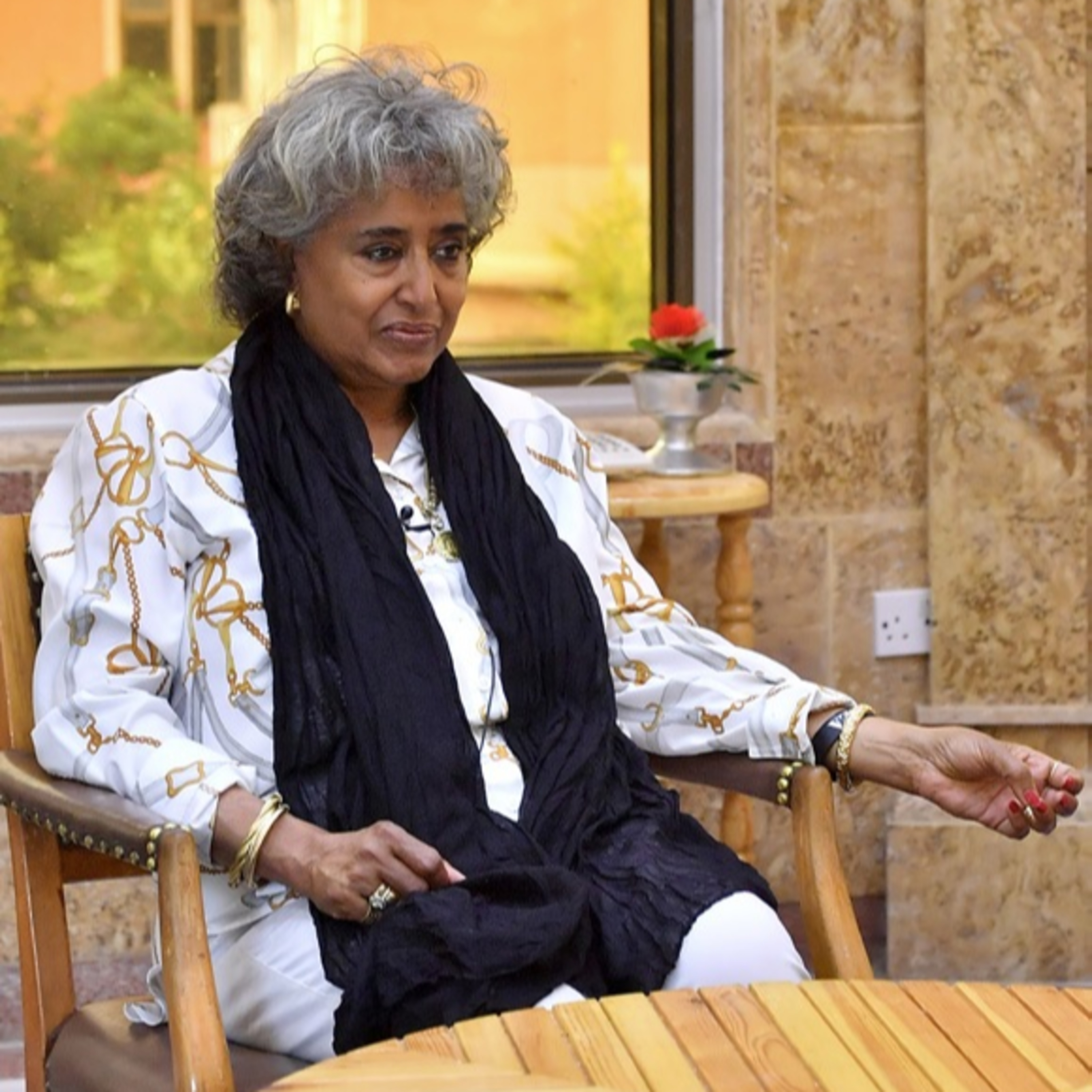
The Other Side of EritreaAmbassador Sofia Tesfamariam dismantles with facts Ambassador Dina Mufti's articleAmbassador Sophia Tesfamariam dismantles with facts Ambassador Dina Mufti's article "Transcending the Ethio-Eritrean Conundrum," arguing that it misrepresents history and undermines Eritrea's sovereignty under the guise of regional integration. The author, Ambassador Sophia Tesfamariam, challenges Mufti's historical revisionism regarding Eritrea's independence and the 1998-2000 Eritrea-Ethiopia war, emphasizing Ethiopia's defiance of the Eritrea-Ethiopia Boundary Commission (EEBC) ruling. The text asserts that true regional peace requires honesty, justice, and adherence to international law, including the inviolability of borders, rather than Eritrea's capitulation to Ethiopian hegemonic ambitions. Ultimately, it portrays Eritrea's stance as principled and rooted in sovereignty, countering narratives of intransigence.
2025-08-0518 min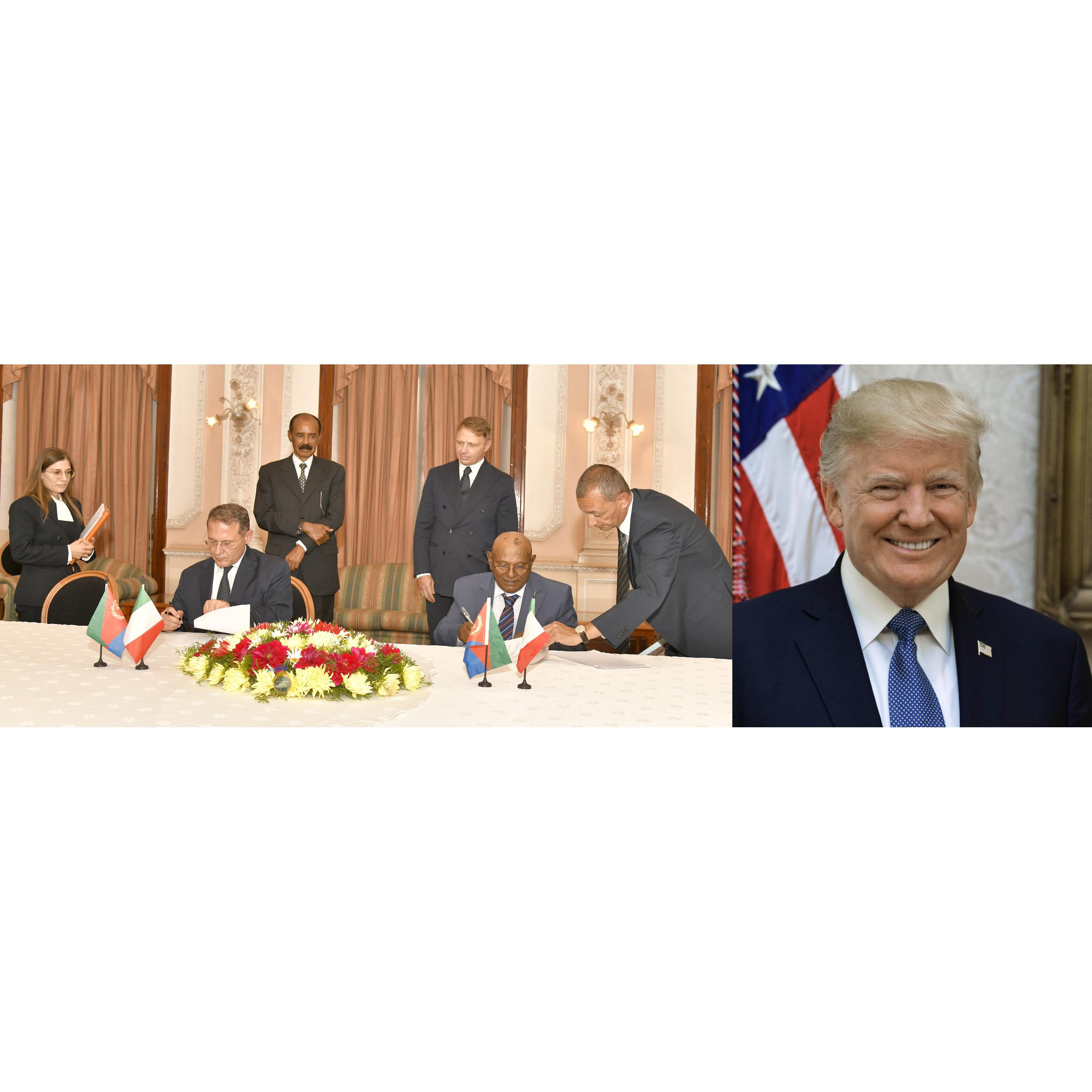
The Other Side of EritreaEritrea Forges New Ties with Italy and TrumpAnalyzing the significant diplomatic developments concerning Eritrea, primarily focusing on its strengthening bilateral ties with Italy. A high-level Italian delegation visited Eritrea to sign a comprehensive plan of action, aiming to enhance cooperation in various sectors like energy, infrastructure, agriculture, and maritime security. This agreement signals a new phase of collaboration and potential investments, with both nations planning a future business forum. Additionally, the text reveals a message from former U.S. President Donald Trump to Eritrean President Isaias Afwerki, expressing a desire to re-establish a respectful and productive relationship between the U.S. and Eritrea, emphasizing peace and...
2025-08-0425 min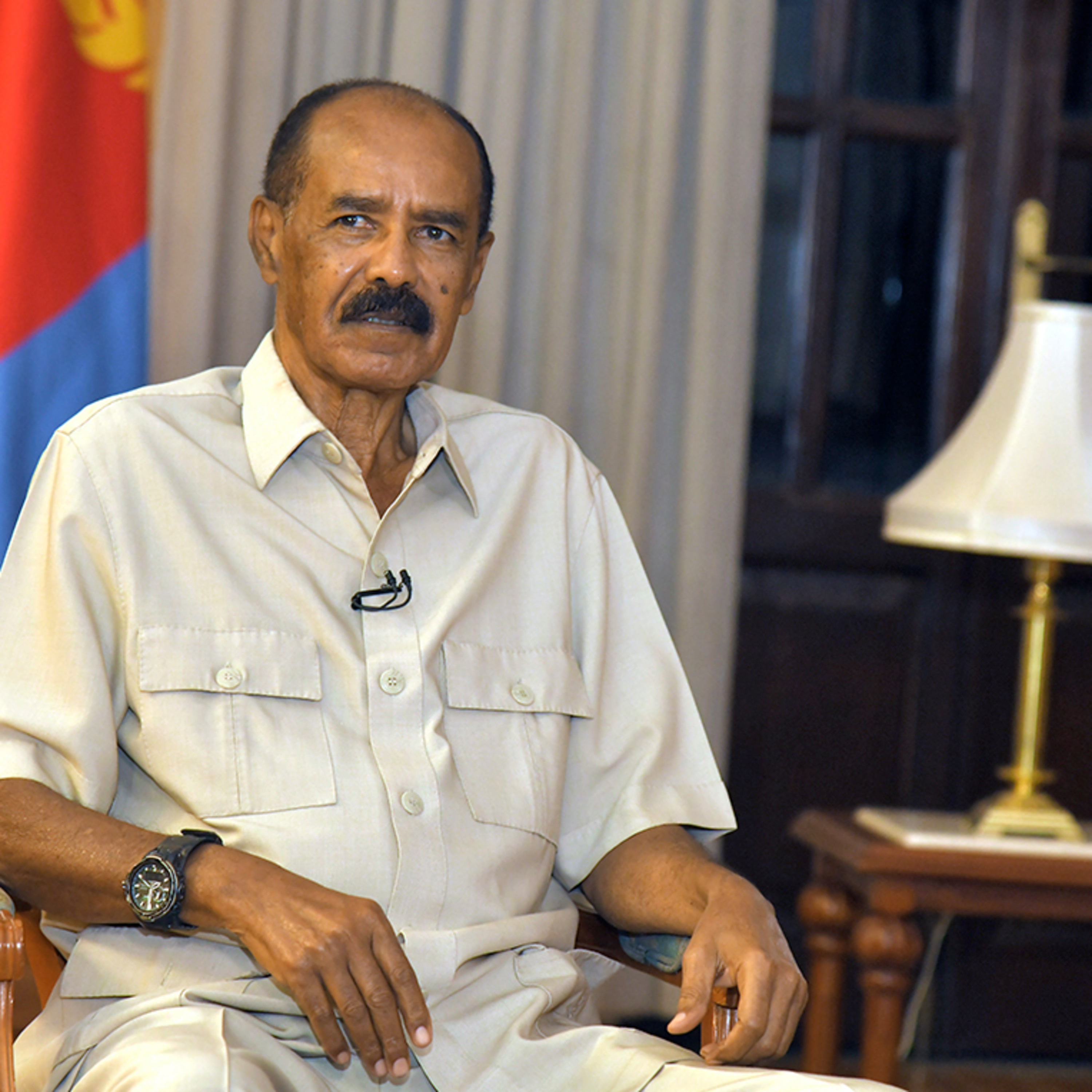
The Other Side of EritreaEritrea's Vision: Development, Diplomacy, and Domestic Priorities: President AfwerkiThis episode dives into an interview with President Isaias Afwerki of Eritrea, outlines the nation's comprehensive vision for national development and diplomatic strategy. President Afwerki details ambitious plans focusing on economic growth through agricultural expansion, including cotton and sugarcane cultivation, and the harnessing of marine resources. Furthermore, the discussion highlights critical initiatives in infrastructure development, specifically in water storage through dam construction, energy production via regional mini-grids, housing and urban planning, and improving transportation networks. Beyond domestic priorities, the interview addresses Eritrea's foreign policy, emphasizing constructive engagement in regional and international affairs, and the crucial role of strategic communication...
2025-08-0310 min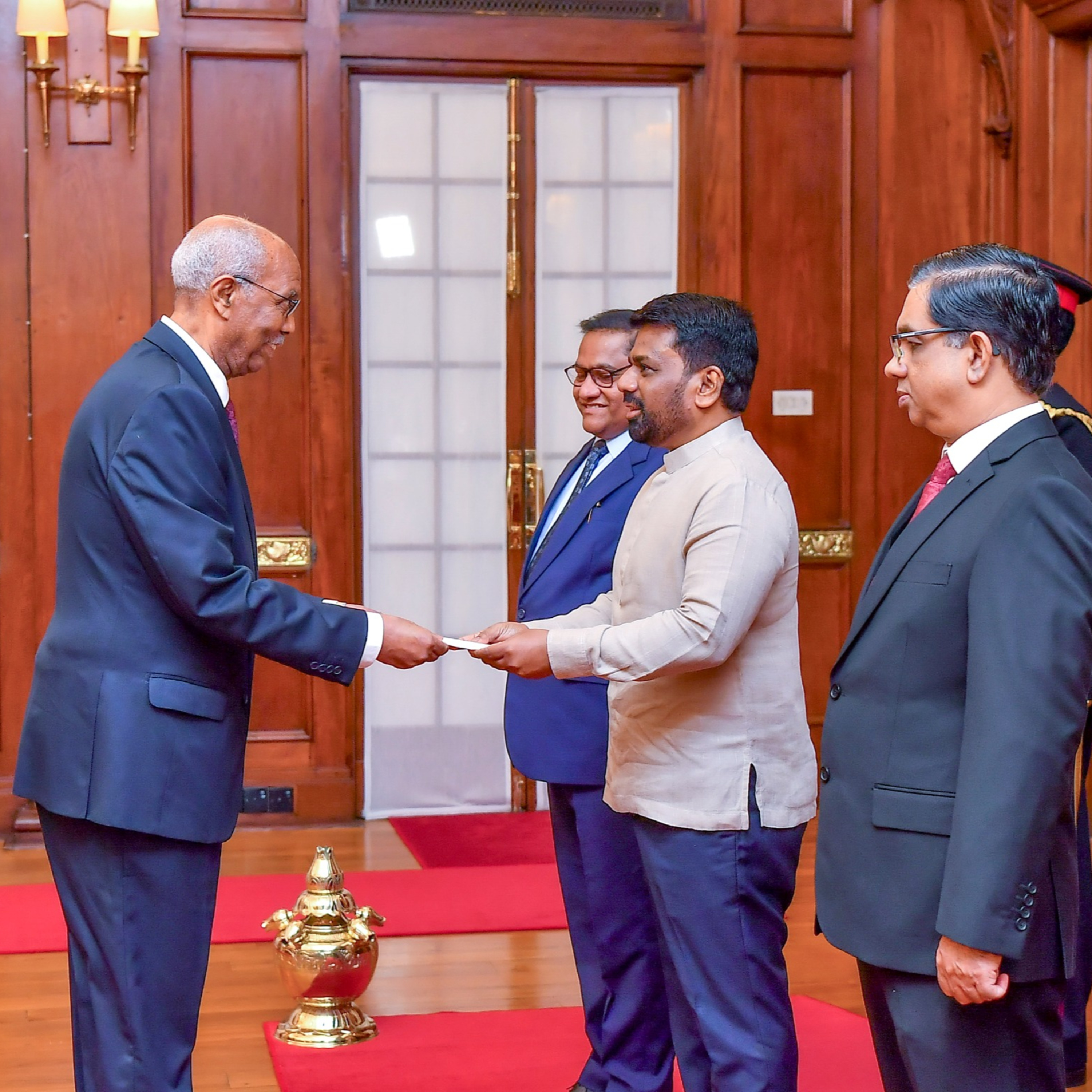
The Other Side of EritreaEritrea's Progress: Development, Diplomacy, and EducationToday we're looking at a comprehensive overview of recent developments in Eritrea, highlighting the nation's focus on agricultural progress through initiatives like the vegetable seed documentation workshop and the inauguration of the Dirfo Dam to improve water access. They also emphasize educational advancements, demonstrated by the graduation of health professionals from Orotta College and seminars for the diaspora promoting national awareness and consular services. Furthermore, the texts underscore Eritrea's diplomatic engagement with the presentation of Ambassador Alem Tsehaye's credentials to Sri Lanka and the vibrant Eritrean community festivals abroad that foster unity and national identity. These collective...
2025-07-2811 min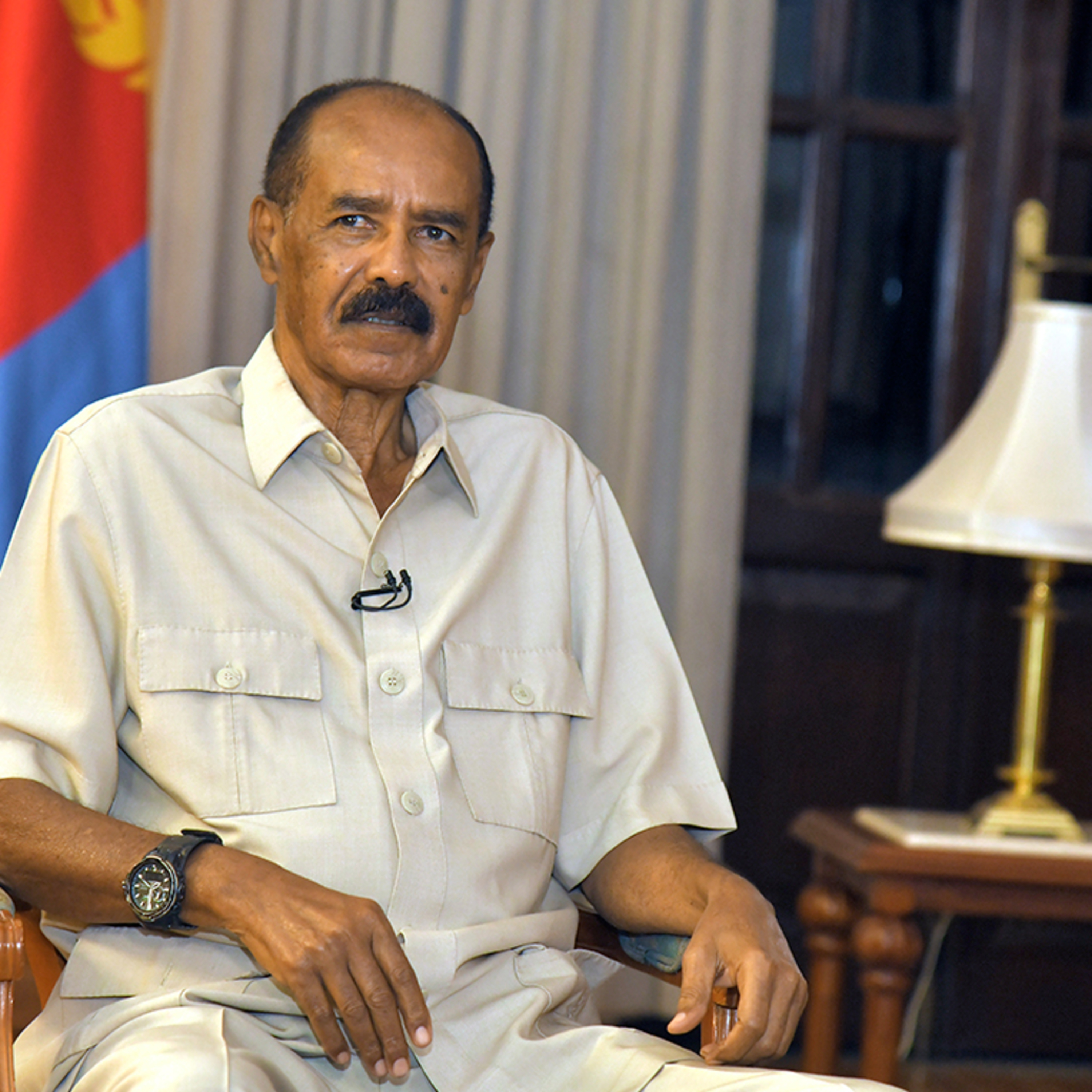
The Other Side of EritreaAfrica's Self-Reliance and Regional Integration: President AfwerkiThis episode analyses the interview of President Isaias Afwerki, offers a comprehensive outlook on Africa's path toward self-reliance and regional integration. President Afwerki emphasizes that Africa, despite its vast natural resources, remains underdeveloped due to external interference and debilitating dependency on aid. He advocates for internal transformation, industrialization, and the development of indigenous knowledge systems to overcome this hindered state. The interview also touches upon Eritrea's foreign policy, particularly its efforts to normalize relations with the United States and address regional instability in the Horn of Africa, largely attributed to external manipulation and internal divisions. Finally, President Afwerki stresses...
2025-07-2633 min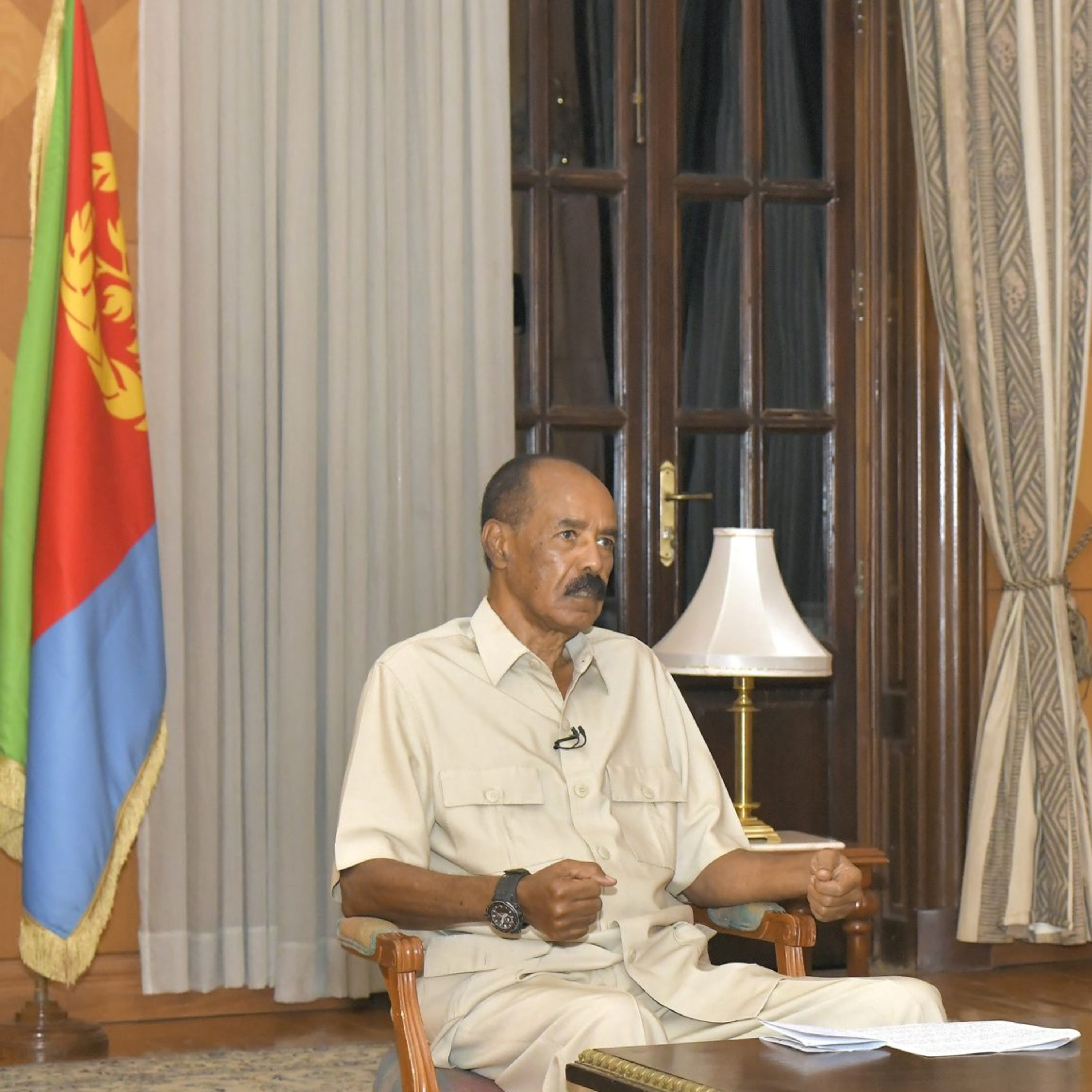
The Other Side of EritreaA Shifting World Order: President Afwerki on Global AffairsThis episode discusses the the nterview with President Isaias Afwerki on July 19, 2025.President Afwerki focuses on Global Affairs." In this interview, President Afwerki discusses the historical trajectory of global affairs, particularly focusing on the transition from a bipolar Cold War order to a unipolar system, and its consequences for nations like Eritrea. He argues that the unipolar order, led by the US and its allies, has been based on flawed assumptions and has led to instability and exploitation, as exemplified by the conflict in Ukraine. The President concludes by asserting that the unipolar system is unraveling, paving...
2025-07-2324 min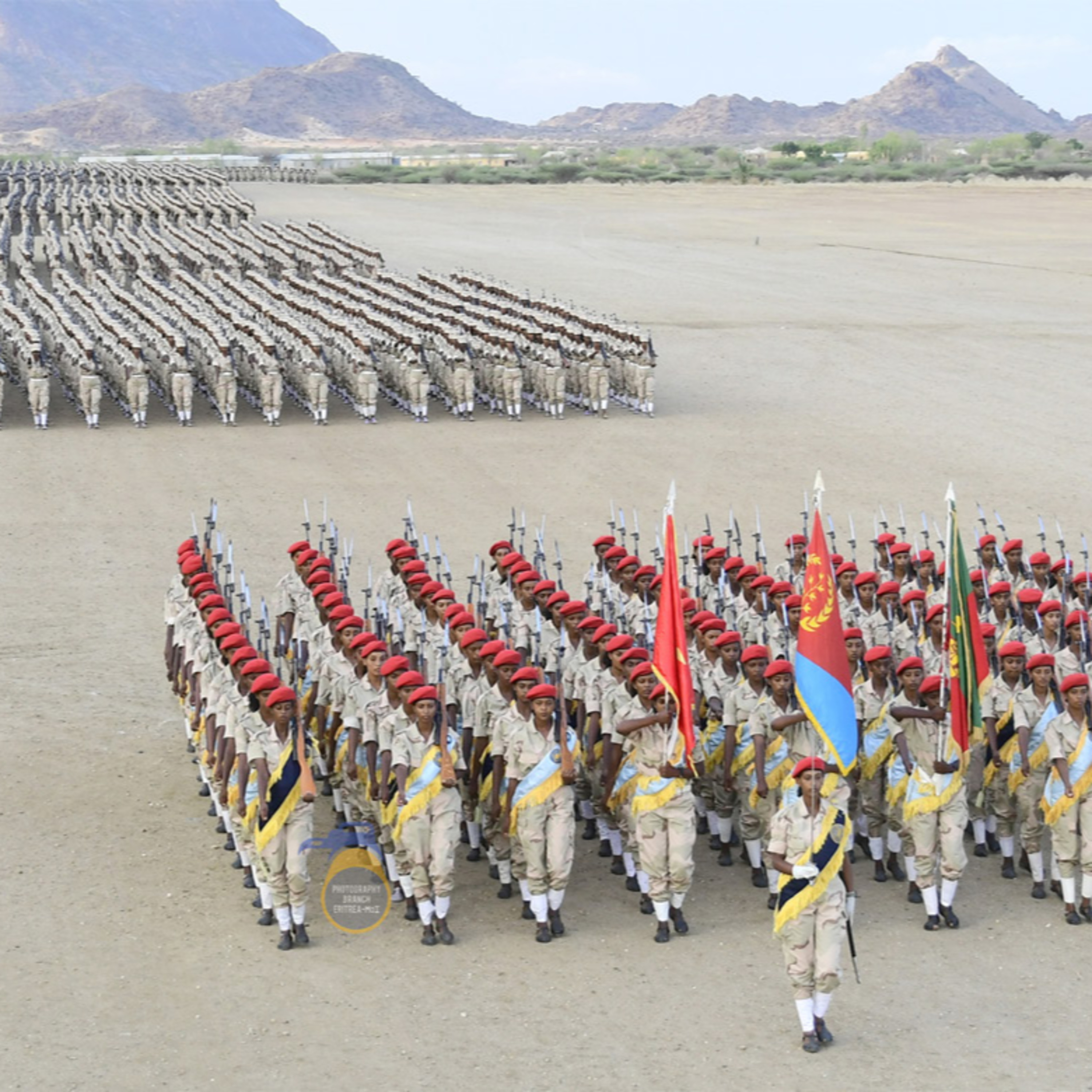
The Other Side of EritreaSawa: Forging Eritrea's Future Nation-BuildersThis episode describes the Sawa graduation ceremony in Eritrea, a significant event marking the completion of secondary education and military training for young Eritreans. Sawa is presented as a "melting pot" fostering national unity among the nine ethnic groups, with the program integrating academic studies, military instruction, and cultural education. The ceremony itself featured a military parade rich in symbolism and diverse artistic performances showcasing Eritrea's cultural heritage. Speeches from President Isaias Afwerki and Colonel Debesay Ghide highlighted the program's goals of academic achievement, national development, and holistic personal growth, emphasizing the comprehensive year-long curriculum and the increasing participation...
2025-07-1807 min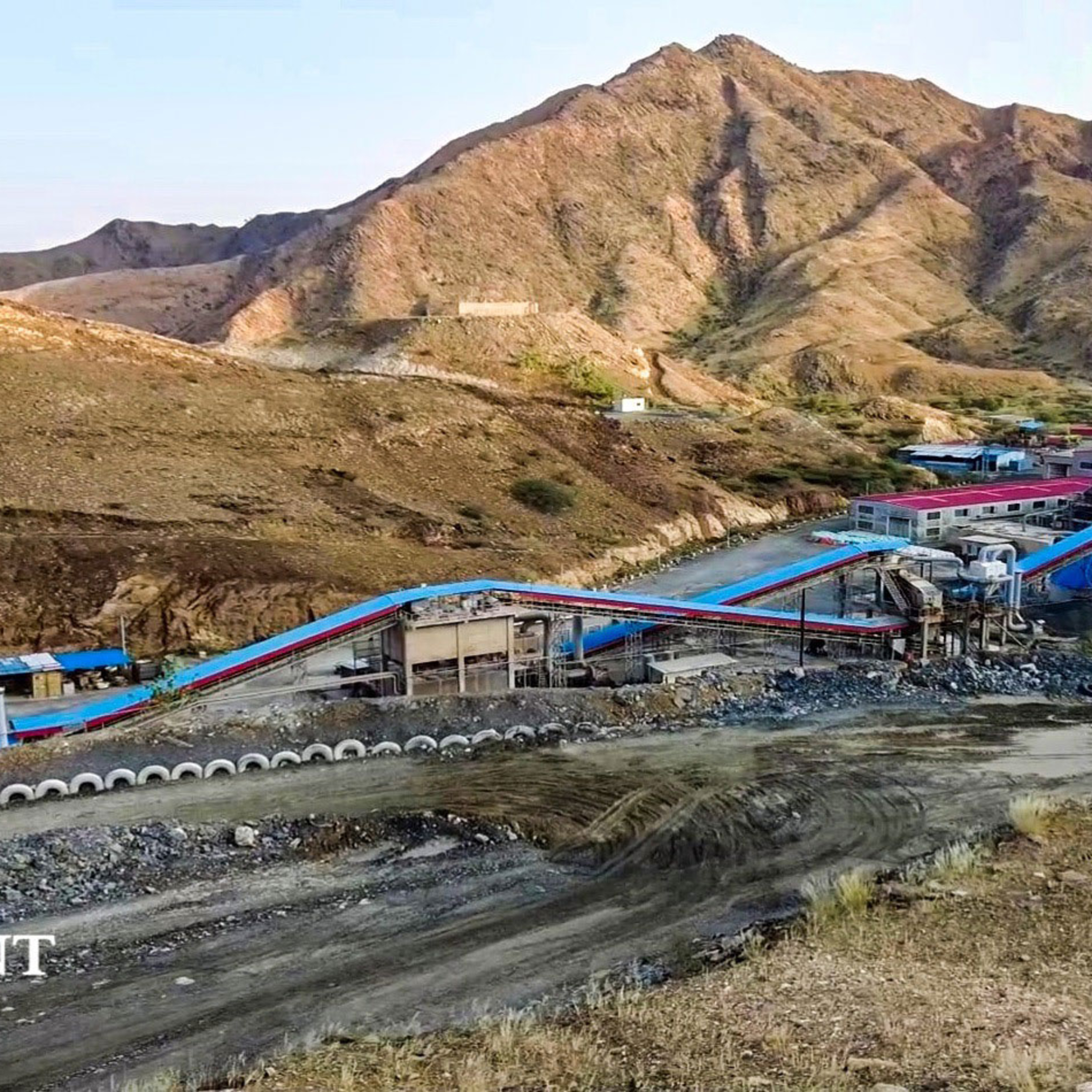
The Other Side of EritreaEritrea's Holistic Development: Beyond the Resource CurseThis episode examines Eritrea's unique approach to national development, specifically addressing the common misconception of the "resource curse." It argues that Eritrea treats natural resources as only one component within a broader, holistic development strategy that prioritizes human capital, infrastructure, and agriculture. The source emphasizes Eritrea's cautious management of its mineral wealth, aiming for sustainability and public ownership, and highlights its "zero tolerance" policy on corruption. Ultimately, the text suggests that Eritrea's measured progress in health and education, along with its stability and low corruption rates, differentiate it from other resource-rich nations.From Shabait...
2025-07-1811 min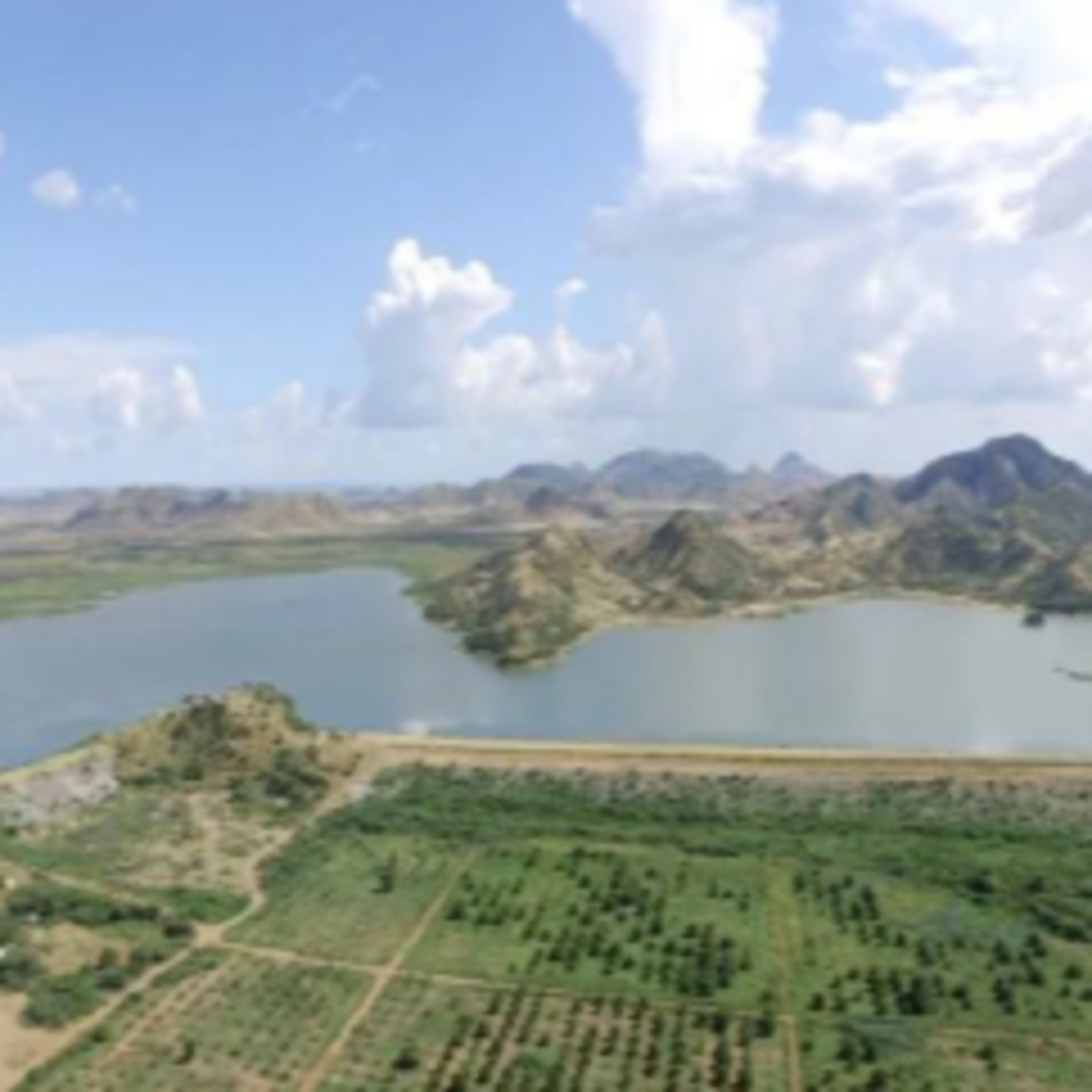
The Other Side of EritreaFive lessons from Eritrea’s self-reliance in an era of global aid cutsThis episode dives into Nahla Valji's article, Five lessons from Eritrea’s self-reliance in an era of global aid cuts.Eritrea's Self-Reliance: A Development Model for a Changing World Nahla Valji, UN Resident and Humanitarian Coordinator in Eritrea, discusses Eritrea's approach to self-reliance in an era of global aid reductions. It highlights how Eritrea has prioritized its own national development agenda, rather than solely relying on external assistance, and offers five key lessons from its model. These lessons include setting national priorities for aid, strengthening domestic resources, investing in human capital, fostering co...
2025-07-0734 min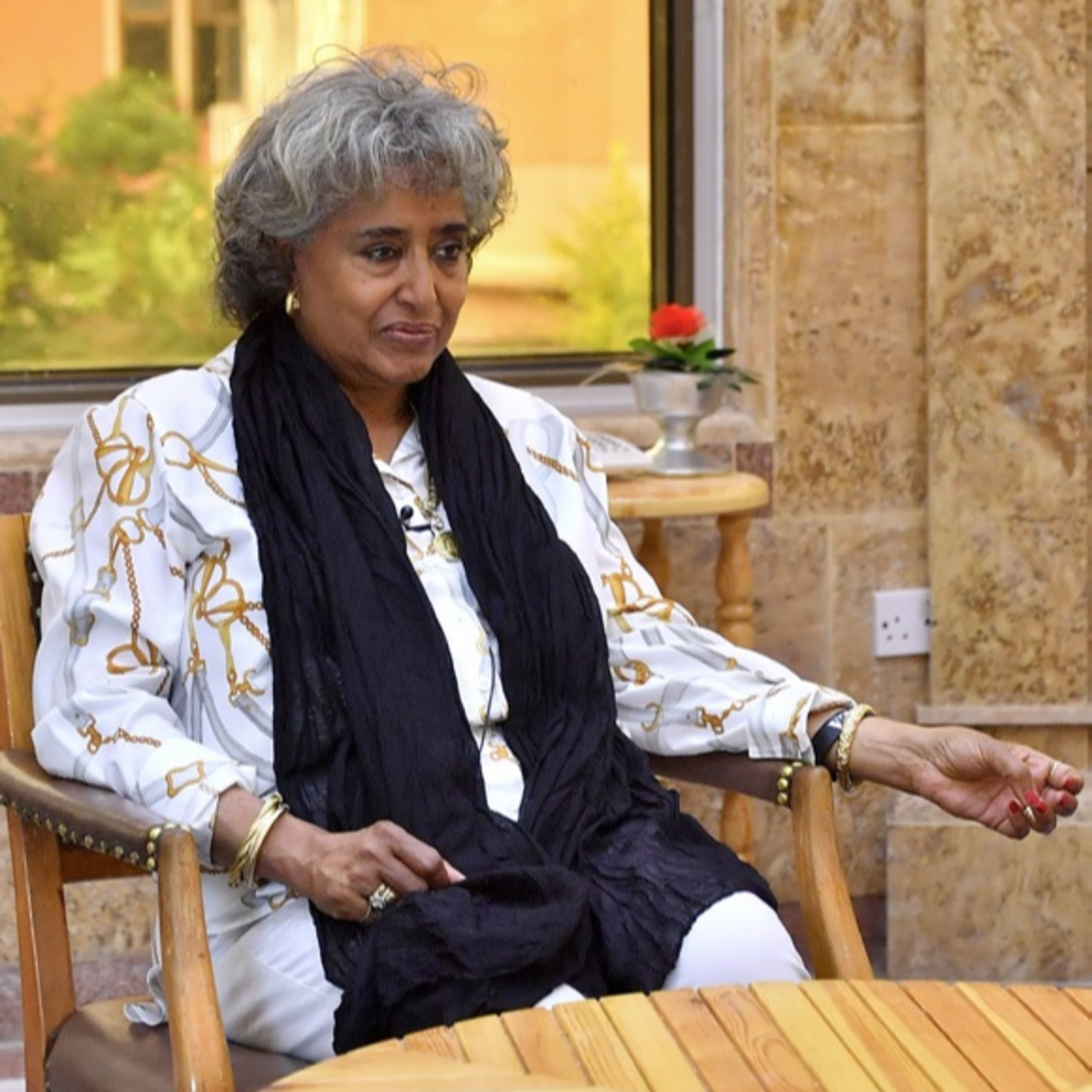
The Other Side of EritreaEritrea exposes the Politicized UN Human Rights CouncilThis episode dives into tghe Statements from Eritrea's Minister of Information and Ambassador Sofia Tesfamariam, who collectively argue against the United Nations Human Rights Council's (UNHRC) targeting of Eritrea. Both contend that the UNHRC's mandate concerning Eritrea is politically motivated, rather than based on objective human rights concerns. They suggest that Western states exert undue influence, using human rights mechanisms as tools for foreign policy and to penalize Eritrea's independent development path. The authors assert that this politicization undermines the UNHRC's credibility and impartiality, fostering a system where sovereign nations face selective punishment while others are shielded. Ultimately, the...
2025-07-0618 min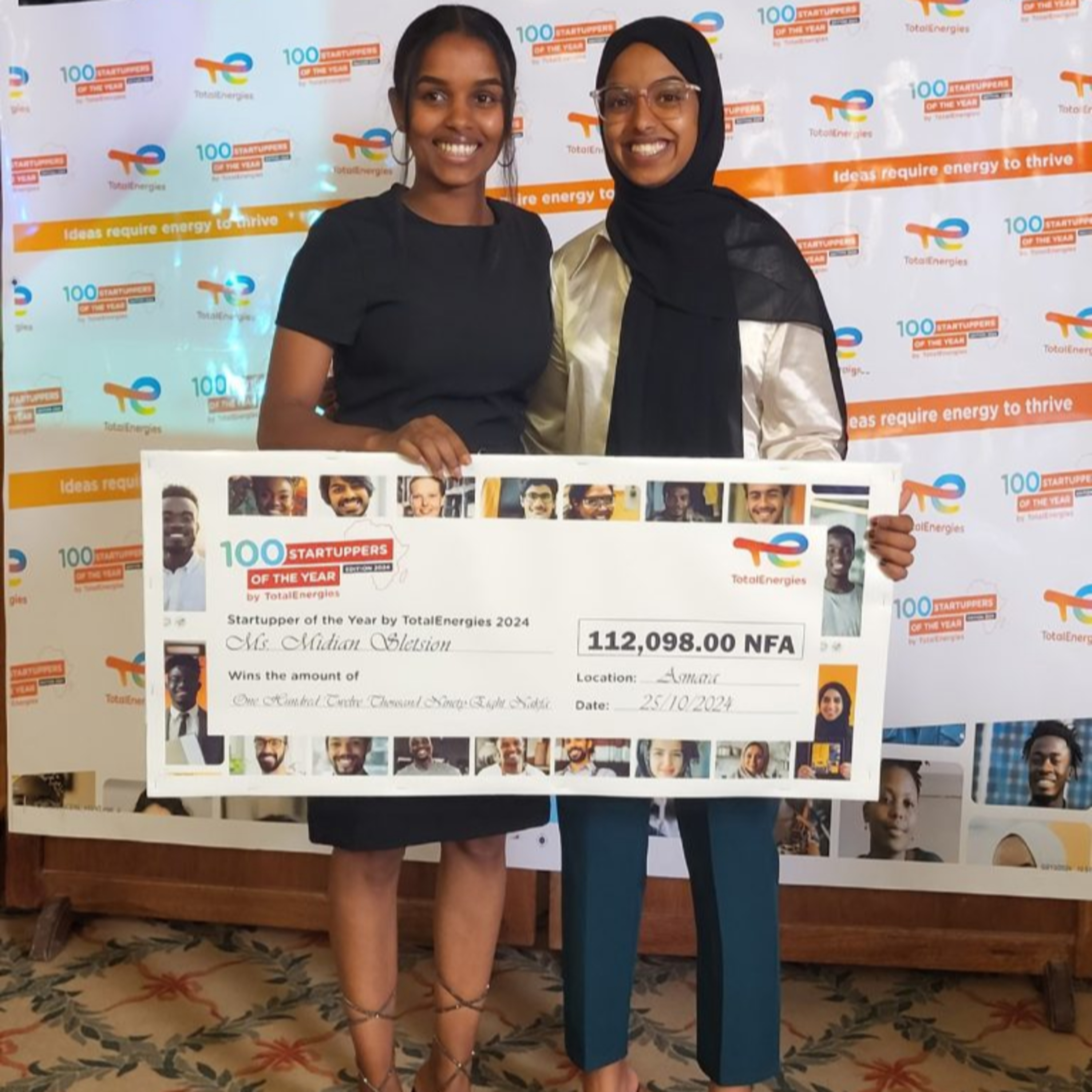
The Other Side of EritreaEritrean Women Engineer Sustainable Energy SolutionsThe episode highlights two young Eritrean female chemical engineers, Khamail Alhassen Mohammed and Midian Seletsion Mogos, who won the "Power' Up" category in Total Energies' Start Upper of the Year Challenge. Their award-winning project focuses on producing eco-friendly and affordable biocharcoal briquettes from Prosopis juliflora, an invasive tree in Eritrea, addressing both environmental concerns and the need for sustainable energy. The engineers share their educational backgrounds, experiences in the competition, and their broader vision for using chemical engineering to solve societal problems. They also offer encouragement to other young women to challenge stereotypes and pursue their potential in STEM...
2025-07-0339 min
The Other Side of EritreaEritrean Female Engineers: Ruth Yohannes's Multidisciplinary JourneyThis episode profiles Ruth Yohannes, an Eritrean civil engineer who exemplifies the nation's career-driven women contributing to development. It highlights her educational journey through the Eritrean system, including her transition from teaching mathematics and physics to her current role as a supervisor at Segen Construction Company. The piece emphasizes her belief in women's ability to multitask, balancing her engineering career with her passion as a makeup and nail artist. Furthermore, it discusses her involvement with a club of career-driven women that mentors young females, underscoring the importance of psychological preparedness and the opportunities provided by free education in Eritrea.
2025-07-0226 min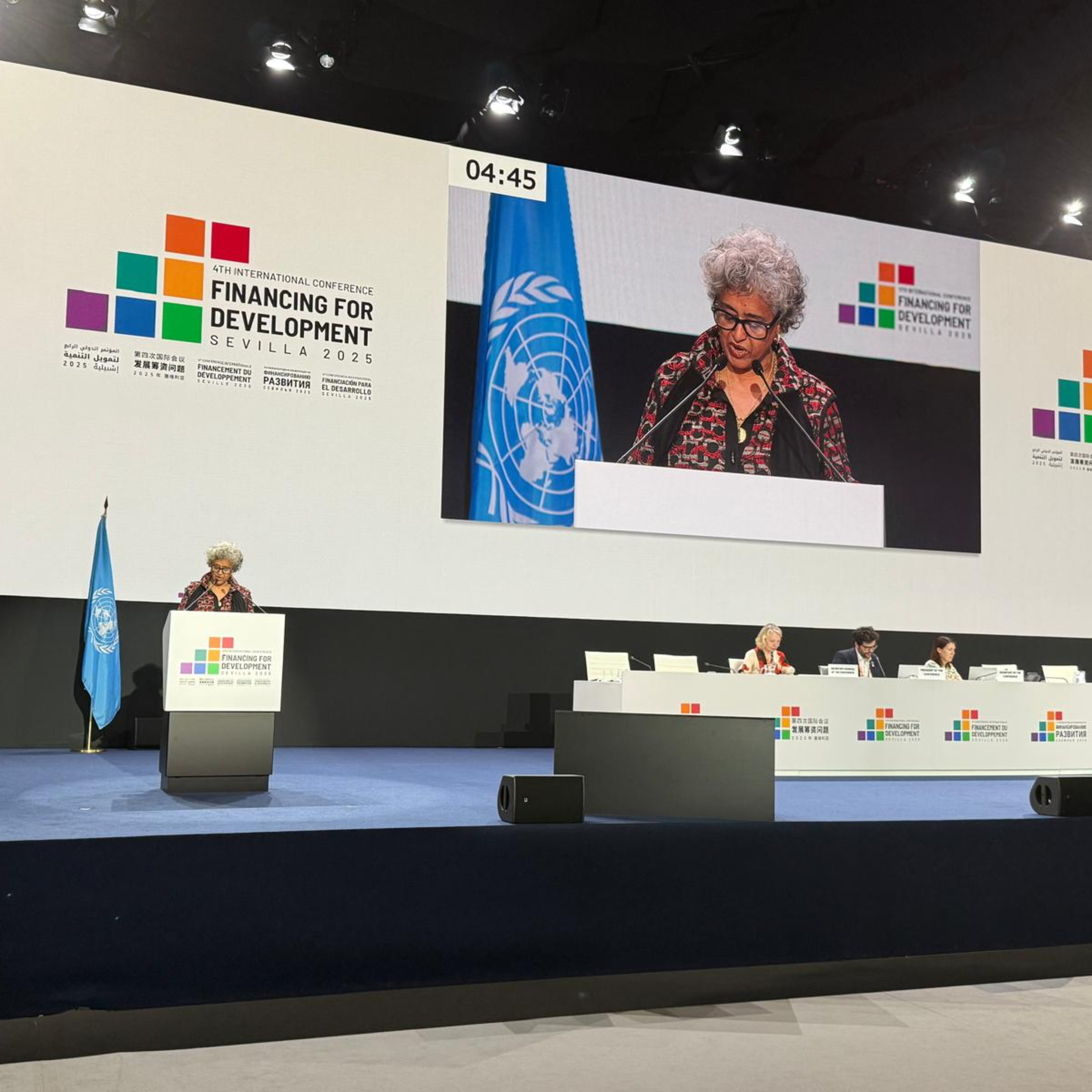
The Other Side of EritreaEritrea's Vision for Equitable Global Development and Self-RelianceThis episode dives into the statement from Eritrea's representative, Ambassador Sophia Tesfamariam, delivered at the Fourth International Conference on Financing for Development in Seville, Spain, on July 2, 2025. This statement outlines Eritrea's perspective on global development challenges and solutions. It emphasizes the existential imperative of development for Least Developed Countries (LDCs), highlighting issues such as structural inequalities, limited productive capacity, technological barriers, and the detrimental impact of unilateral coercive measures. The statement advocates for a reconfigured global financial and economic system based on equity and sustainability, while also reiterating Eritrea's commitment to self-reliance, national ownership, and improved international tax cooperation.
2025-07-0247 min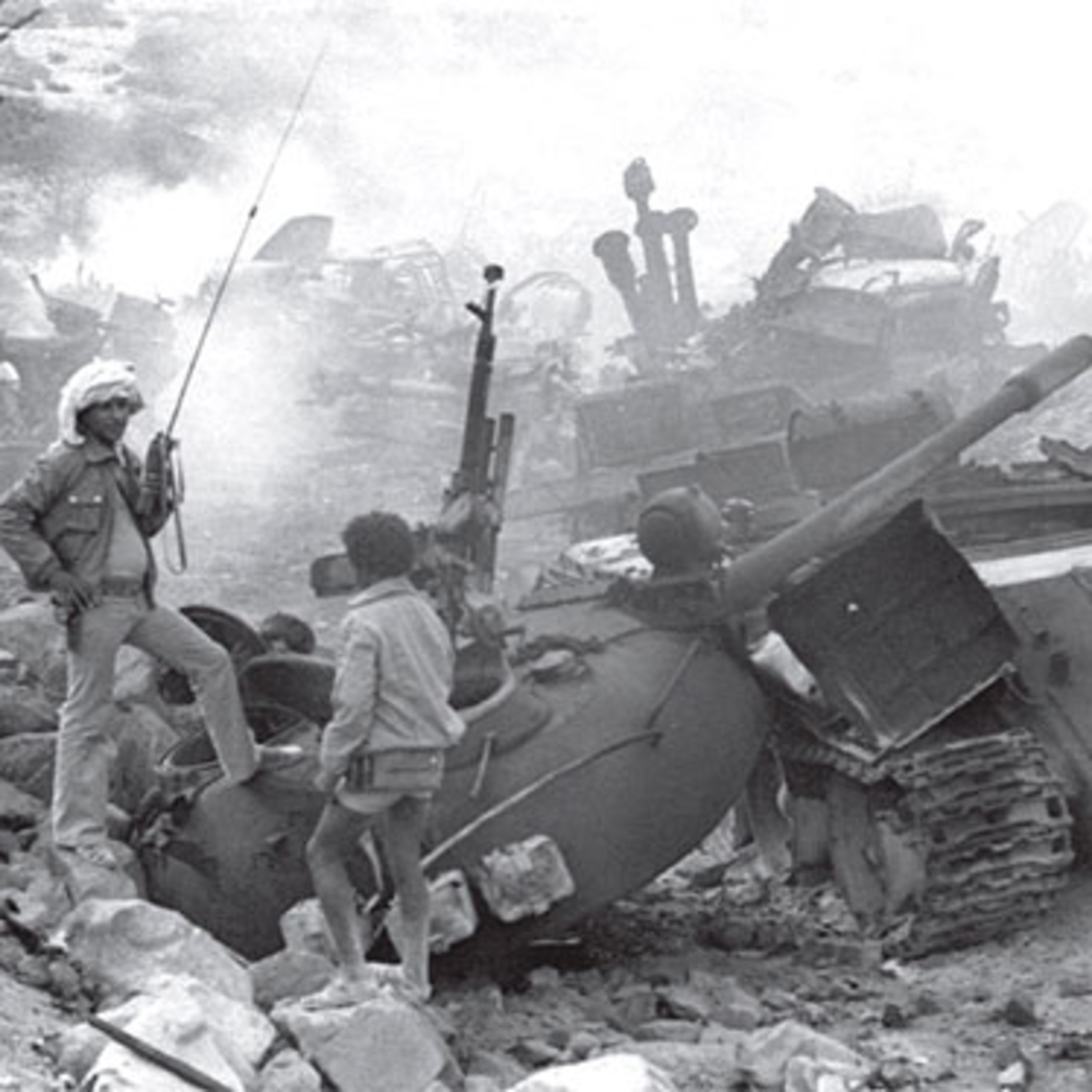
The Other Side of EritreaEthiopian Derg Government 7th Military Campaign Against EPLF "Stealth Offensive"This episode dives into the Ethiopian Derg government's "Stealth Offensive" in March 1983, a pivotal yet little-discussed military campaign during the Eritrean War of Independence. This offensive, launched seven months after the Derg's prior "Red Star Campaign" failed, aimed to exploit what the Derg perceived as a weakened Eritrean People's Liberation Front (EPLF), while also seeking to recover from previous humiliations. Despite mobilizing a substantial force of 120,000 troops in secrecy, the Derg suffered heavy losses, with around 25,000 troops dead or wounded, ultimately failing to achieve its objectives. Conversely, this offensive served as a crucial turning point for the EPLF, enabling...
2025-06-2921 min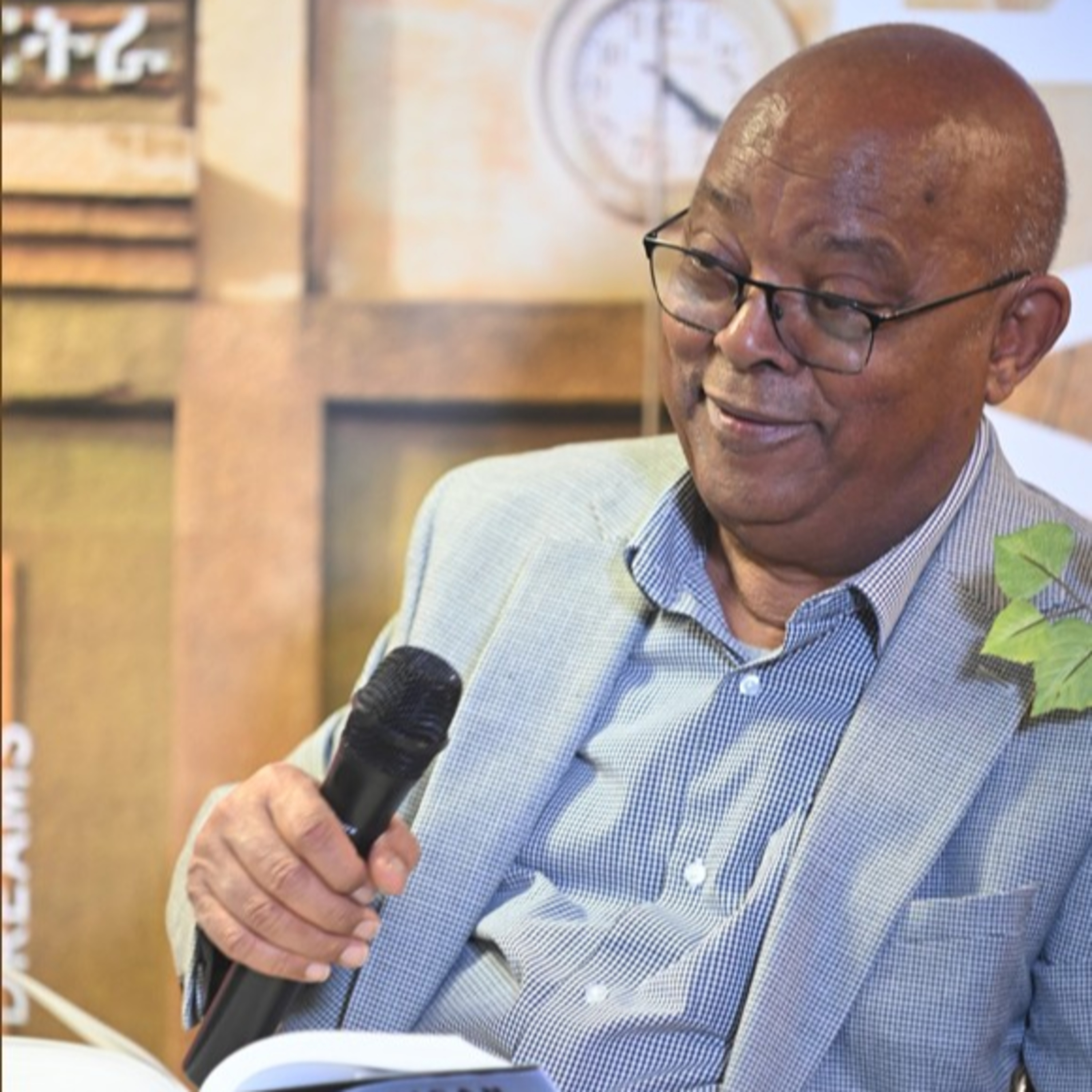
The Other Side of EritreaAlemseged Tesfai: Claiming Eritrea's Narrative and Quest for JusticeThis episode offers an in-depth interview with Alemseged Tesfai, a prominent Eritrean writer, historian, and freedom fighter. The discussion centers on his latest book, "An African People’s Quest for Freedom and Justice," which aims to retell Eritrean history from an Eritrean perspective, correcting external narratives. Tesfai highlights his personal experiences in the liberation struggle and academic studies as foundational to his work, emphasizing the resilience and unity of the Eritrean people amidst diversity. He also discusses his meticulous research process, the importance of addressing contemporary issues like peace in the Horn of Africa, and offers recommendations for readers ne...
2025-06-2838 min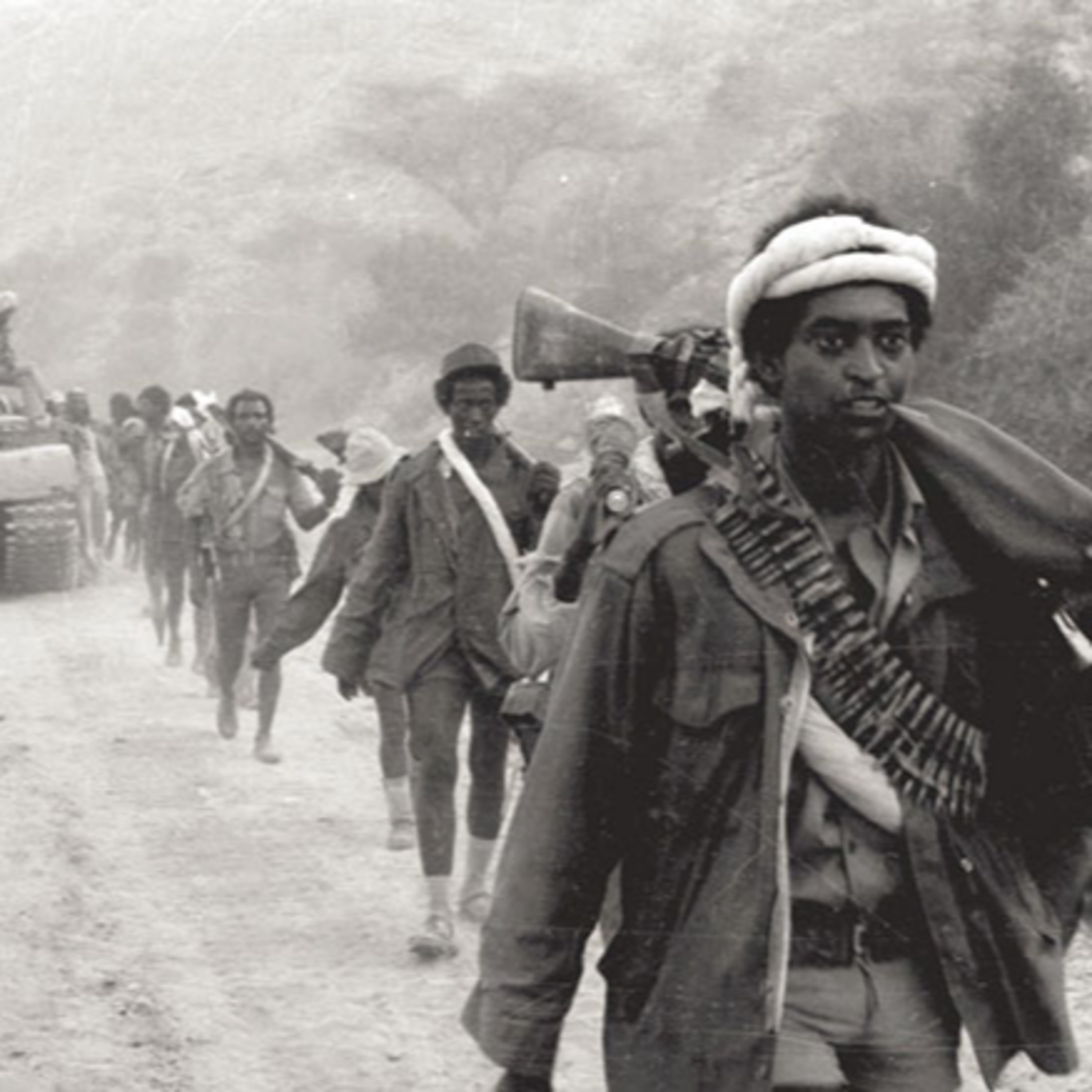
The Other Side of EritreaRed Star Campaign: Ethiopia's 6th Failed Offensive Against EPLFThis episode discusses the Red Star Campaign, a major military offensive, the 6th launched by the Ethiopian Derg government against the Eritrean People's Liberation Front (EPLF) in 1982 during the Ethiopian Civil War. The campaign, which involved over 80,000 Ethiopian troops, aimed to destroy Eritrean separatist forces and capture their stronghold in Nakfa. Despite initial tactical successes and significant numerical superiority, the Ethiopian forces ultimately failed to achieve their objectives, suffering heavy casualties and boosting the Eritrean will to resist. The account details the military strategies, key battles, and logistical aspects of the campaign, highlighting moments of both Ethiopian advancement and...
2025-06-2734 min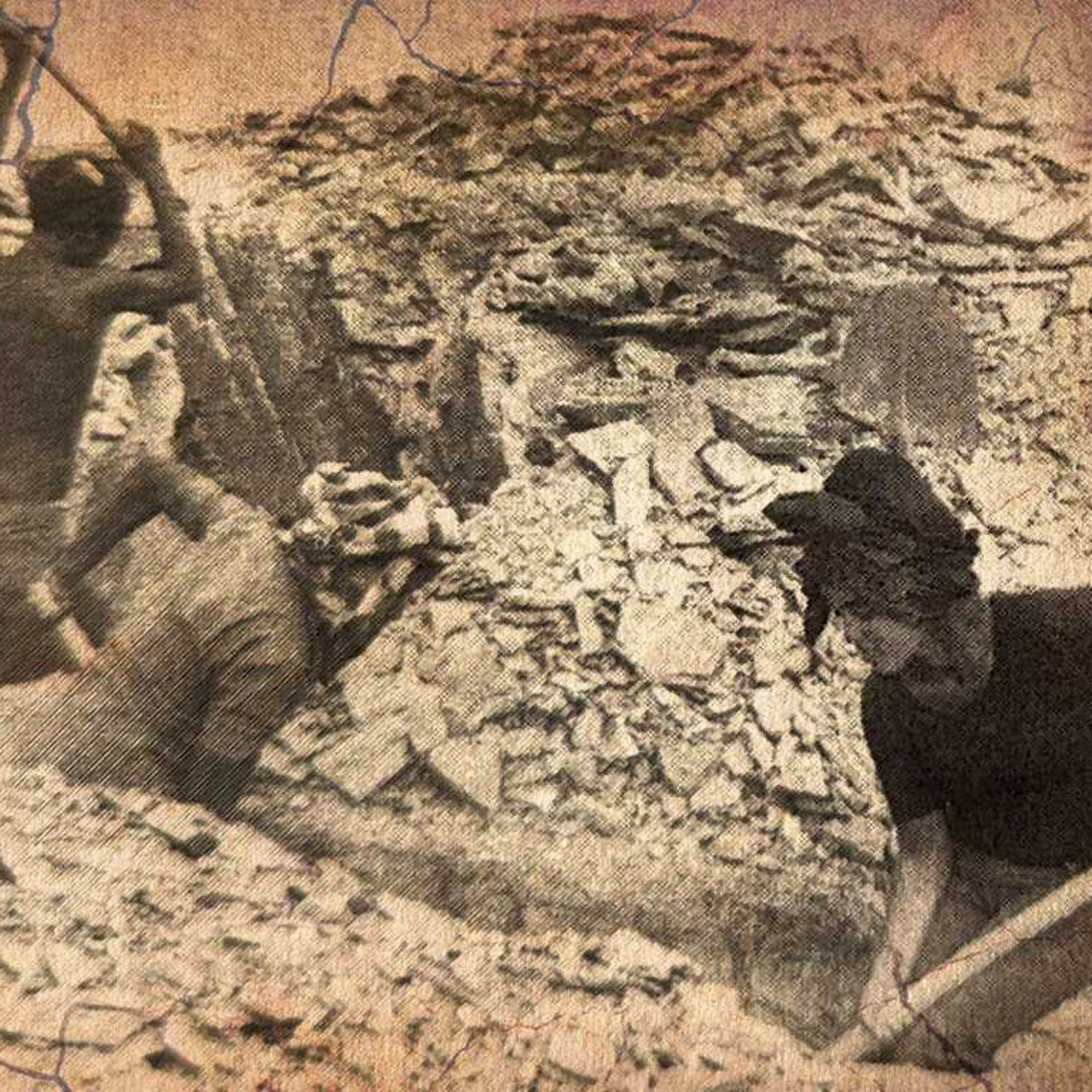
The Other Side of EritreaEthiopian Derg's Failed 5th Offensive Against EPLFThis episode details the Ethiopian Derg government's fifth military offensive against the Eritrean People's Liberation Front (EPLF) in July 1979, following previous failures. It outlines the Derg's strategic objectives, which included splitting EPLF lines, cutting supply routes, and encircling key positions around Nakfa and Northeastern Sahel. The document describes the Derg's battle plans, involving multi-pronged assaults and attempts to establish rear footholds, alongside the EPLF's defensive preparations, which focused on reinforcing existing fortifications. Finally, it recounts the invasion itself, highlighting the EPLF's successful defense against the frontal and flanking maneuvers, ultimately leading to heavy Ethiopian losses and the collapse of...
2025-06-2631 min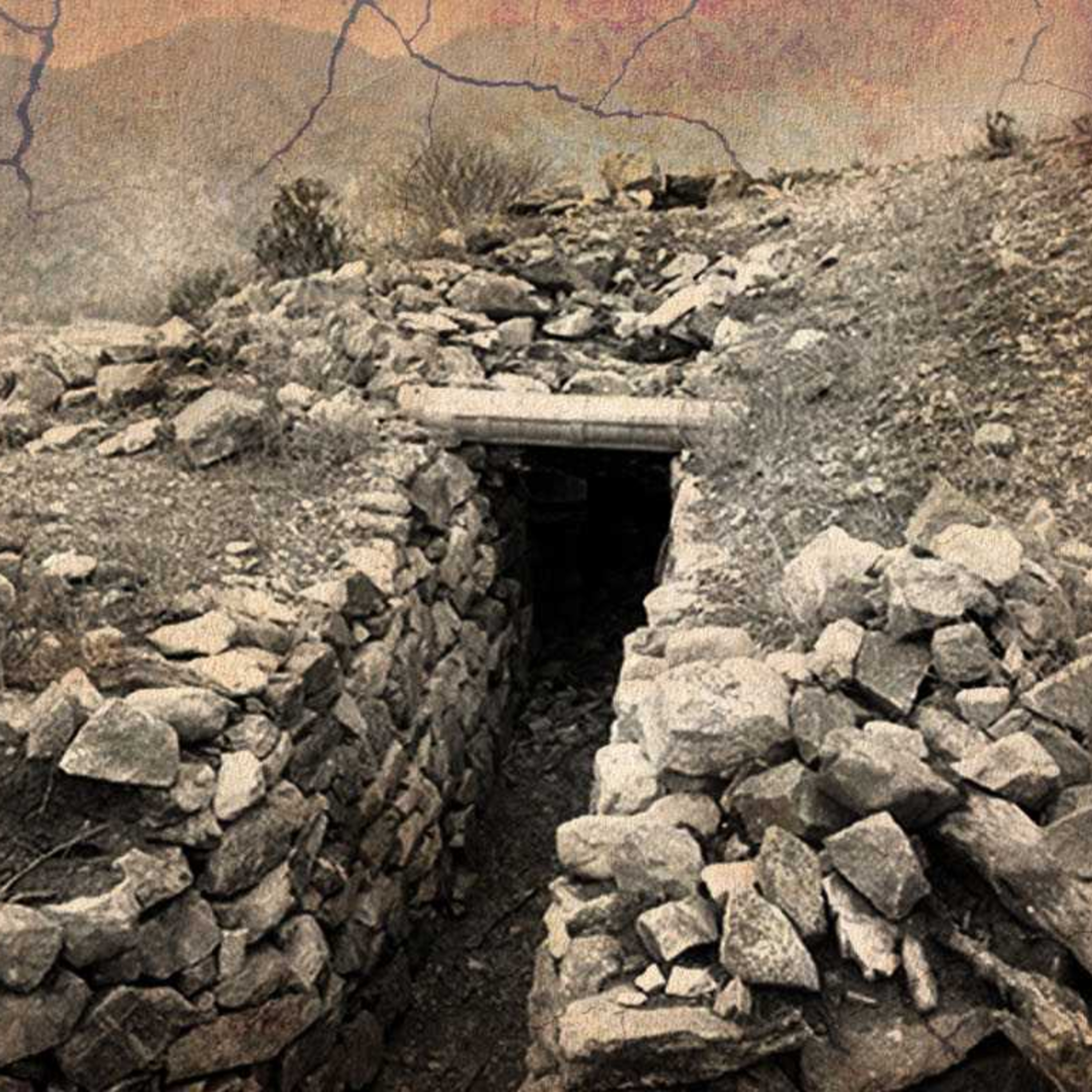
The Other Side of EritreaDerg's Fourth Offensive: Nakfa's Unyielding FortificationsThis episode explires the Ethiopian Derg Government's fourth military offensive against the Eritrean People's Liberation Front (EPLF), launched in March 1979 at the Nakfa Front. This detailed account outlines the Derg regime's extensive preparations, including substantial human and logistical resources, and their strategic objective: to employ a "Hammer and Anvil" tactic to breach EPLF defenses and capture Nakfa. The sources explain the formations of both armies, the intense bombardments, and the fierce defensive battles that ensued, highlighting the EPLF's fortified positions and successful counterattacks which ultimately repelled the Derg's advance by April 11, 1979.From Zantana by...
2025-06-2627 min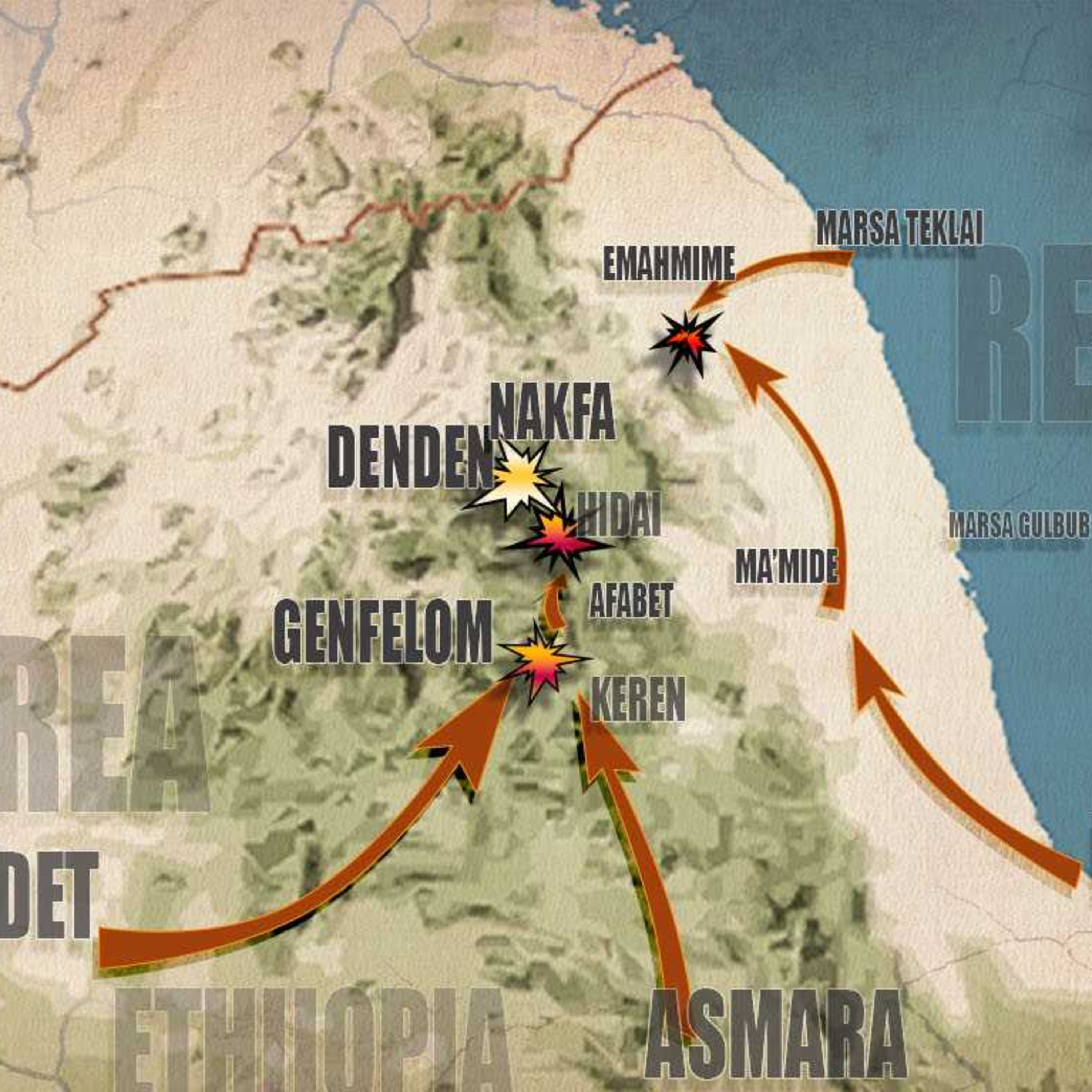
The Other Side of EritreaEthiopian Derg's Third Campaign Against EPLFThis episode, explores the Ethiopian Derg Government's fourth military offensive against the Eritrean People's Liberation Front (EPLF), launched in March 1979 at the Nakfa Front. This detailed account outlines the Derg regime's extensive preparations, including substantial human and logistical resources, and their strategic objective: to employ a "Hammer and Anvil" tactic to breach EPLF defenses and capture Nakfa. The sources explain the formations of both armies, the intense bombardments, and the fierce defensive battles that ensued, highlighting the EPLF's fortified positions and successful counterattacks which ultimately repelled the Derg's advance by April 11, 1979.From Zantana by...
2025-06-2626 min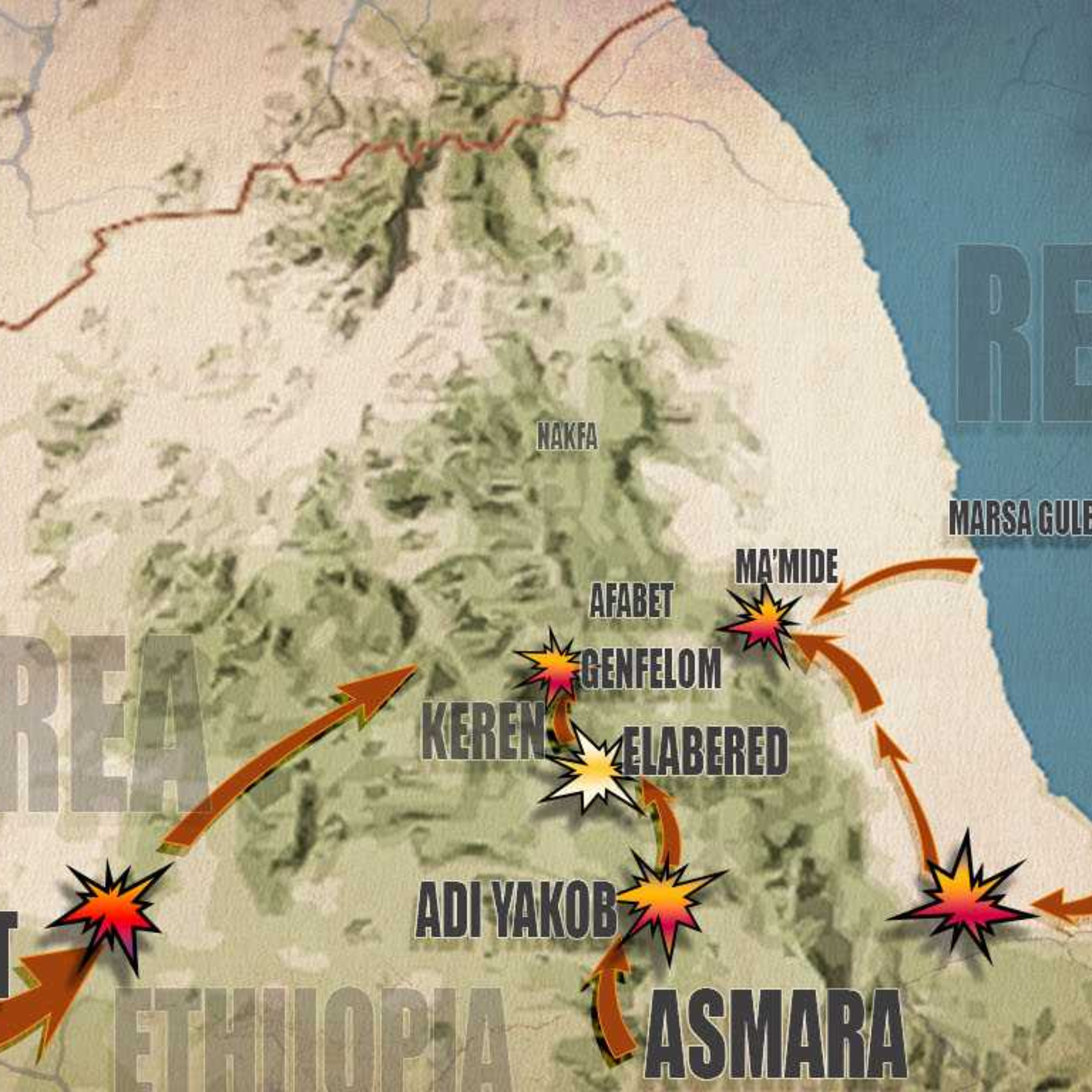
The Other Side of EritreaEthiopian Derg's Second Campaign Against EPLFThis episode is part 2 of 7 Ethiopian Derg government's second military campaign against the Eritrean People's Liberation Front (EPLF), launched on November 18, 1978. This offensive was a three-pronged attack aimed at dislodging the EPLF from key positions in central and northern Eritrea, including Adi Yakob and Keren. While Ethiopian forces initially achieved some success, capturing Adi Yakob, the EPLF executed strategic withdrawals and mounted effective counter-attacks, such as the Battle of Elabered and the decisive stand at Ma’mide. Ultimately, the EPLF withdrew to the Sahel province to establish a new defensive base, demonstrating their resilience against the superior Ethiopian forces....
2025-06-2623 min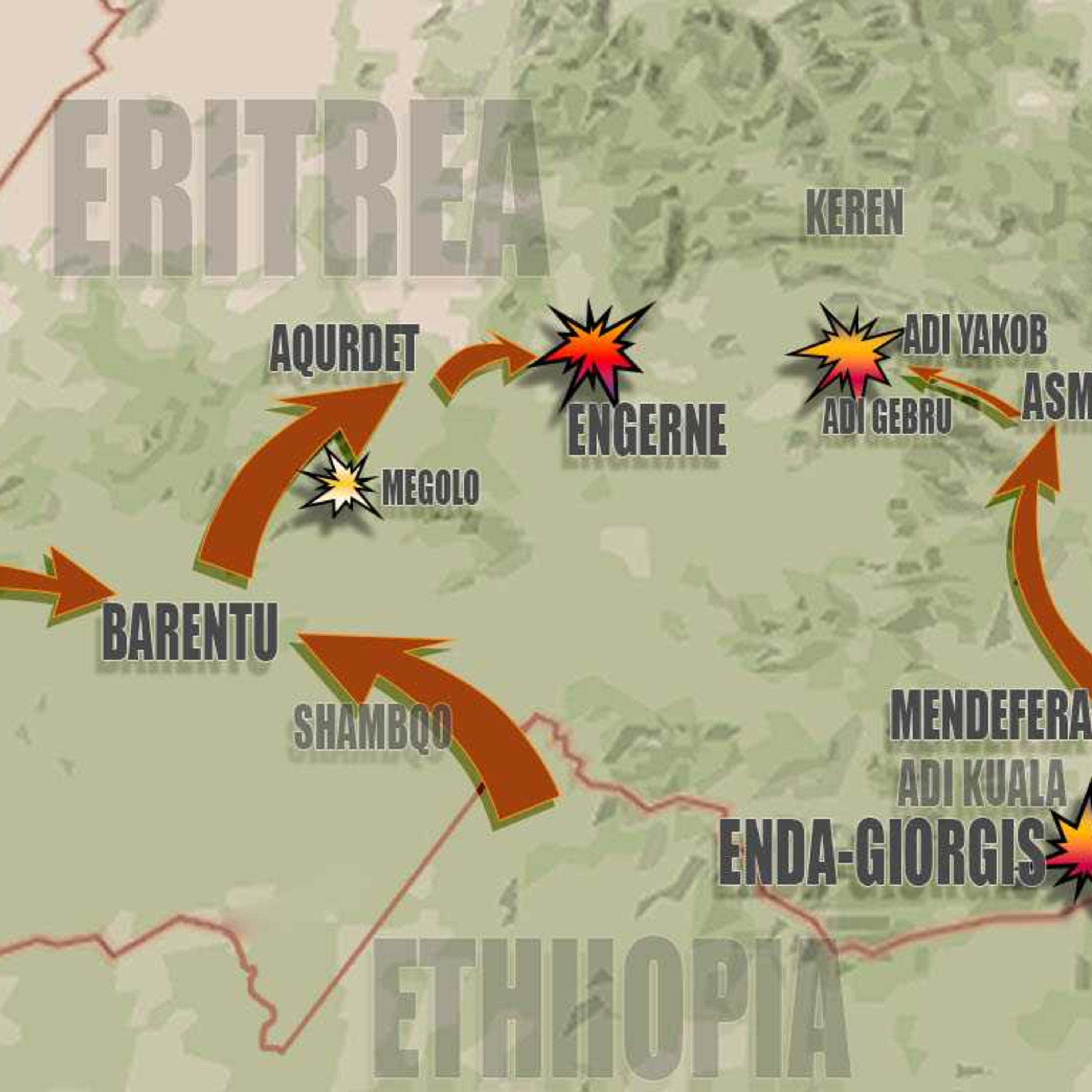
The Other Side of EritreaEthiopian Derg's First Campaign Against Eritrean Liberation FrontsThis episode talks about the first military campaign launched by the Ethiopian Derg government against Eritrean liberation fronts, specifically the Eritrean Liberation Front (ELF) and the Eritrean People's Liberation Front (EPLF), which began on June 13, 1978. It outlines the initial Ethiopian advances from various directions, leading to the capture of key cities like Barentu and eventually Asmara. The document describes the EPLF's tactical withdrawals and reorganizations in response to the Ethiopian momentum, as well as the ELF's efforts to slow the advance. Ultimately, the campaign concluded with the EPLF establishing new defensive lines in various strategic locations after withdrawing from...
2025-06-2626 min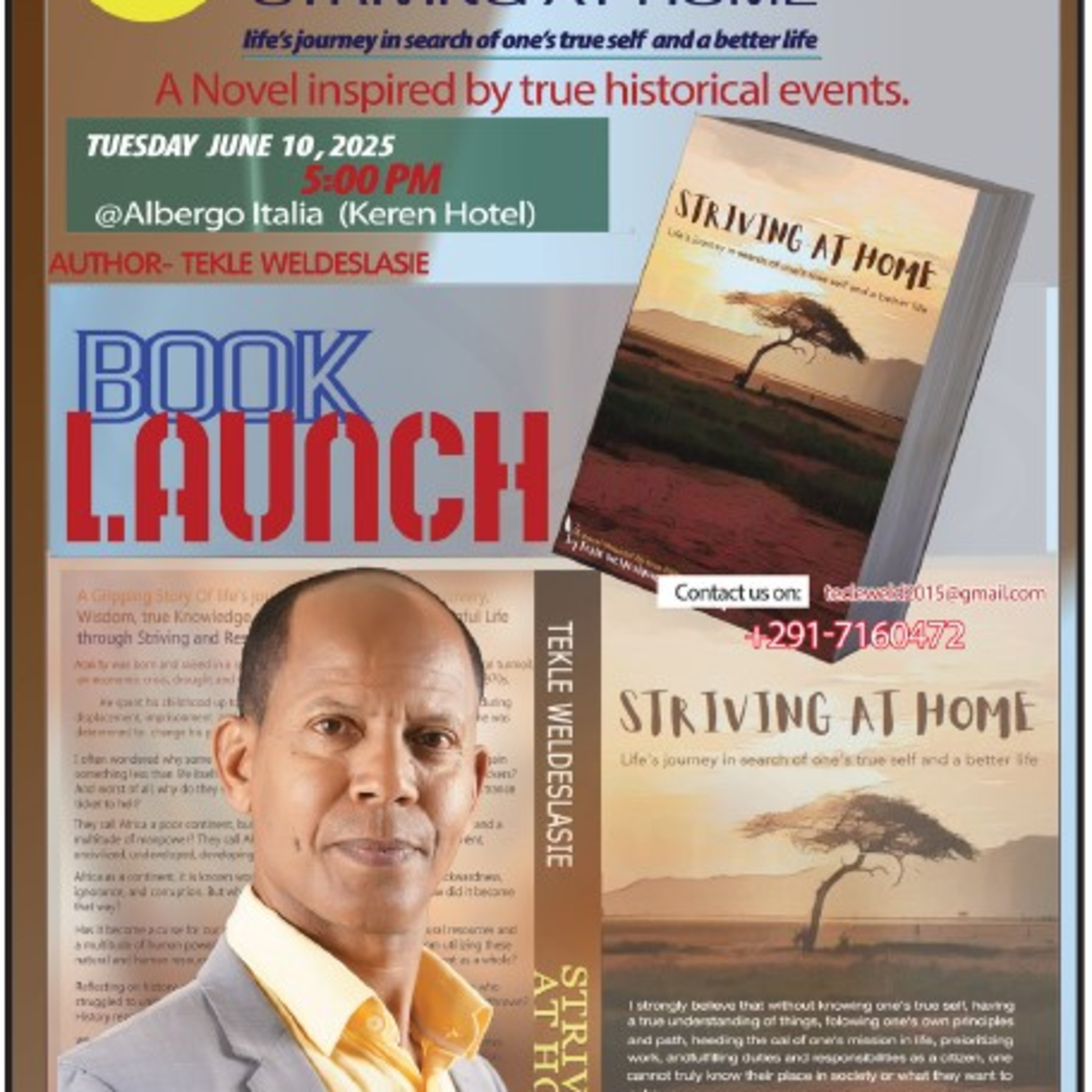
The Other Side of EritreaStriving at Home: A Powerful Memoir of Eritrean Identity and ResilienceThis episode offers an overview of "Striving at Home," a memoir by Tekle Weldeslasie, written in English and featuring a character named Ataklti. The book explores Eritrean identity and resilience, chronicling childhood experiences, local traditions, and the struggles under Ethiopian colonial rule. It vividly depicts the atrocities faced by Eritreans, prompting Ataklti to choose to participate in the armed struggle for independence rather than seeking a life abroad. The narrative emphasizes the importance of loving one's country and striving for success within one's homeland, challenging the notion that a "better life" can only be found elsewhere. The book aims...
2025-06-2635 min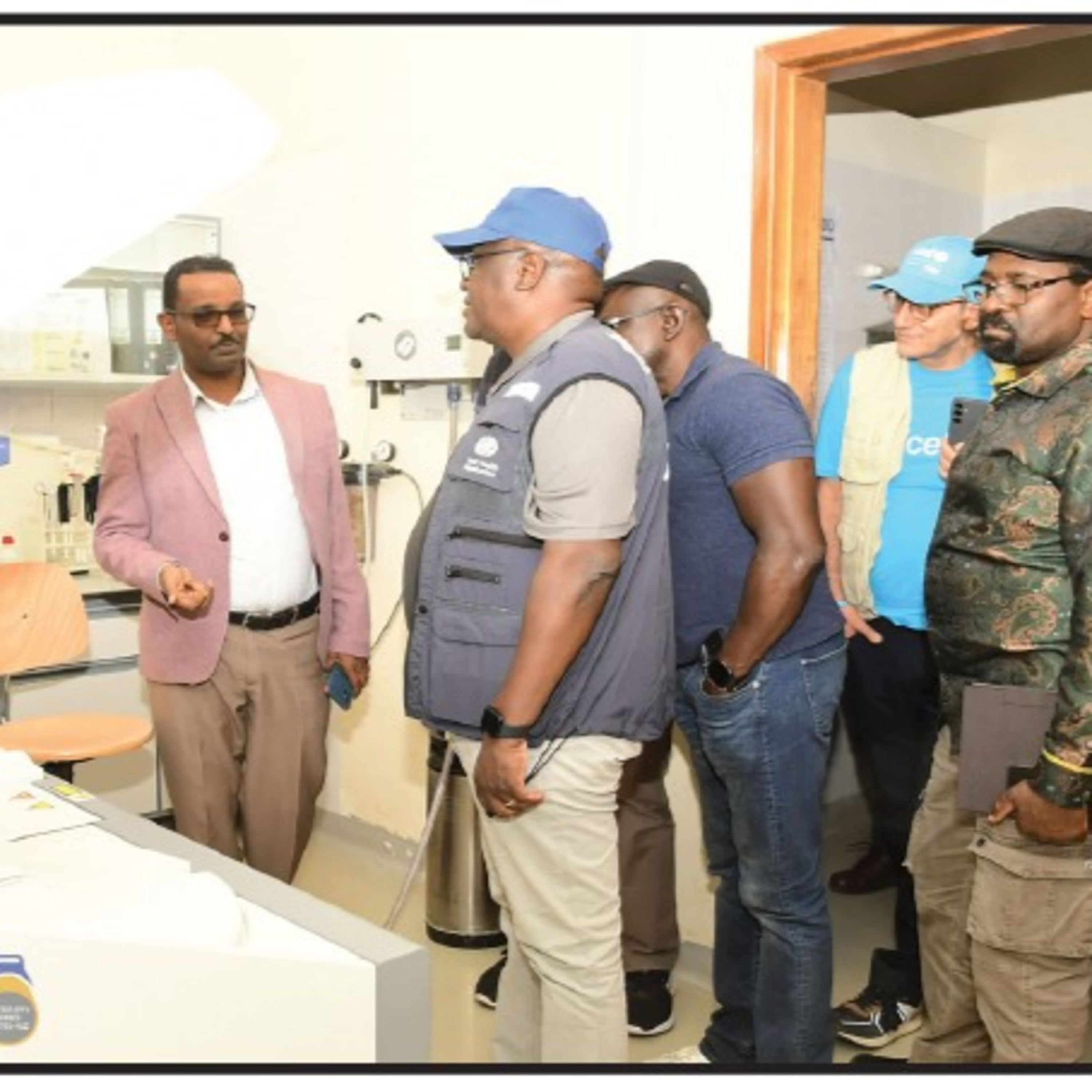
The Other Side of EritreaEritrea Through UN Eyes: A Journey of DiscoveryTghis episode explores the tour of Eritrea's Southern region by a delegation of United Nations representatives and other officials, offering their impressions and key takeaways from the visit. The purpose of this trip was to identify collaboration opportunities and foster better communication, with delegates highlighting the country's developmental progress, particularly in healthcare, food security, and infrastructure. Several UN officials express surprise at the positive realities on the ground, which often contrast with negative international perceptions, emphasizing the Eritrean government's commitment and resilience in driving development for its citizens. Ultimately, the text underscores a strong call for enhanced UN partnership...
2025-06-2228 min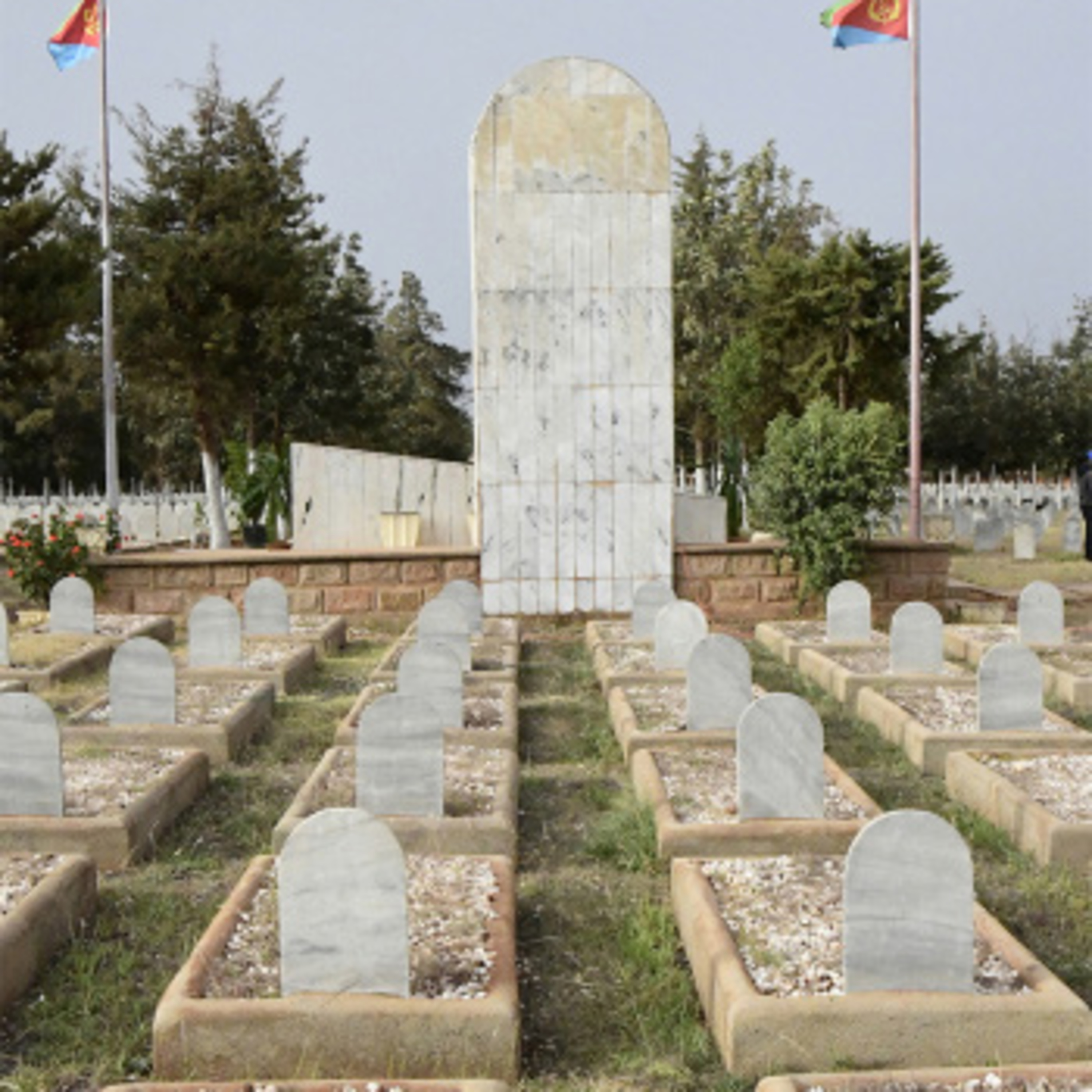
The Other Side of EritreaEritrea's Martyrs' Day: A Nation's Tribute to SacrificeThis episode Eritrea's annual observance of Martyrs' Day on June 20th, a solemn national day dedicated to honoring those who sacrificed their lives for the nation's independence and sovereignty. It emphasizes that the commemoration includes both fallen fighters and countless civilians who were victims of systematic atrocities during the conflict with successive Ethiopian regimes. The article highlights how this day is marked through community-driven memorial services, financial support for families, and cultural expressions like music and poetry. Families light candles, visit cemeteries, and share stories, ensuring that the legacy of resilience, unity, and patriotism is passed down through generations...
2025-06-2227 min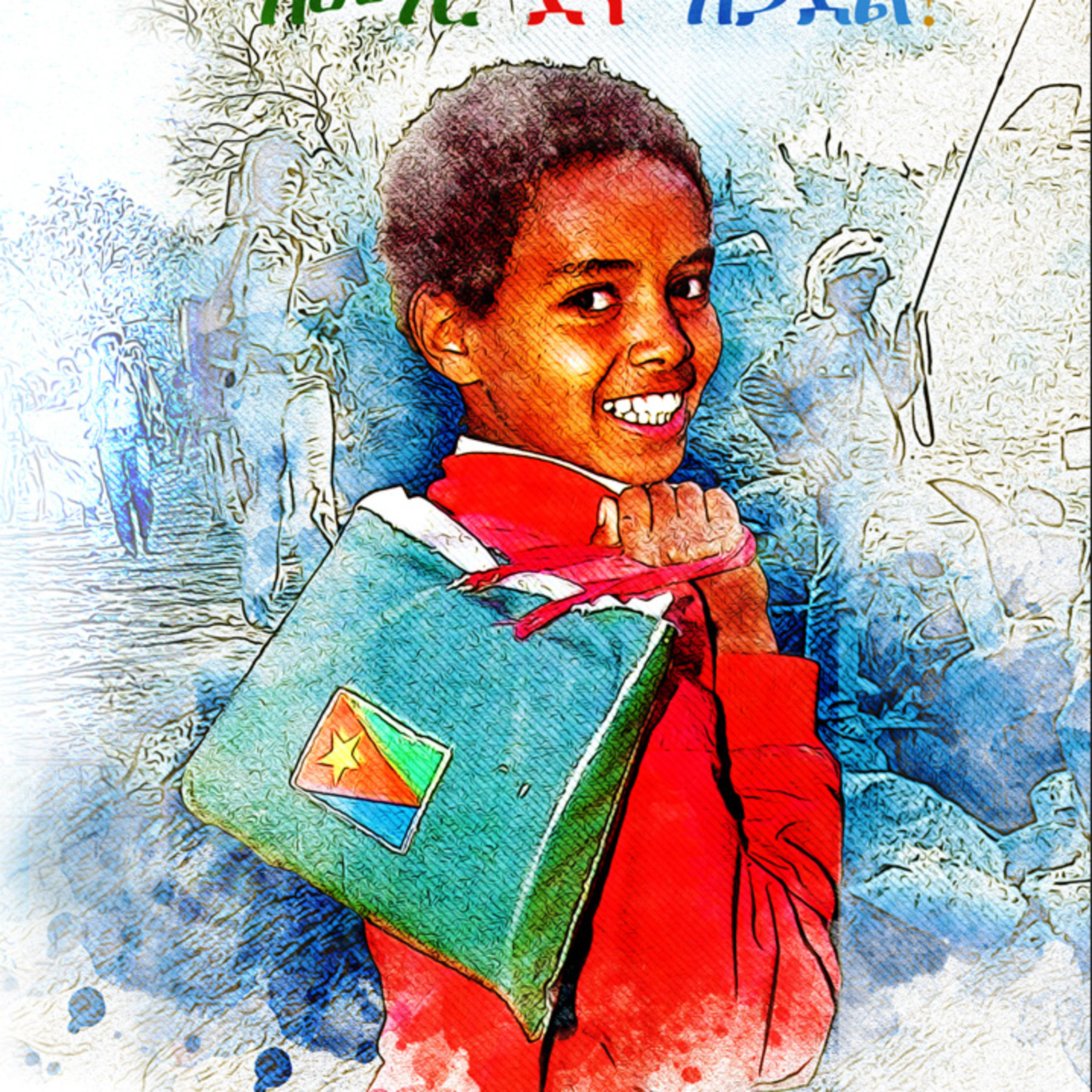
The Other Side of EritreaExploring New Books for a Refined Vision of the PastThis epised is based on an interview with Eritrean journalist and author Mr. Tombossa Asmelash Berhe, who discusses his career, his books, and the importance of documenting Eritrea's struggle for independence. Mr. Tombossa details his journey from joining the armed struggle as a youth to his work in journalism and IT for the Ministry of Information. He emphasizes that his books, Keyahti Embaba and Kmehar Diye Kigadel, are based on his personal experiences and serve to preserve the true history of Eritrea, particularly highlighting the Eritrean People's Liberation Front's (EPLF) policy against using child soldiers. The author also stresses...
2025-06-1833 min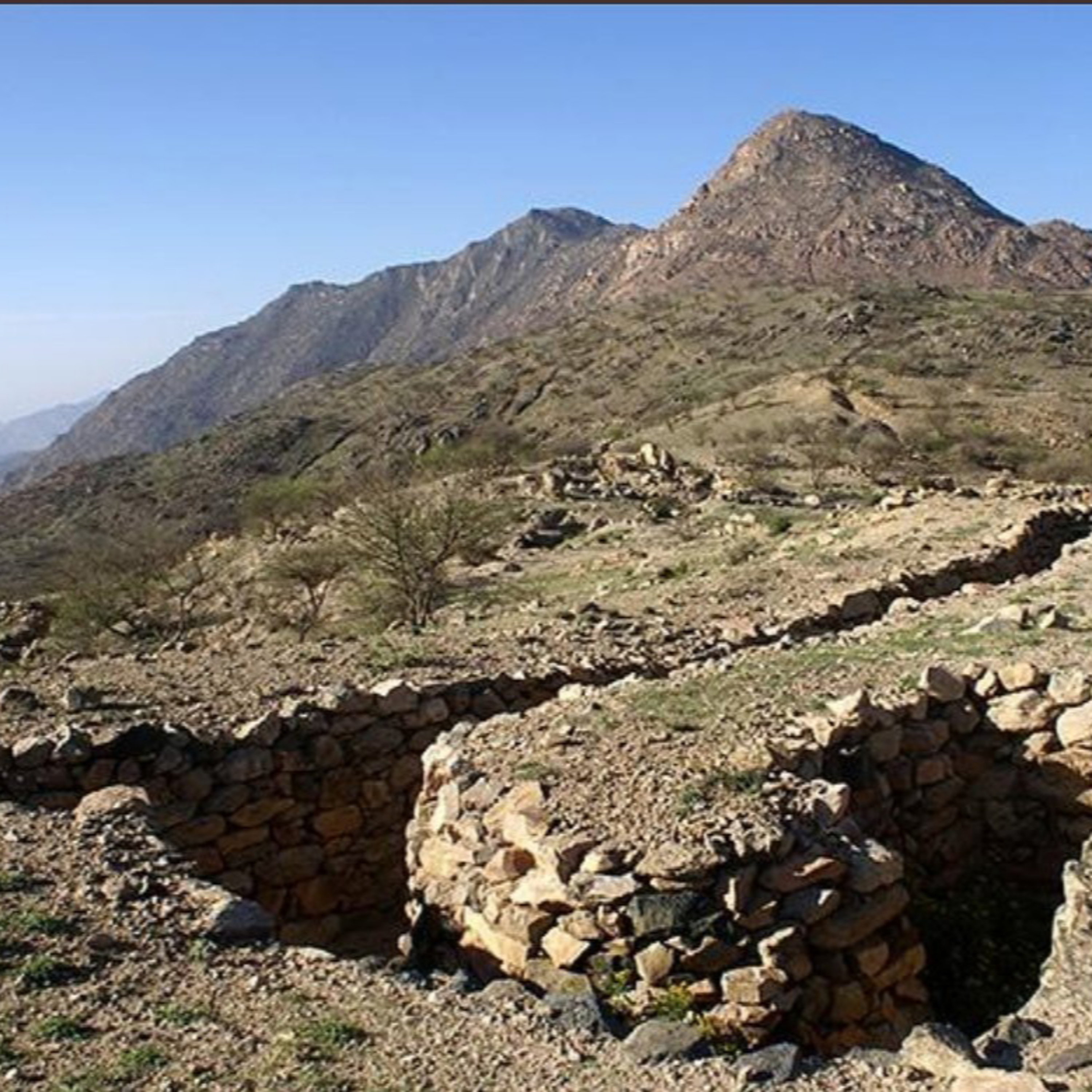
The Other Side of EritreaMy Journey from Asmara to Nakfa"My Journey from Asmara to Nakfa," recounts a personal journey through Eritrea on the eve of Independence Day. The author describes traveling from Asmara to Nakfa, a city symbolizing Eritrean resilience and the long struggle for independence. This journey highlights the diverse landscapes and ethnic groups encountered, all unified by a shared sense of national pride and celebration for the upcoming holiday. The narrative emphasizes how the spirit of independence and national identity remains constant across different regions, despite geographical variations, and reflects on the historical significance of the land itself.From Shabait By...
2025-06-1820 min
The Other Side of EritreaShiro: Eritrea's Timeless, Healthy Culinary DelightThis episode explores Shiro, a significant Eritrean dish, highlighting its cultural importance, nutritional value, and traditional preparation methods. It explains how the dish, primarily made from chickpea flour combined with various spices, offers substantial health benefits due to its rich ingredients like ginger, garlic, and fenugreek. The author emphasizes the central role of women in its creation and its ability to foster communal bonding when shared in a traditional setting, making it a cherished and often-missed food for Eritreans globally. Ultimately, the text advocates for the continued appreciation of such traditional, wholesome dishes to promote both culinary enjoyment and...
2025-06-1732 min
The Other Side of EritreaEritrea: A Journey of Self-Reliance and Sustainable DevelopmentThis episode is based on Eri-TV program, titled "Eritrea's Sustainable development - Empowering generations, Transforming Lives - ERi-TV", details Eritrea's significant strides in sustainable development since its independence in 1991. The video highlights the nation's self-reliance and social cohesion as guiding principles, showcased through improvements in water access via extensive dam construction, boosted agricultural productivity, and increased food security, including a surge in fish production. Furthermore, the source emphasizes Eritrea's commitment to renewable energy, particularly solar power, and notable advancements in healthcare, such as high immunization rates and reduced maternal mortality. The video also discusses progress in education, focusing on...
2025-06-1727 min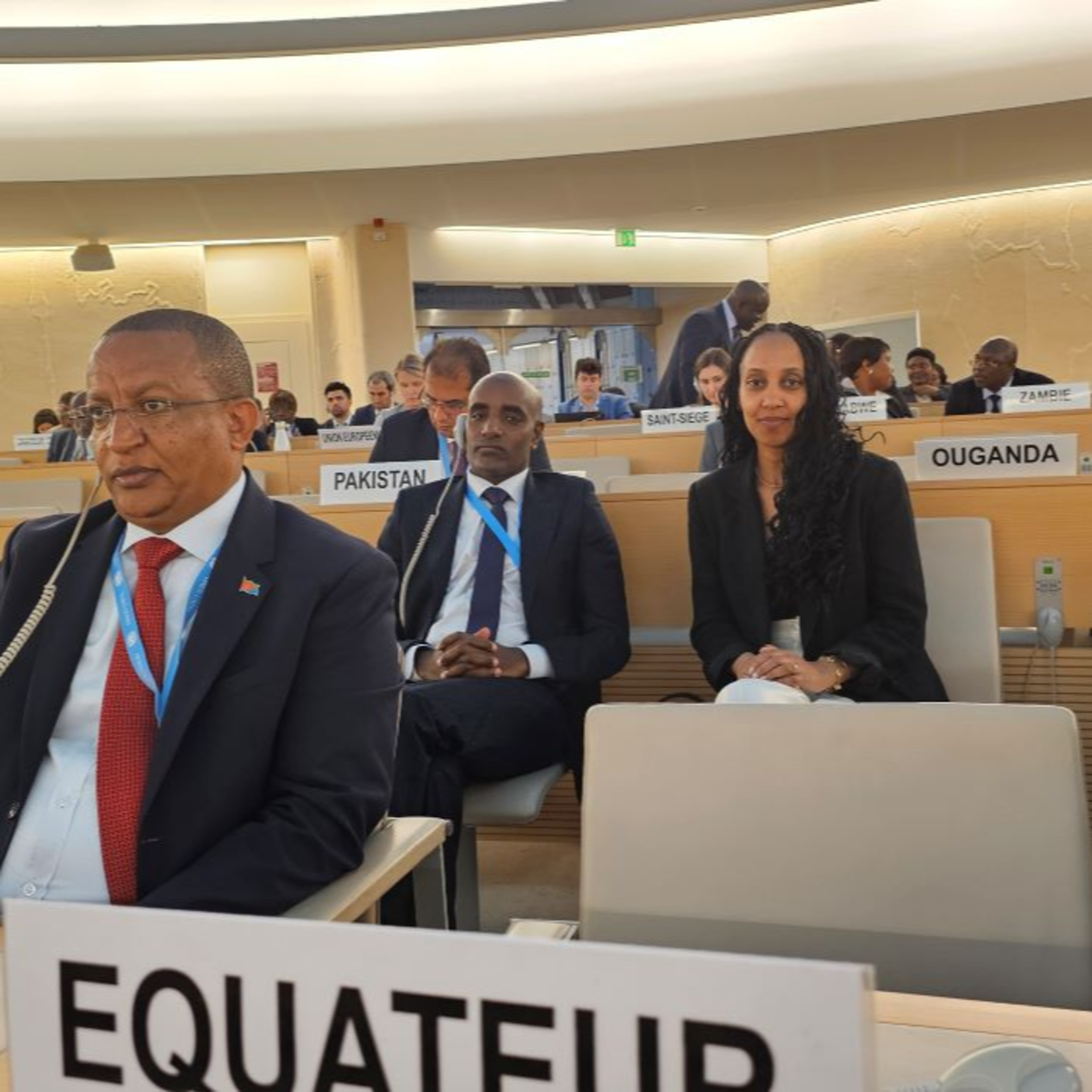
The Other Side of EritreaEritrea: End the Politicized Human Rights MandateThis is based on the statement delivered by Mr. Habtom Zerai, Chargé d’affaires at the Permanent Mission of Eritrea to the United Nations, during an interactive dialogue on human rights. In his address, Mr. Zerai criticizes the Special Rapporteur's report on Eritrea, asserting it lacks objectivity and relies on unverified, biased sources, contradicting reports from UN agencies operating within the country. He argues that Eritrea has faced a history of injustice from the UN, citing instances like the subversion of its decolonization, the failure to enforce boundary decisions, and the imposition of unsubstantiated sanctions. Zerai emphasizes Eritrea's commitment to...
2025-06-1741 min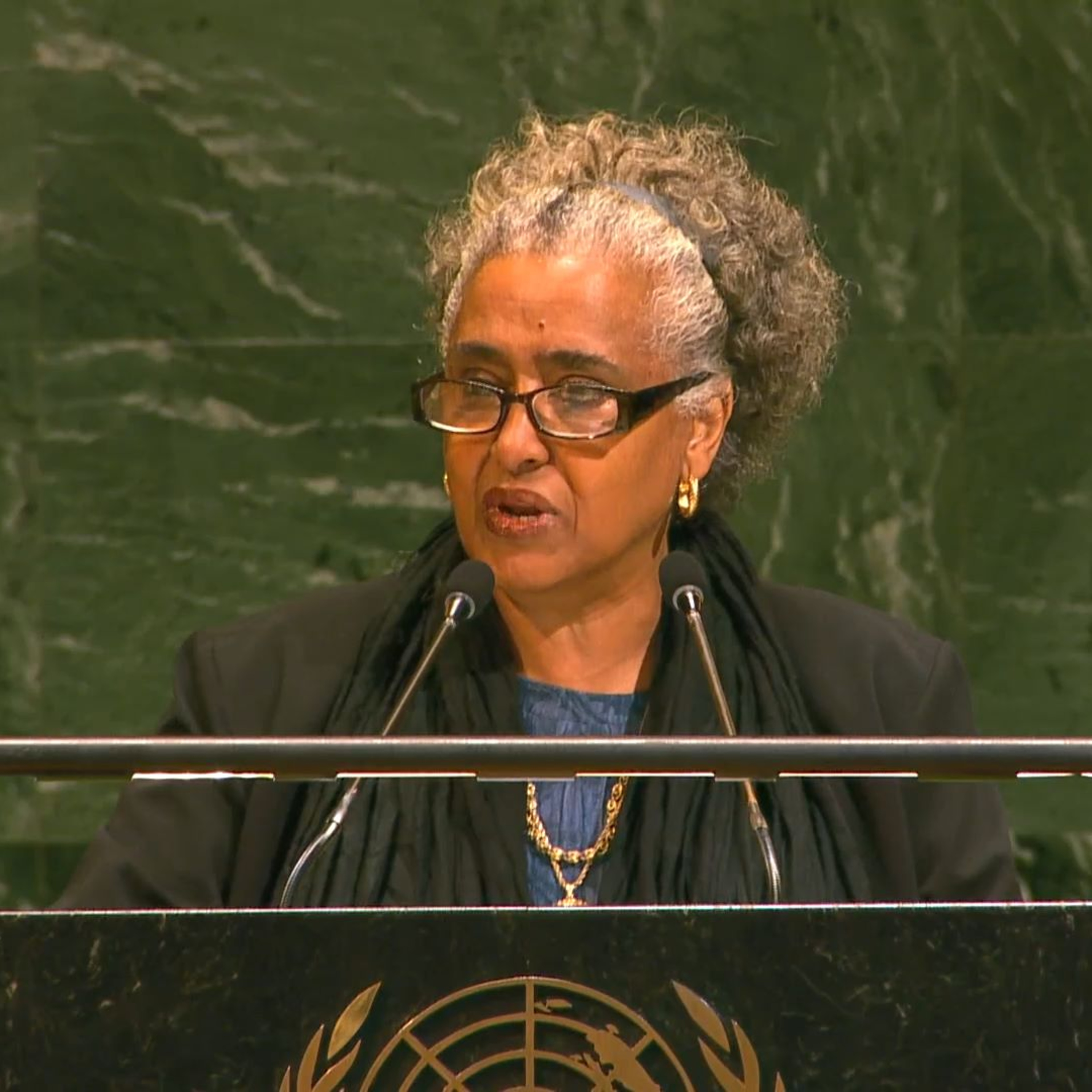
The Other Side of EritreaEritrea's Call for a Day Against Coercive MeasuresThis is based on a statement delivered by Ambassador Sophia Tesfamariam of Eritrea to the United Nations General Assembly on June 16, 2025. Speaking on behalf of the Group of Friends in Defense of the Charter of the United Nations, she introduces draft resolution A/79/L.93, proposing an "International Day against Unilateral Coercive Measures" to be observed annually on December 4th. The ambassador argues that these "unilateral coercive measures," often referred to as sanctions, are illegal tools of political and economic compulsion that violate the UN Charter, harm millions by blocking essential goods and undermining development, and threaten global stability. The...
2025-06-1725 min
The Other Side of EritreaJustice, Development, and Geopolitics of the HornThis episode discusses a significant dialogue session convened by the Ministry of Justice concerning "Justice, Development, and Geopolitics of the Horn." This event aimed to integrate Eritrean core social values into its legal framework while addressing the complex geopolitical dynamics of the Horn of Africa to promote peace and sustainable development. Experts like Professor Fawaz Gerges highlighted the importance of regional cooperation and avoiding external rivalries, emphasizing that the lack of coordination undermines collective interests. Professor Makane Mbengue focused on identifying fundamental values for Eritrea's legal framework, such as national sovereignty and the rule of law, and the challenges...
2025-06-1335 min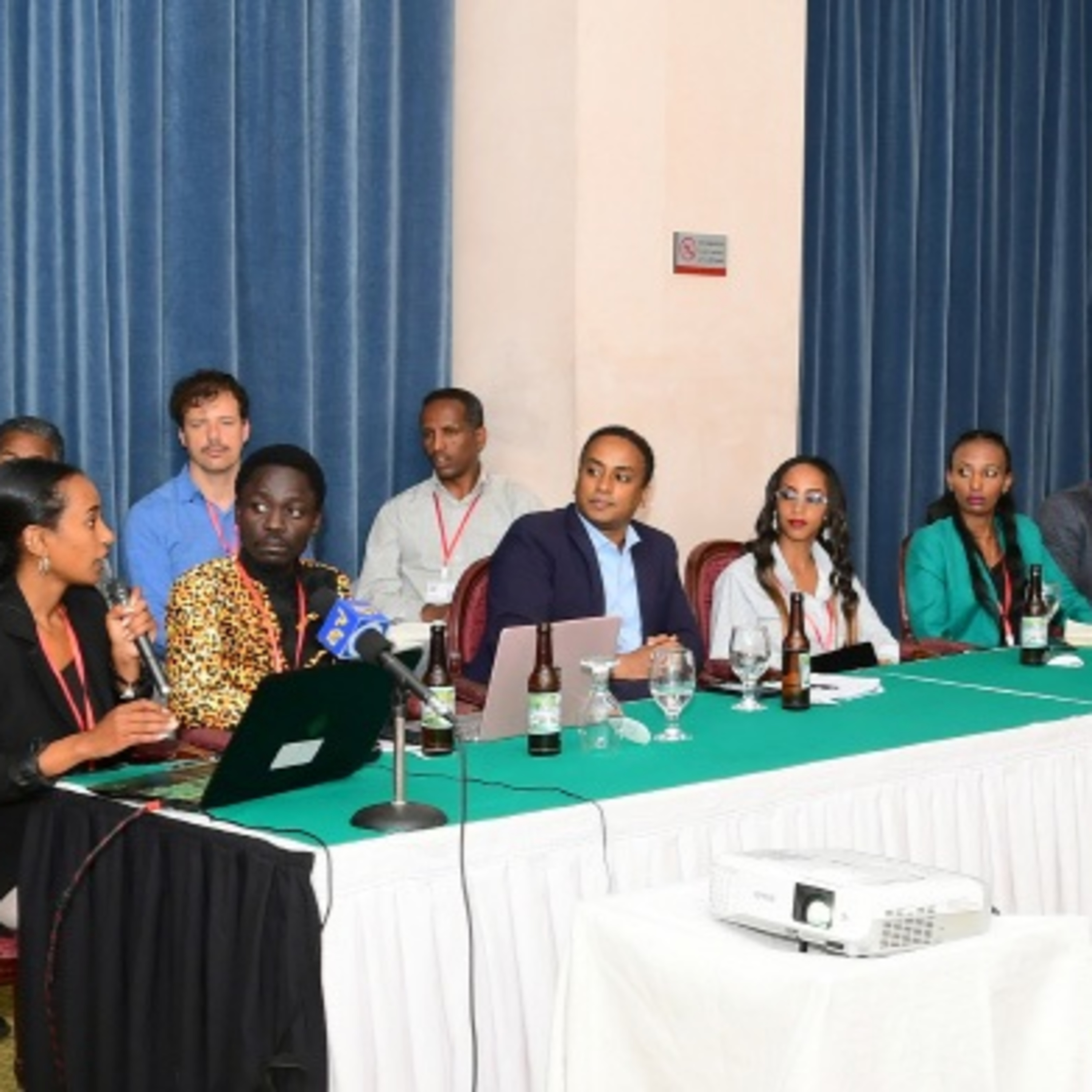
The Other Side of EritreaWe all Learned that we Shared Common Aspects”- An Interview with Larmbert EbituThis episode is takenf from an interview with Larmbert Ebitu, a political affairs analyst specializing in African geopolitics. He discusses his participation in the ICES 2025 conference, highlighting the importance of international platforms for sharing diverse experiences and ideas. Ebitu elaborates on his presentation, "Emerging Geopolitical Alliances: Whither Africa?", which critiques the illusion of choice for African nations in forming external alliances without first establishing internal strength. He advocates for Pan-Africanism and a unified approach to foreign policy and security, while also addressing the challenges of narrative warfare and the need for Africa to control its own media. The interview...
2025-06-1343 min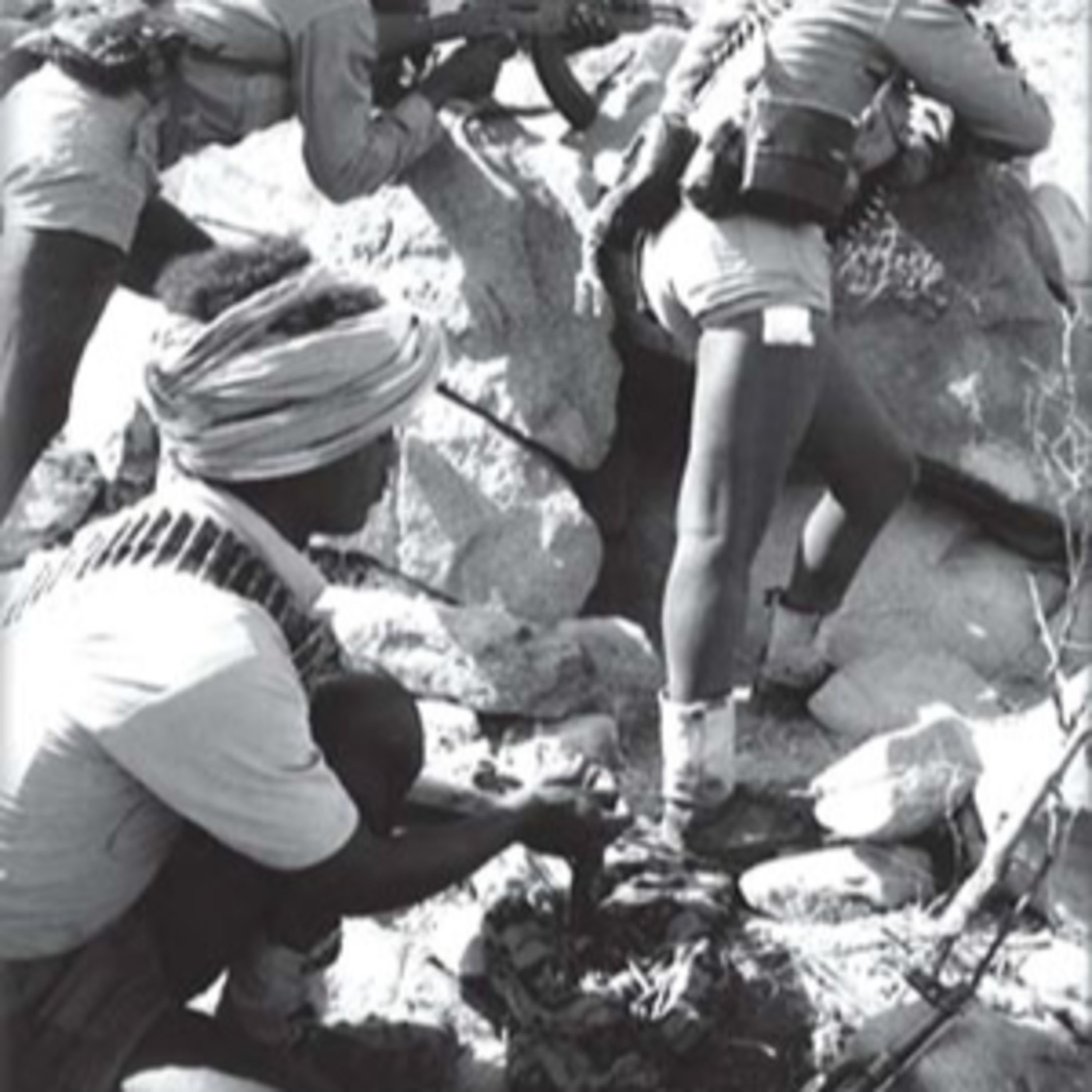
The Other Side of EritreaNorth eastern Sahel Front From birth to demise Part 3This episode, part 3 and final details a pivotal phase of the Eritrean struggle for liberation, focusing on the "Red Star Campaign" launched by the Derg regime, advised by Soviet generals. The text explains how the Derg spent two and a half years preparing for this massive offensive, which involved 120,000 well-equipped soldiers and aimed to decisively defeat the Eritrean revolution. Despite an initial setback in a surprise attack, the Eritrean People's Liberation Front (EPLF) retaliated within a month, successfully breaking through Derg defenses and capturing the command post at Awget. The EPLF's victory, known as the demise of Wuqaw Iz...
2025-06-1223 min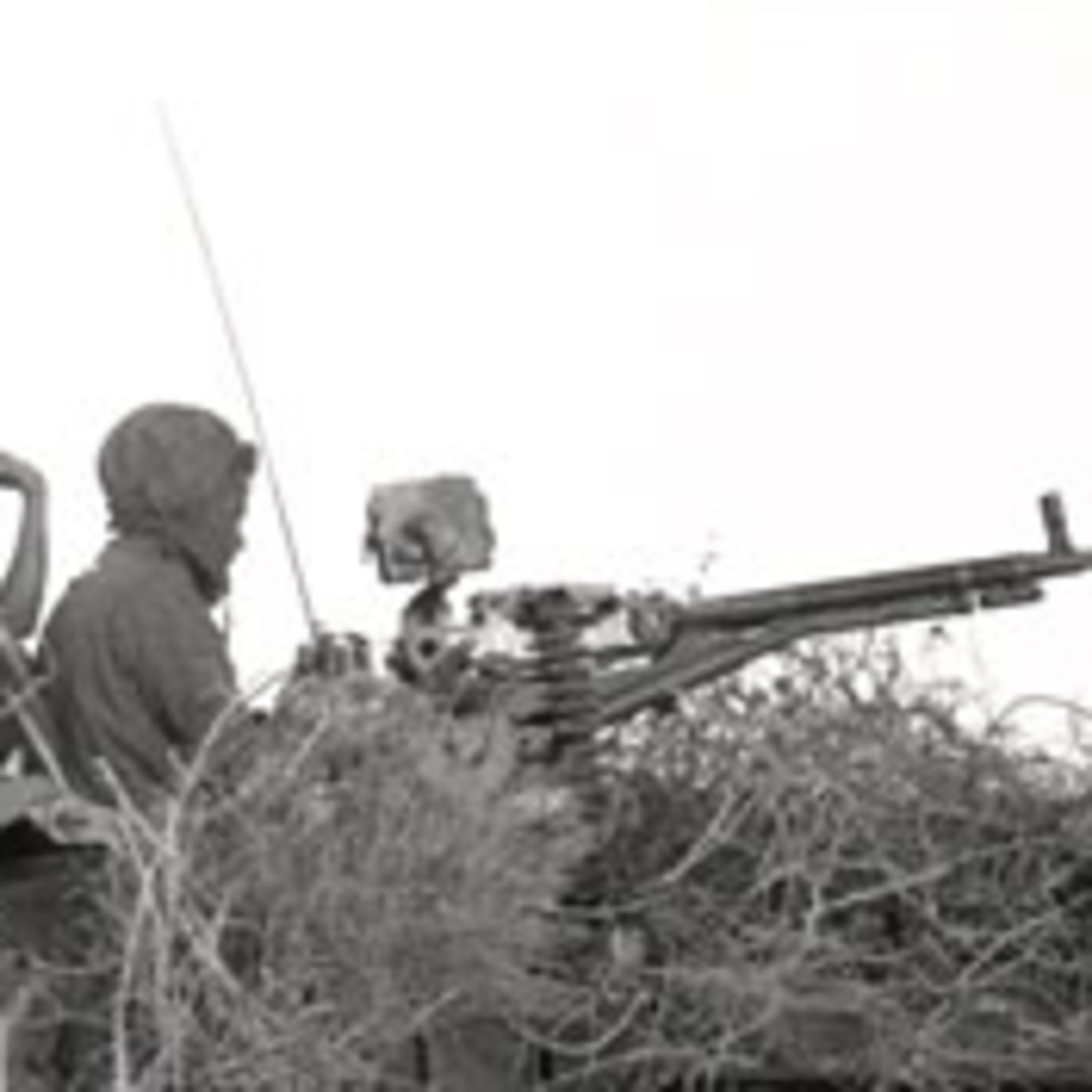
The Other Side of EritreaNorth eastern Sahel Front From birth to demise Part 2This episode of the, "North Eastern Sahel Front From birth to demise Part 2," recounts the Eritrean People's Liberation Front (EPLF)'s defensive strategies and counter-offensives against enemy forces during 1979. It details the EPLF's tactical withdrawals and establishment of new defensive lines, such as the critical North-Eastern Sahel Front, to protect essential resources and personnel. The narrative highlights several significant enemy offensives (third, fourth, and fifth) and the EPLF's successful resistance, often resulting in heavy losses for the aggressors. Furthermore, the text illustrates the EPLF's continuous efforts to weaken enemy supply lines and strategic positions while solidifying their own strongholds...
2025-06-1240 min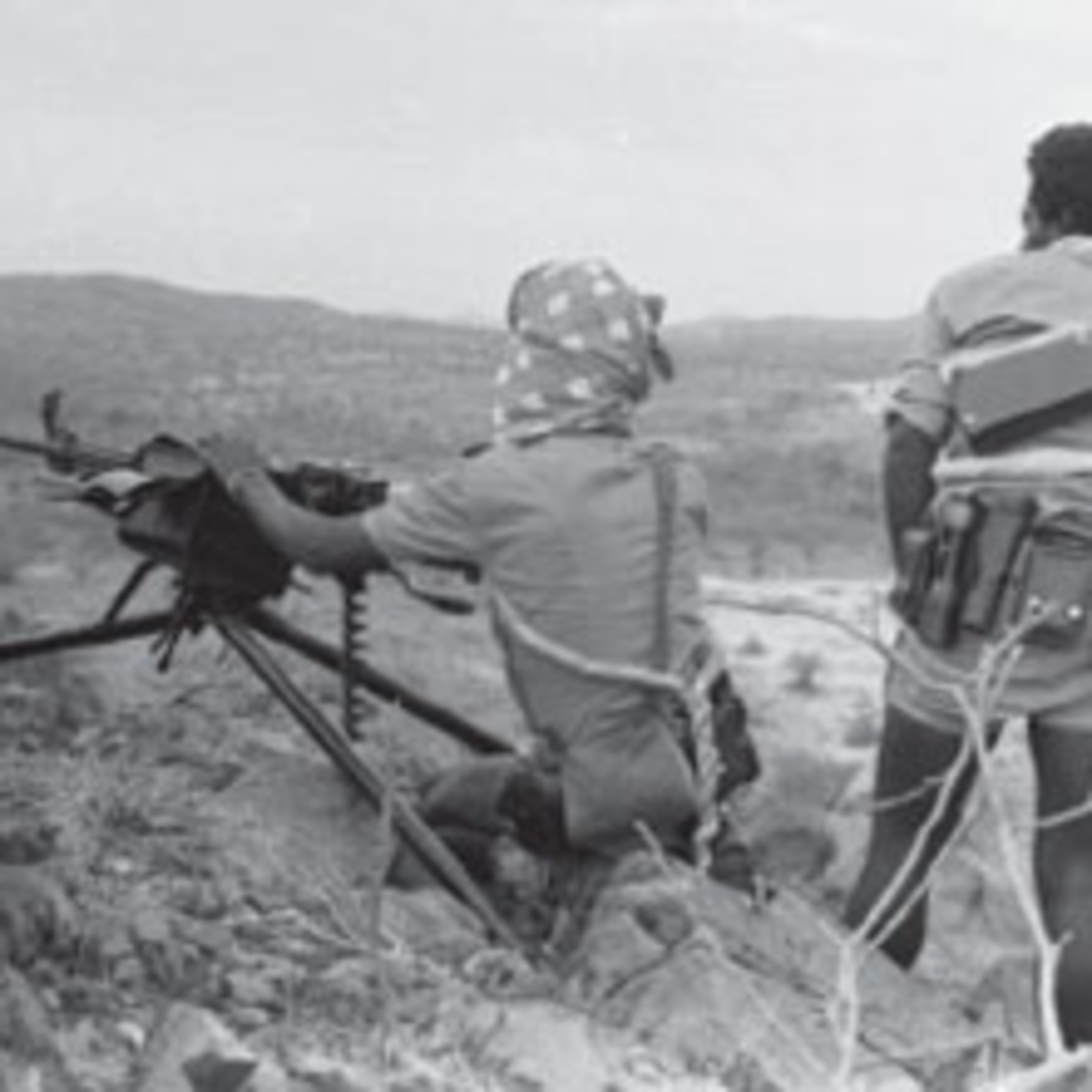
The Other Side of EritreaNorth eastern Sahel Front From birth to demise Part IThis episode of the, "North eastern Sahel Front From birth to demise Part I," offers a historical account of the Eritrean armed struggle for independence against the Ethiopian government, particularly during the late 1970s. It details how the Ethiopian army, weakened by a loss of Western support, eventually received massive military aid from the Soviet Union, leading to a significant power imbalance. The document describes the Eritrean People’s Liberation Front's (EPLF) strategic withdrawal in the face of this overwhelming force and the subsequent establishment and fortification of key defensive fronts, such as the Northeastern Sahel Front and the Na...
2025-06-1241 min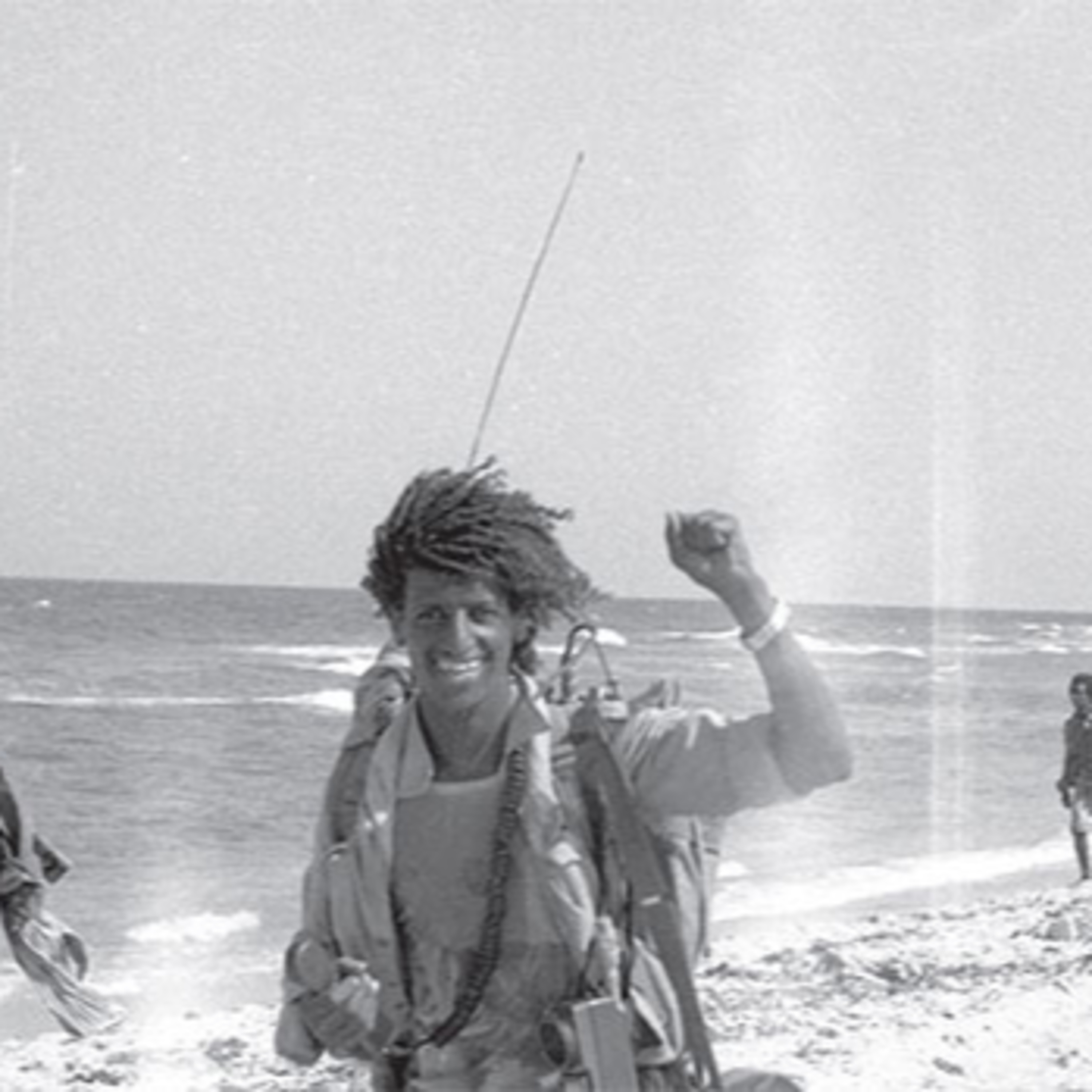
The Other Side of EritreaMarch in Eritrea’s HistoryThis episode "March in Eritrea's History," details significant military victories and challenges faced by Eritrea throughout its struggle for independence and sovereignty, particularly focusing on events that occurred in the month of March. It highlights key turning points such as the liberation of Nakfa in 1977 and the decisive Battle of Af’abet in 1988, which significantly shifted the balance of power against the Ethiopian Dergue regime. The source also describes how the Eritrean People's Liberation Front (EPLF) successfully countered various Ethiopian offensives and effectively transitioned from a defensive to an offensive strategy. Furthermore, the text briefly touches upon a later co...
2025-06-1128 min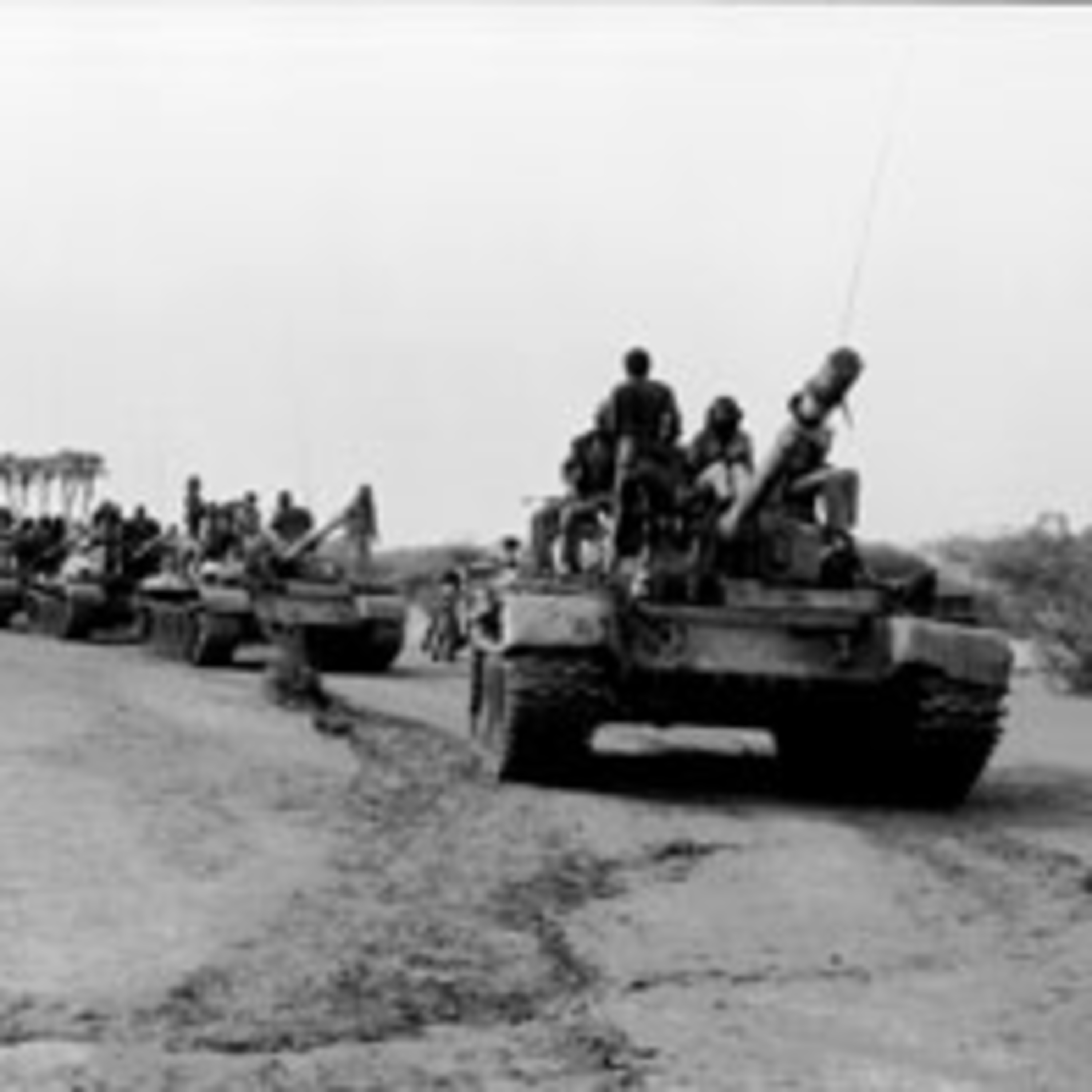
The Other Side of EritreaEritrea's Anti-Colonial Struggle: A Legacy of Resistance Part 4This part 4 and final episode describes a series of political and military struggles between the EPLF (Eritrean People's Liberation Front) and the Dergue (Ethiopian military junta), mediated by East German authorities. Initially, the discussions in Berlin aimed to find a peaceful resolution, but the Dergue consistently failed to present new proposals and instead focused on propaganda and threats, leading to a large-scale military offensive. Despite internal Eritrean conflicts and external manipulation by the Soviet Union and Sudan, the EPLF remained committed to a peaceful solution, issuing a Referendum Proposal and engaging in subsequent secret exploratory meetings. However, these meetings...
2025-06-1143 min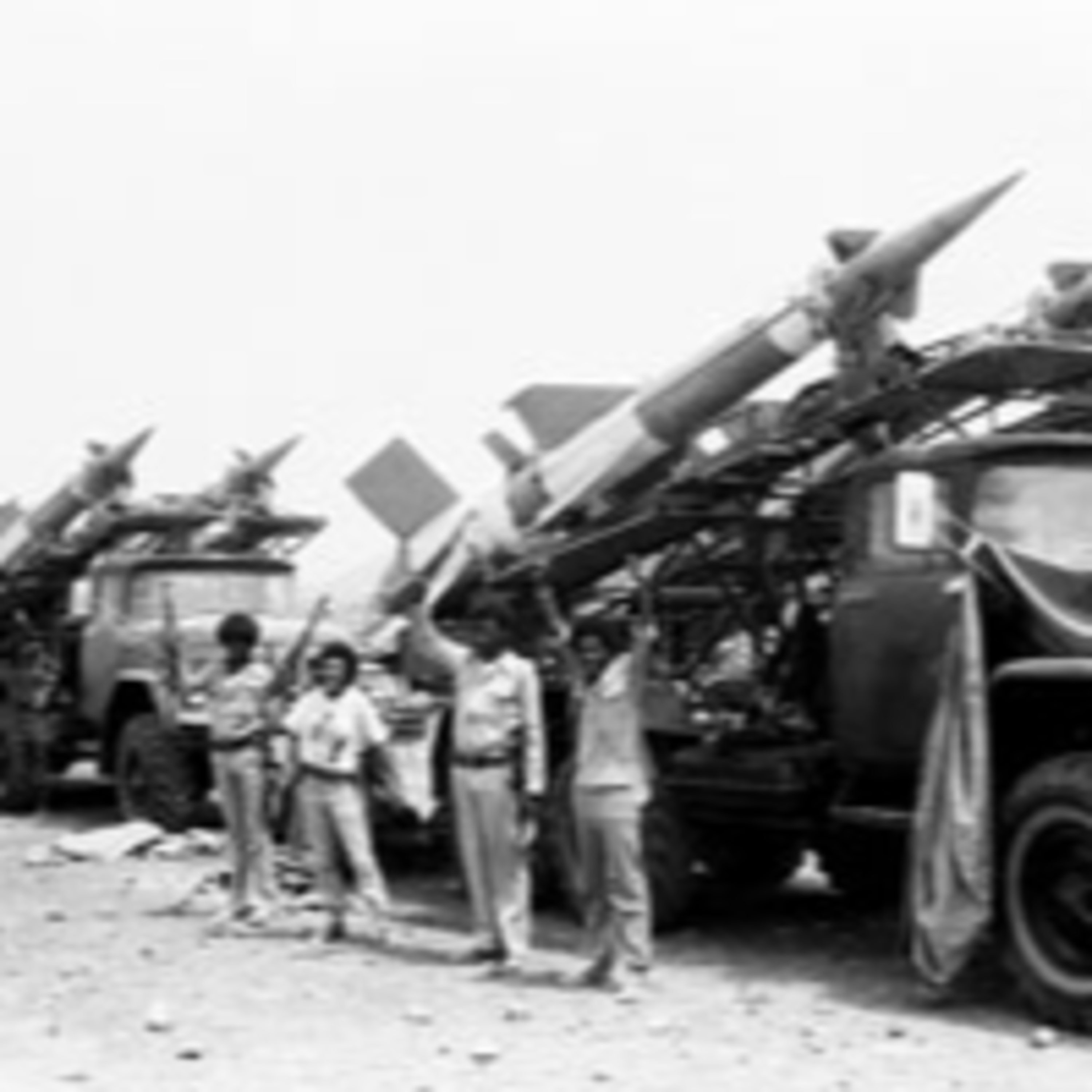
The Other Side of EritreaEritrea's Anti-Colonial Struggle: A Legacy of Resistance Part 3This epiesode of "The Anti-colonial Political and Military Struggle Part III," sourced from Shabait, offers a historical account of the Eritrean People's Liberation Army (EPLA) and their conflict with the Dergue regime in Ethiopia, particularly focusing on the period from 1983 to 1986. It details various military offensives launched by the Dergue, such as the "Stealth" offensive and "Bahre Negash," and the EPLA's counter-offensives and guerrilla operations, highlighting significant battles like Barentu. The document also discusses the waning power and political bankruptcy of the Dergue, the decreasing foreign support for the regime, and the EPLF's successful military strategy and commitment to...
2025-06-1143 min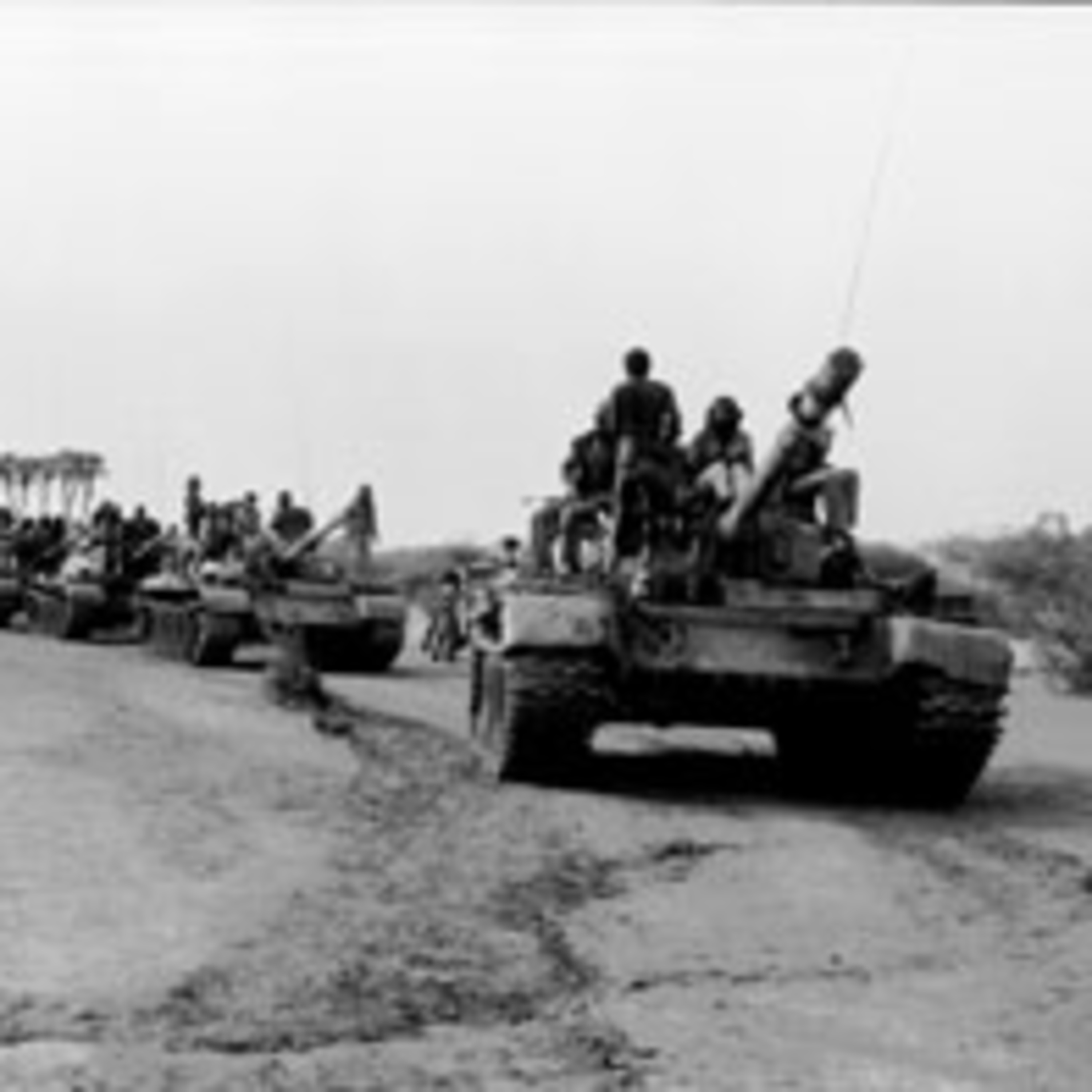
The Other Side of EritreaEritrea's Anti-Colonial Struggle: A Legacy of Resistance Part 2This episode of, "The anti-colonial political and military struggle Part II," chronicles the Eritrean People's Liberation Front's (EPLF) fight against the Dergue regime. It highlights how both Haile Selassie and the Dergue sought foreign aid to maintain their empire, with the Dergue eventually aligning with the Soviet Union after the US hesitated. This Soviet intervention significantly bolstered the Dergue's military capabilities and fueled its regional ambitions, leading to widespread destruction and prolonged conflict. The text details the EPLF's strategic military responses, including successful offensives and a crucial strategic withdrawal, to counter the heavily armed Dergue and its allies. Finally...
2025-06-1128 min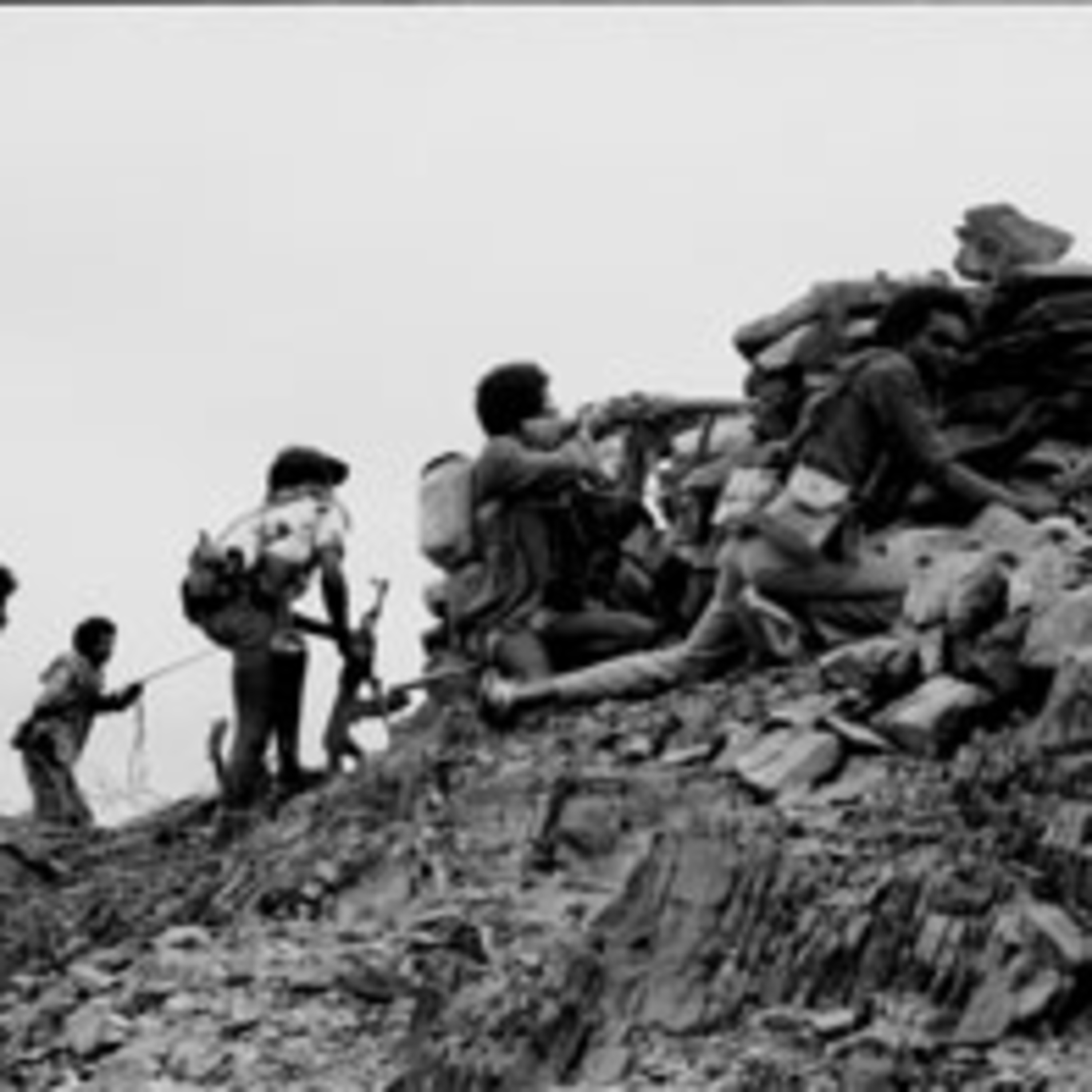
The Other Side of EritreaEritrea's Anti-Colonial Struggle: A Legacy of Resistance Part 1This episode, "The anti-colonial political and military struggle," offers a critical analysis of the Ethiopian colonial regimes, specifically focusing on the Haile Selassie and Dergue eras. It argues that both regimes, despite superficial differences, were driven by expansionist ambitions and sought to suppress the national rights of various peoples, particularly the Eritreans. The source highlights how the Dergue regime, while initially appearing to offer change through slogans like "Ethiopia Tikdem" and "Ethiopian Socialism," ultimately employed brutal tactics like the "Red Terror" to consolidate power and crush internal and external opposition. Ultimately, the text concludes that the Dergue's actions, including...
2025-06-1145 min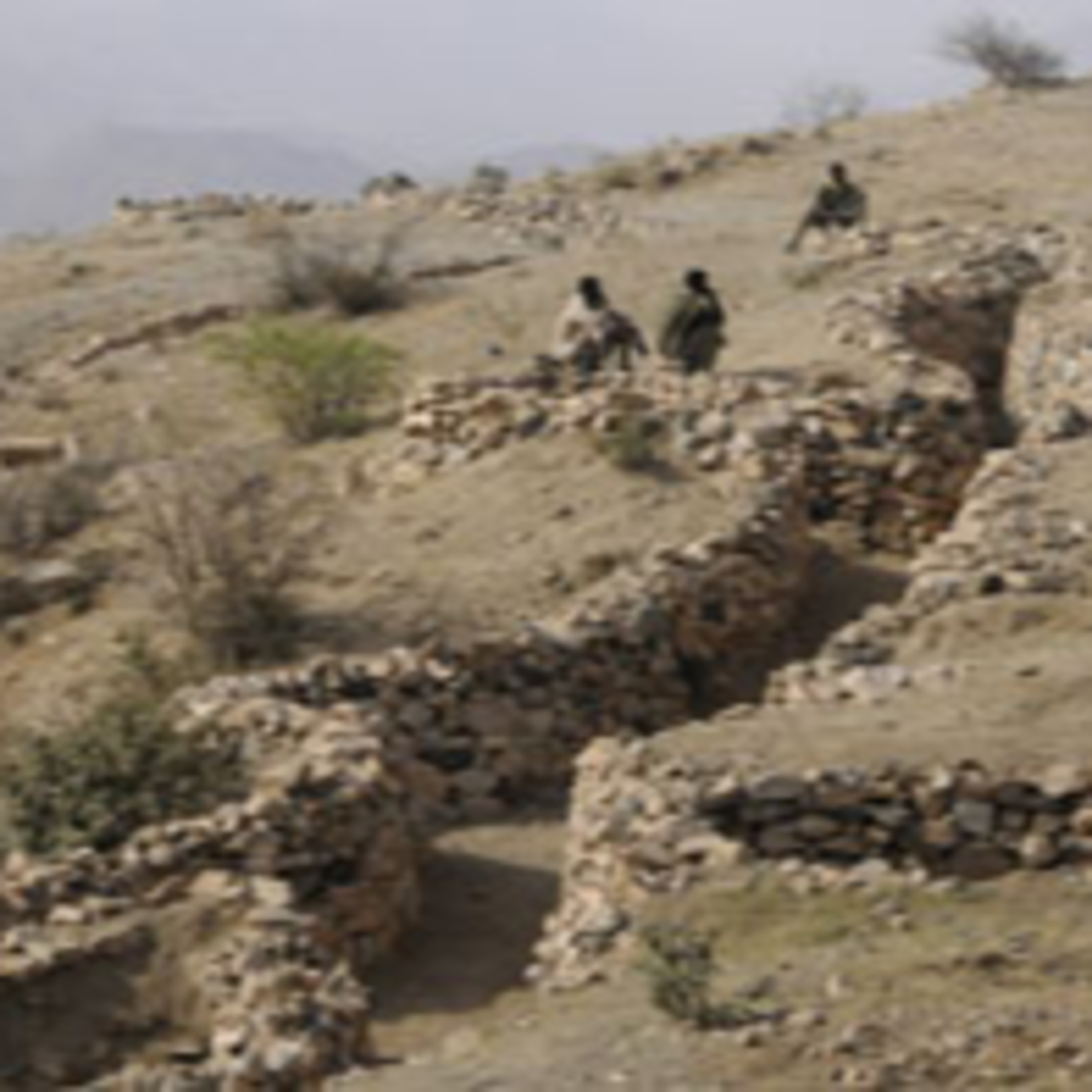
The Other Side of EritreaNakfa Symbol of resistance and perseverance of the Eritrean people part IIThis is episode from Shabait is an overview of the significance of Nakfa in the Eritrean struggle for independence. It highlights how the trenches around Nakfa served as an impenetrable defense against the Derge regime's forces, even in the face of overwhelming odds. The article explains the unique names given to these trenches, such as Rigole, Volleyball, and Fernello, illustrating the extreme conditions and unwavering resilience of the Eritrean People's Liberation Front (EPLF) combatants. Furthermore, it describes the transformation of Nakfa from a war-torn area into a developing town with growing infrastructure and services, emphasizing its enduring symbolic importance...
2025-06-1127 min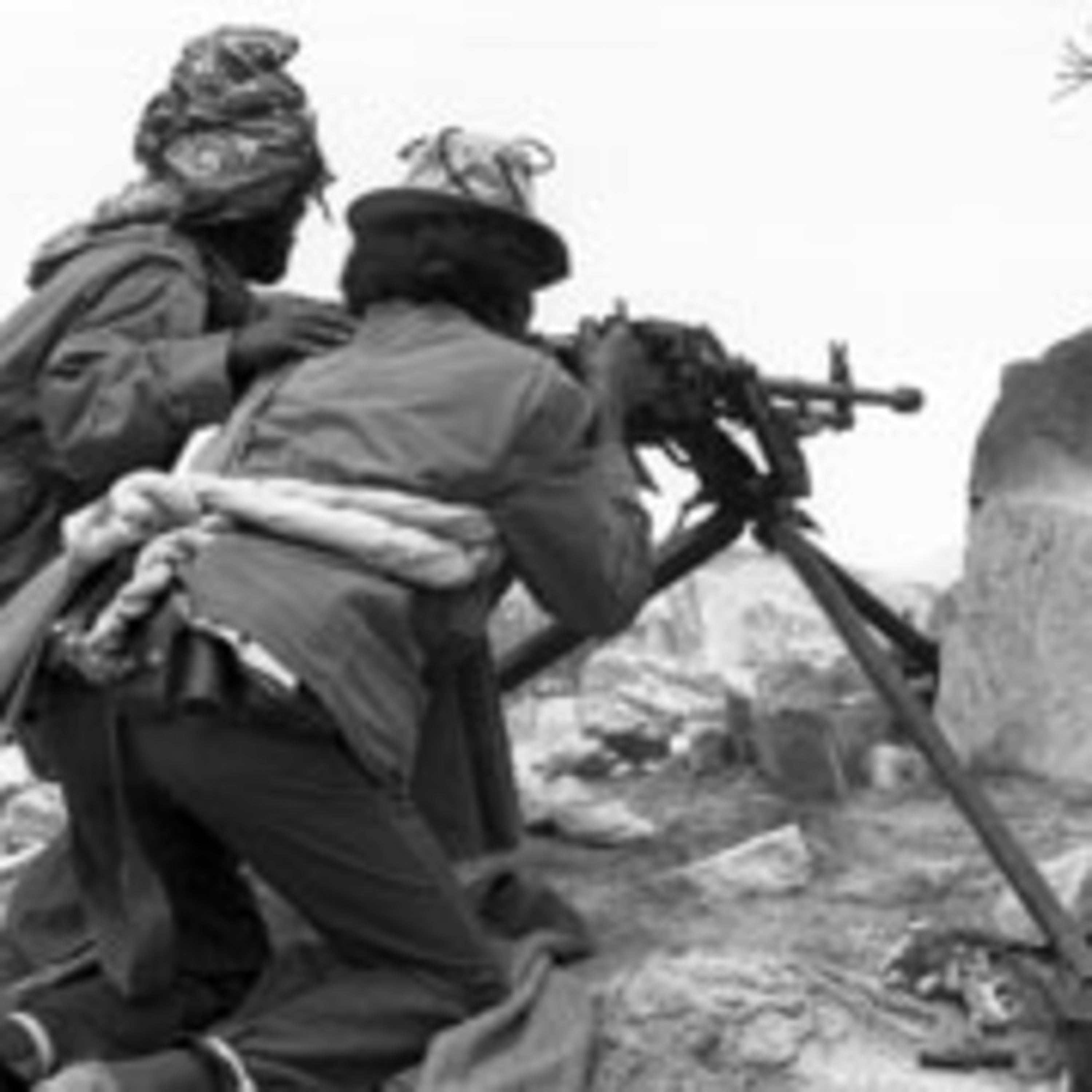
The Other Side of EritreaNakfa Symbol of resistance and perseverance of the Eritrean people part IThis episode from Shabait explores the profound significance of Nakfa to the Eritrean people, emphasizing its role as a symbol of resistance, perseverance, and the birthplace of Eritrean independence. It details how Nakfa served as a strategic stronghold for the Eritrean People's Liberation Front (EPLF) from 1977 until the nation's liberation, highlighting the ingenious construction of defensive trenches and underground shelters. The source also recounts the failed attempts of the Ethiopian Derg regime to recapture Nakfa, illustrating the resilience of the Eritrean fighters against overwhelming military force and international interference. Ultimately, the text underscores how Nakfa fostered a unique sense...
2025-06-1137 min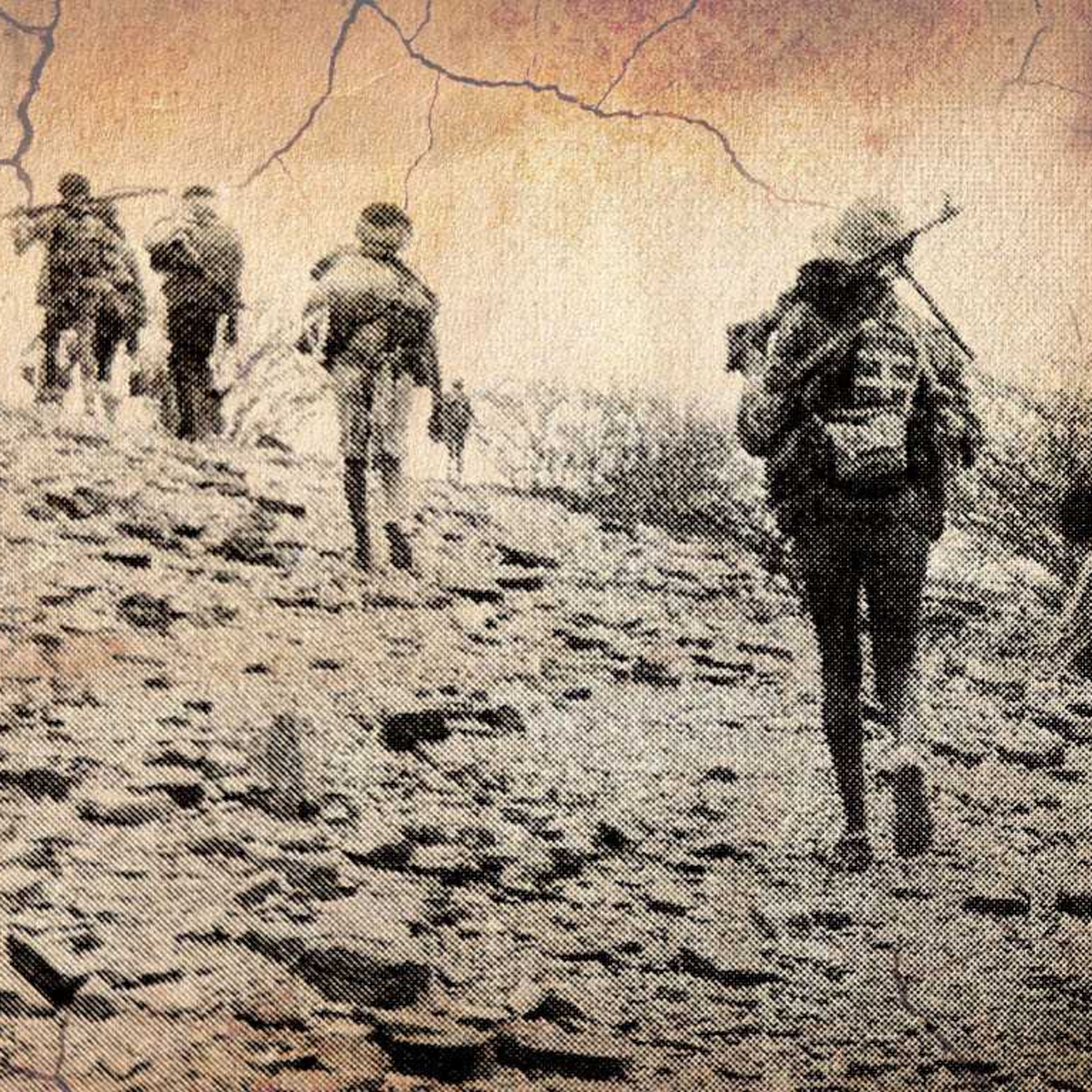
The Other Side of EritreaEritrea's Strategic Retreat of 1978This article discusses a pivotal moment in the Eritrean revolution in mid-1978, focusing on the strategic withdrawal of the Eritrean People's Liberation Front (EPLF). Faced with an overwhelming offensive by Ethiopia's Derg regime, which possessed superior numbers and weaponry, the EPLF and Eritrean Liberation Front (ELF) were severely outmatched. The text details the Derg's vast military might and the limited capacities of the Eritrean forces, explaining how the strategic withdrawal allowed the EPLF to preserve its strength and transition to guerrilla warfare. This decision, described as a crucial turning point, ultimately ensured the survival of the independence movement and...
2025-06-1134 min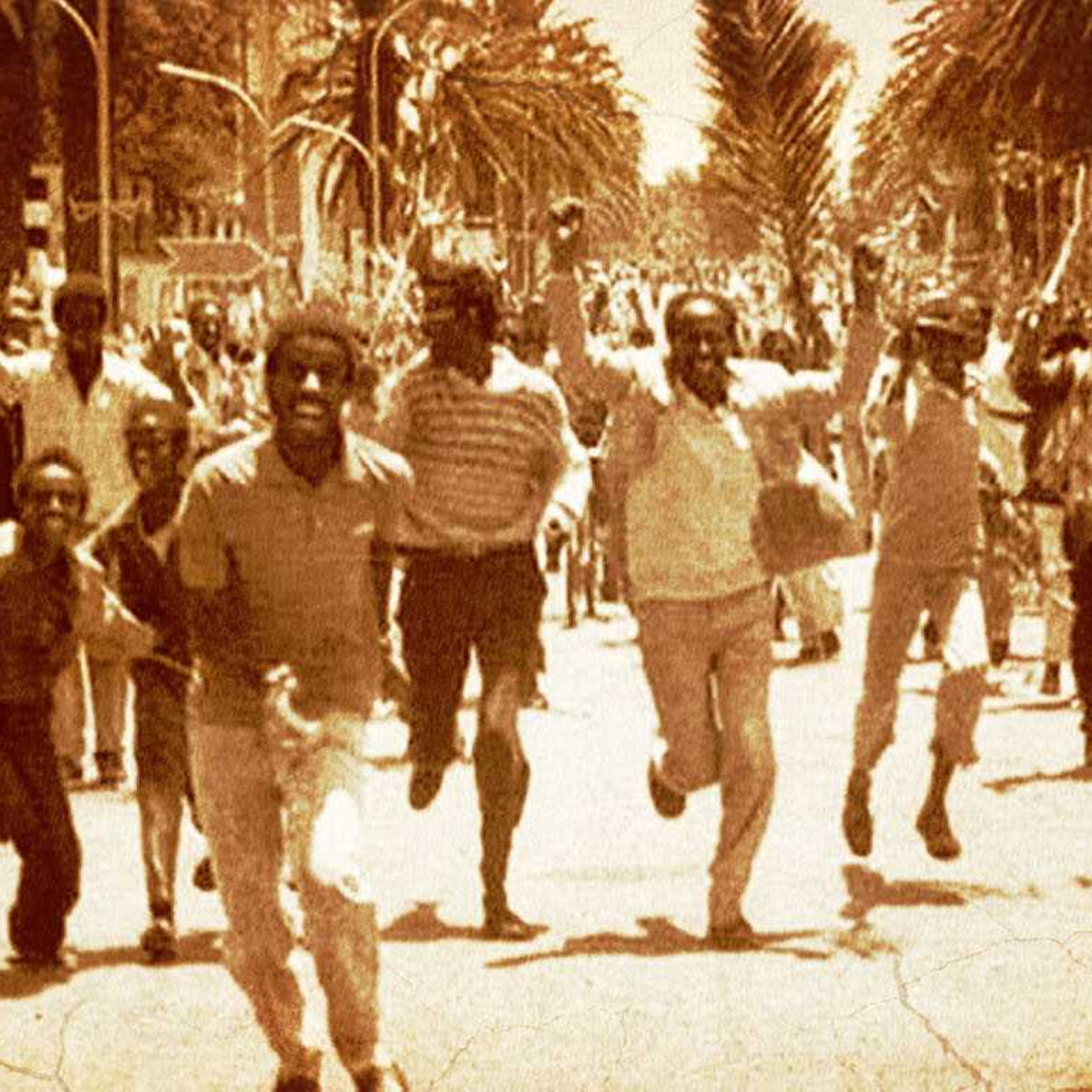
The Other Side of EritreaThe Hum Across Town"The Hum Across Town" recounts the liberation of Asmara, Eritrea, from Ethiopian control, told through the eyes of a young boy. The narrative details the tense atmosphere in the city leading up to the liberation, marked by distant artillery fire, scarcity of resources due to a siege, and widespread civilian displacement. It captures the anxiety and uncertainty among residents as the battle intensified, culminating in the Ethiopian army's unilateral surrender. The story climaxes with the boy witnessing the joyous entry of Eritrean freedom fighters (tegadelti) into the city, symbolized by a tank overflowing with cheering people, signifying the end...
2025-06-1128 min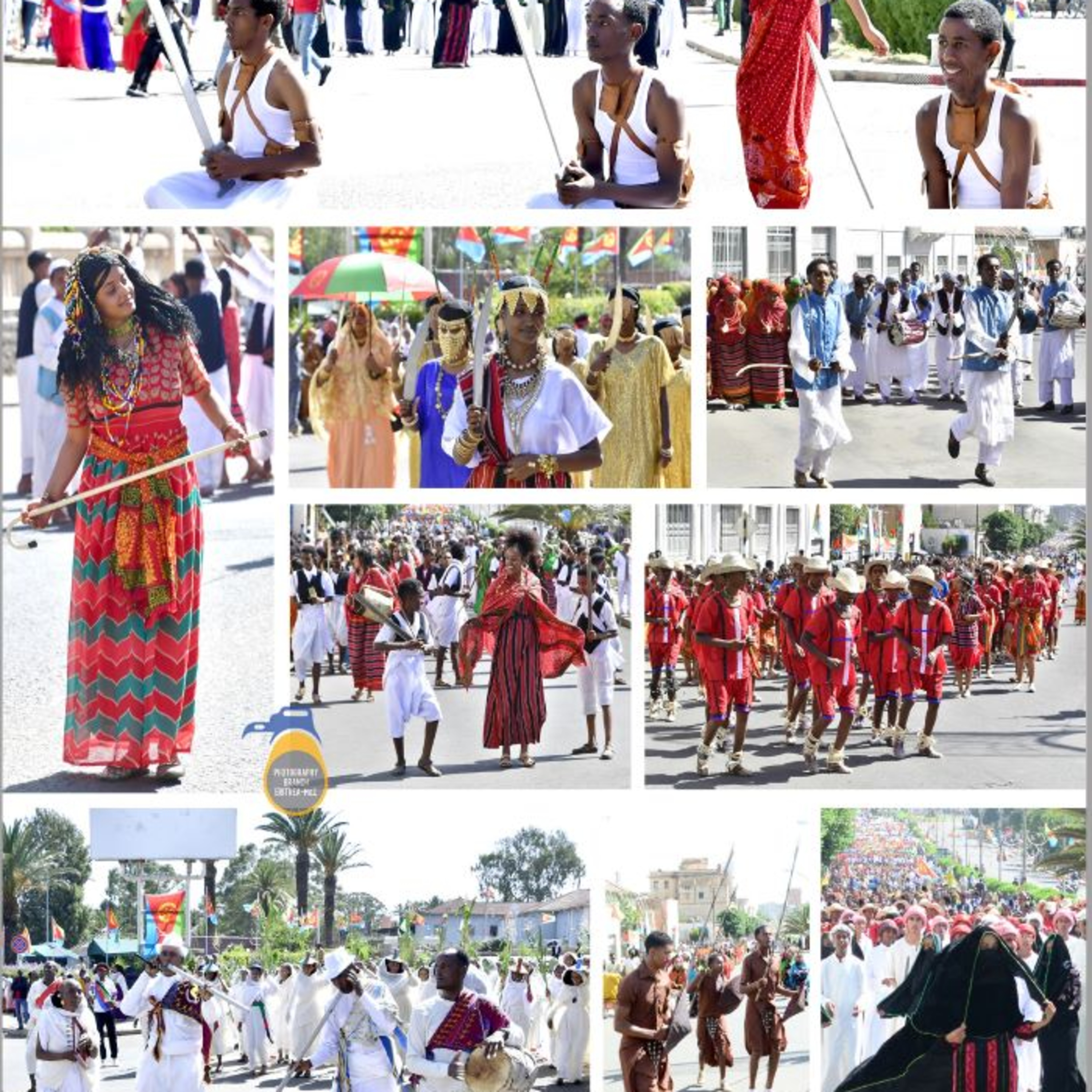
The Other Side of EritreaA Tapestry of Triumph: A Celebration of Independence, Equality, and InclusionThis episode from shabait by Bana Negusse, "A Tapestry of Triumph: A Celebration of Independence, Equality, and Inclusion," describes Eritrea's recent independence celebrations, highlighting the nation's commitment to unity in diversity. It explains how these festivities showcased the country's rich variety of people, religions, and ethnic groups, emphasizing the importance of peaceful coexistence. The article also details Eritrea's efforts to promote equality and social justice through laws, policies, and programs aimed at uplifting vulnerable populations and ensuring inclusive development. Specific initiatives mentioned include free healthcare and education, mother-tongue education, and the Minimum Integrated Household Agricultural Package (MIHAP) to support...
2025-06-1137 min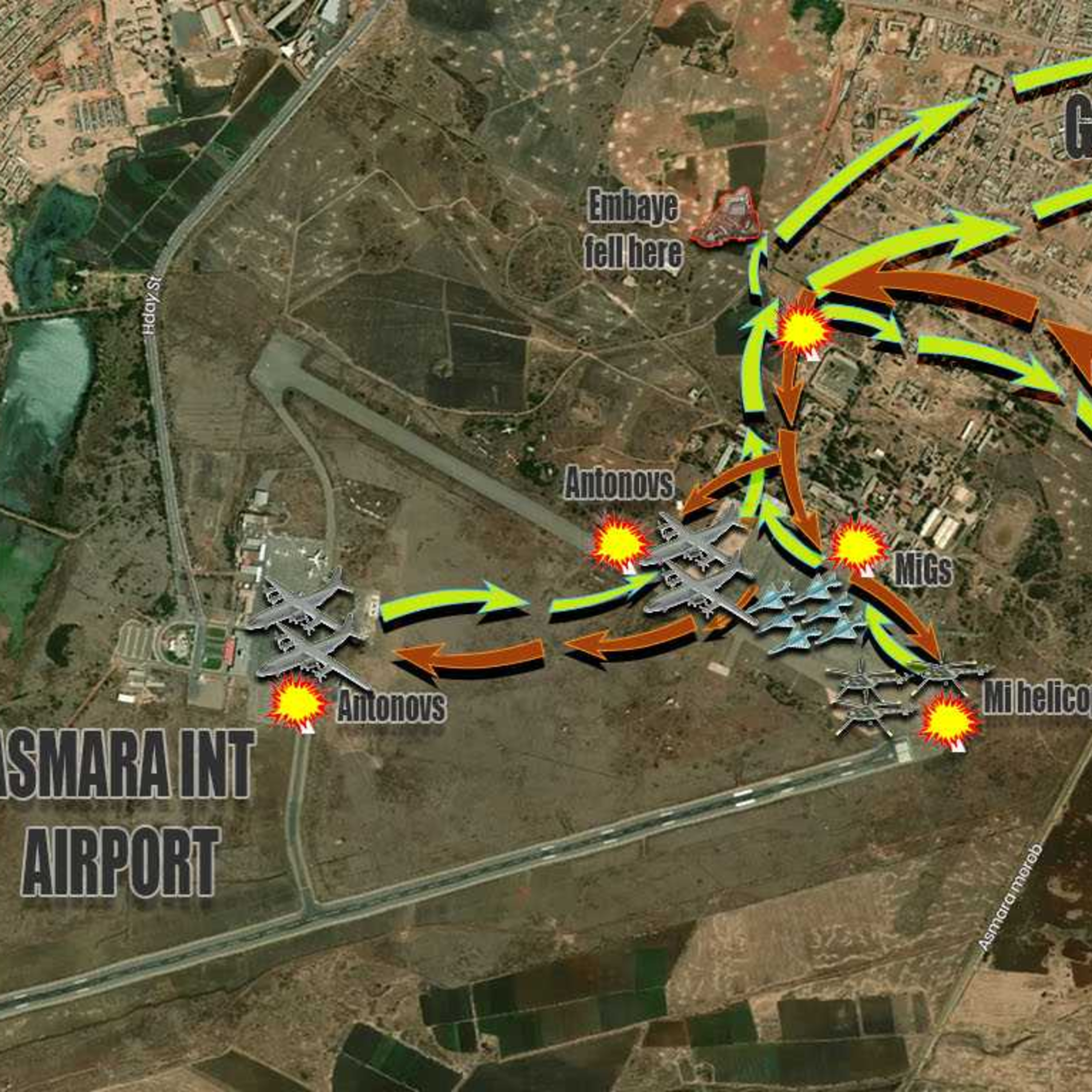
The Other Side of EritreaEritrean Commando: 18 minutes to GloryThis episode from Zantana by Azentawi describes a highly successful EPLF commando operation in 1984 at the Asmara Air Force Base, known as "The 18 Minute Wonder." This meticulously planned raid involved extensive intelligence gathering from both civilian and military sources, utilizing detailed reconnaissance and even a sand model for preparation. The operation, led by Commander Mehreteab Gebre, targeted numerous Ethiopian military aircraft, jet fuel, and arms depots, resulting in the destruction of 33 aircraft and significant infrastructure within an astonishingly short timeframe. Despite a few logistical challenges and one commando's heroic sacrifice, 15 of the 16 fighters successfully escaped, dealing a substantial political...
2025-06-0721 min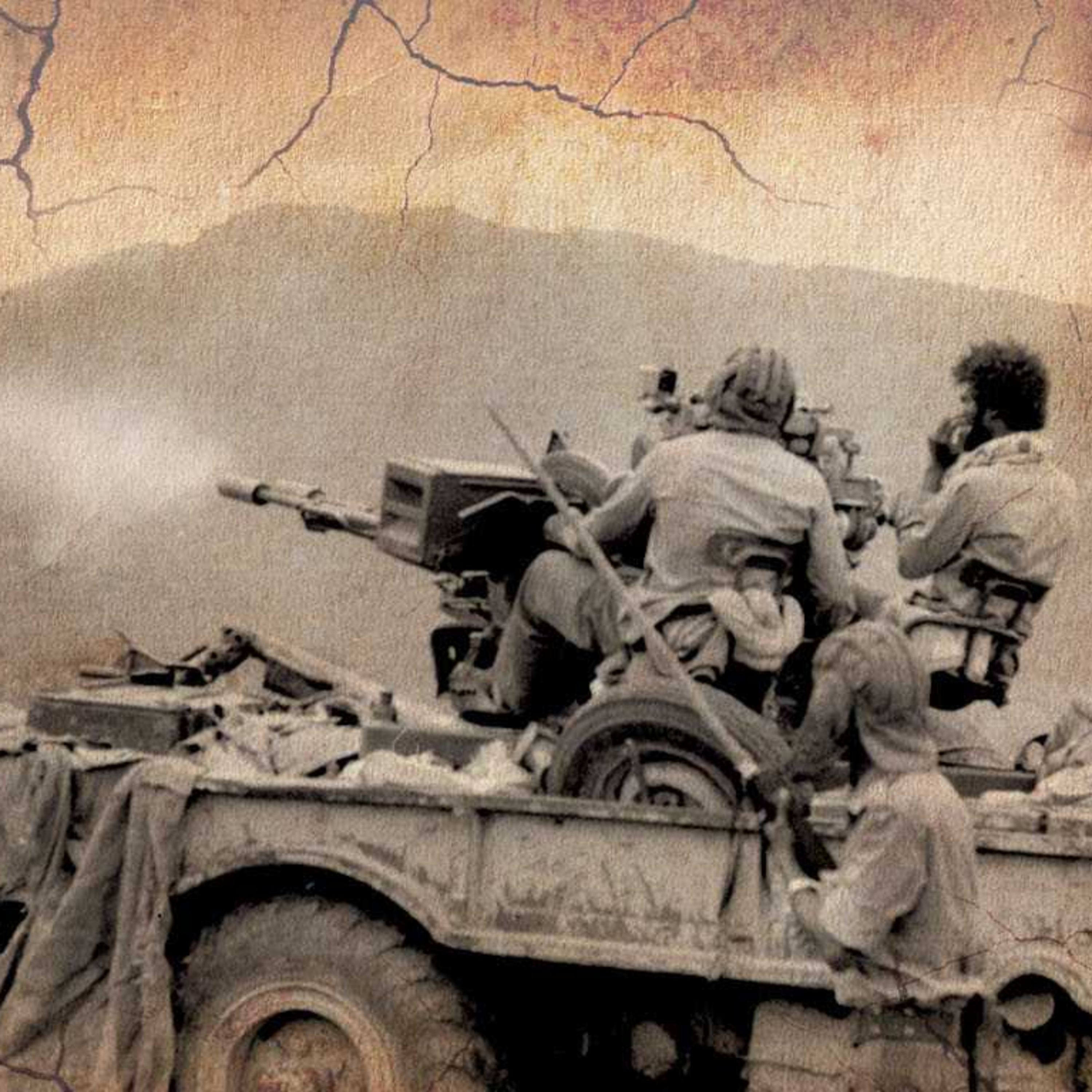
The Other Side of EritreaEritrea: Formation of the Ginda FrontThis episode from Zantana by Azentawi describes the formation and strategic importance of the Ginda Front during the Eritrean War of Independence. It explains how the Eritrean People's Liberation Front (EPLF) established the Ginda Front as part of Operation Fenkil to block Ethiopian reinforcements from reaching the port city of Massawa after its liberation. The document details the intense battles and Ethiopian counter-offensives that occurred at the Ginda Front from February to April 1990, highlighting the EPLF's defensive efforts and reinforcement strategies. Despite relentless Ethiopian assaults, the text emphasizes the EPLF's success in holding the Ginda Front, preventing the Ethiopian...
2025-06-0729 min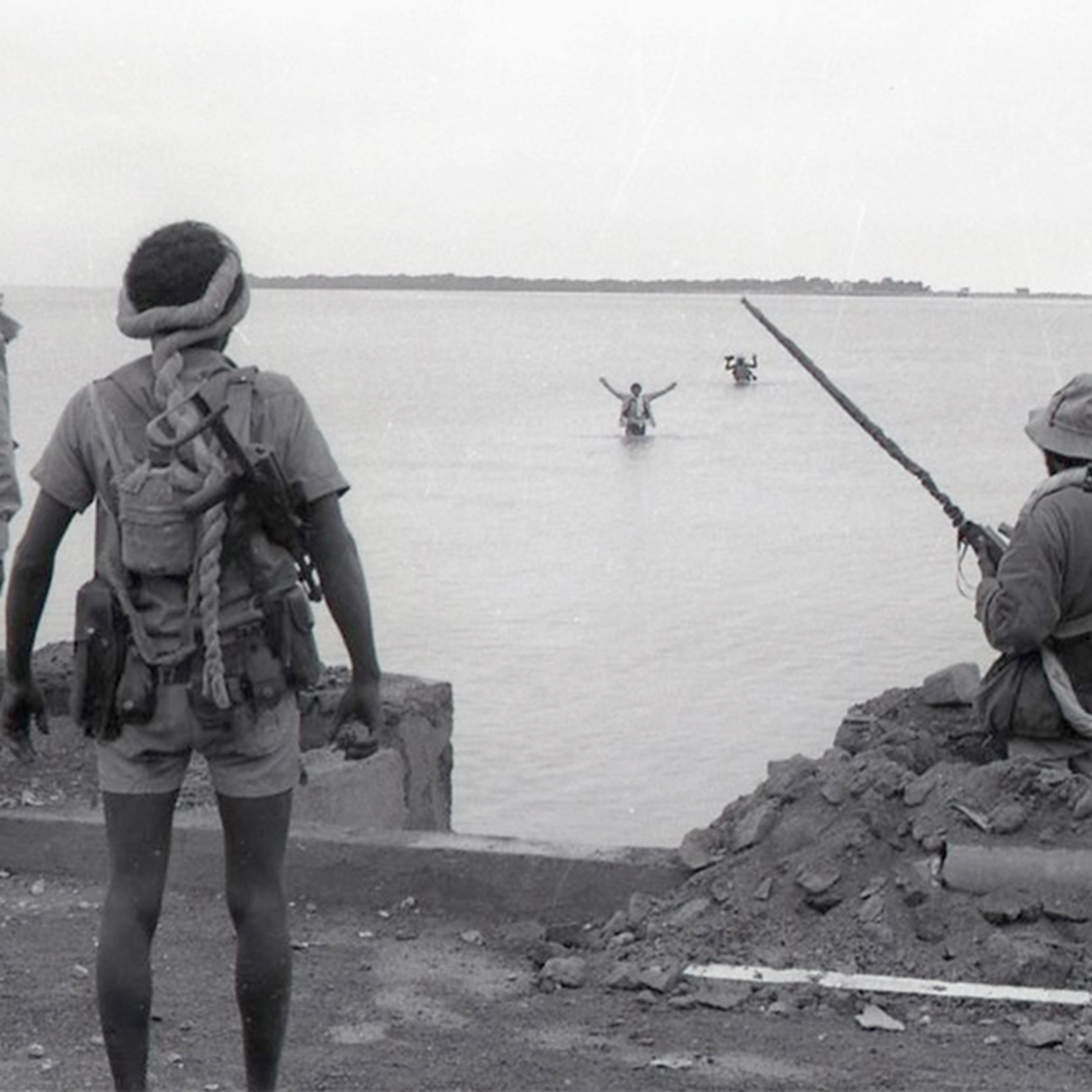
The Other Side of EritreaFenkil Operation: Game Changer in Eritrean Independence StruggleThis episode is based on Simon Weldemichael's article and it details the Fenkil Operation, a pivotal three-day battle in February 1990 that liberated the port city of Massawa and significantly altered the balance of power in the Eritrean struggle for independence. This amphibious operation resulted in heavy Ethiopian casualties and the destruction of their naval force, effectively cutting off their primary logistical artery. The victory profoundly shook the Ethiopian military establishment, leading to a loss of morale and a public admission of defeat by the Ethiopian government, which had far-reaching political consequences and ultimately hastened the end of the conflict...
2025-06-0627 min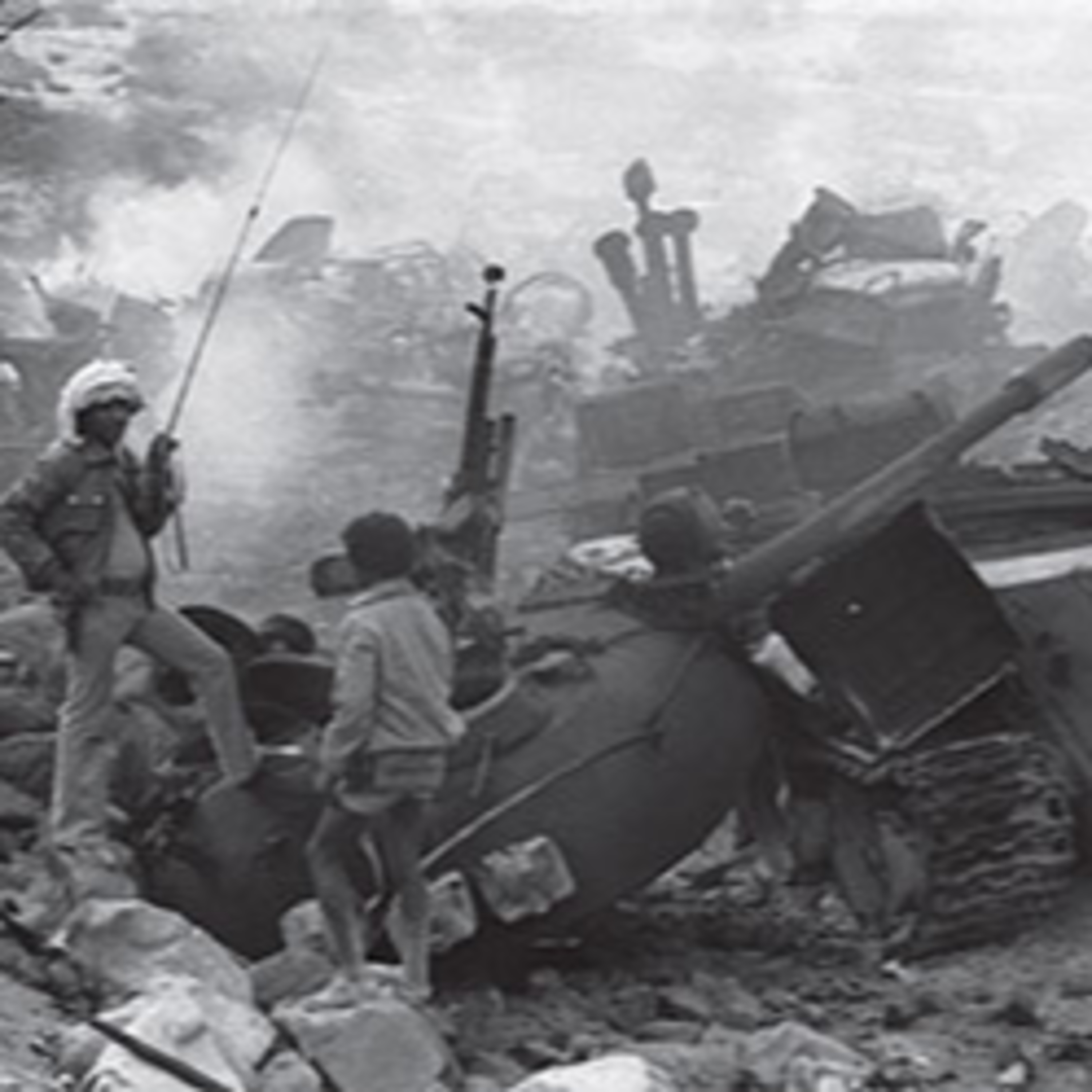
The Other Side of EritreaThe Demise of Nadew Command and Afabet's LiberationThis episode recounts the historical Battle of Afabet, a pivotal event in the Eritrean struggle for liberation where the Eritrean People's Liberation Front (EPLF) decisively defeated Ethiopia's Nadew Command in March 1988. This victory ended a military stalemate and significantly shifted the balance of power in favor of the Eritrean freedom fighters, leading to the liberation of Afabet. The source highlights the strategic importance of the battle, the overwhelming losses incurred by the Ethiopian forces, and the capture of Soviet military advisors. It also emphasizes the EPLF's superior military competence and planning, asserting that the destruction of Nadew Command had...
2025-06-0636 min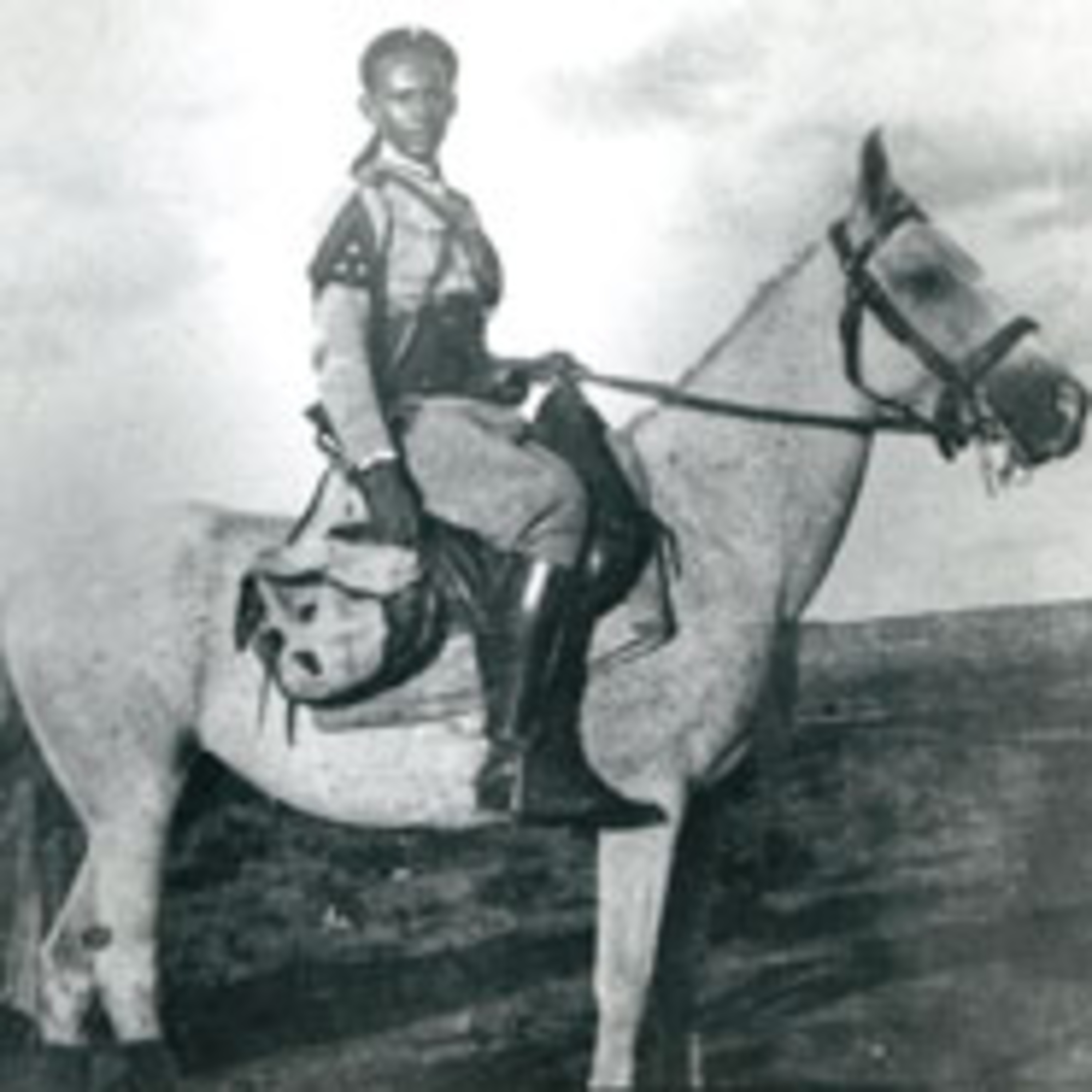
The Other Side of EritreaEritrea: A country that passed through thick and thinThis episode offers a comprehensive overview of Eritrea's tumultuous history, highlighting its persistent struggle for self-determination against successive foreign powers. It details how Italian colonization initiated a period of oppression, leading to the rise of resistance movements and a burgeoning Eritrean national identity. Following World War II, the text explains how British interim rule and a subsequent UN resolution led to Eritrea's forced federation with Ethiopia, despite strong calls for independence. Ultimately, the Ethiopian regime's disregard for agreed-upon freedoms and its brutal annexation propelled Eritrea into a thirty-year armed struggle for liberation, underscoring the enduring resilience and unity of its...
2025-06-0534 min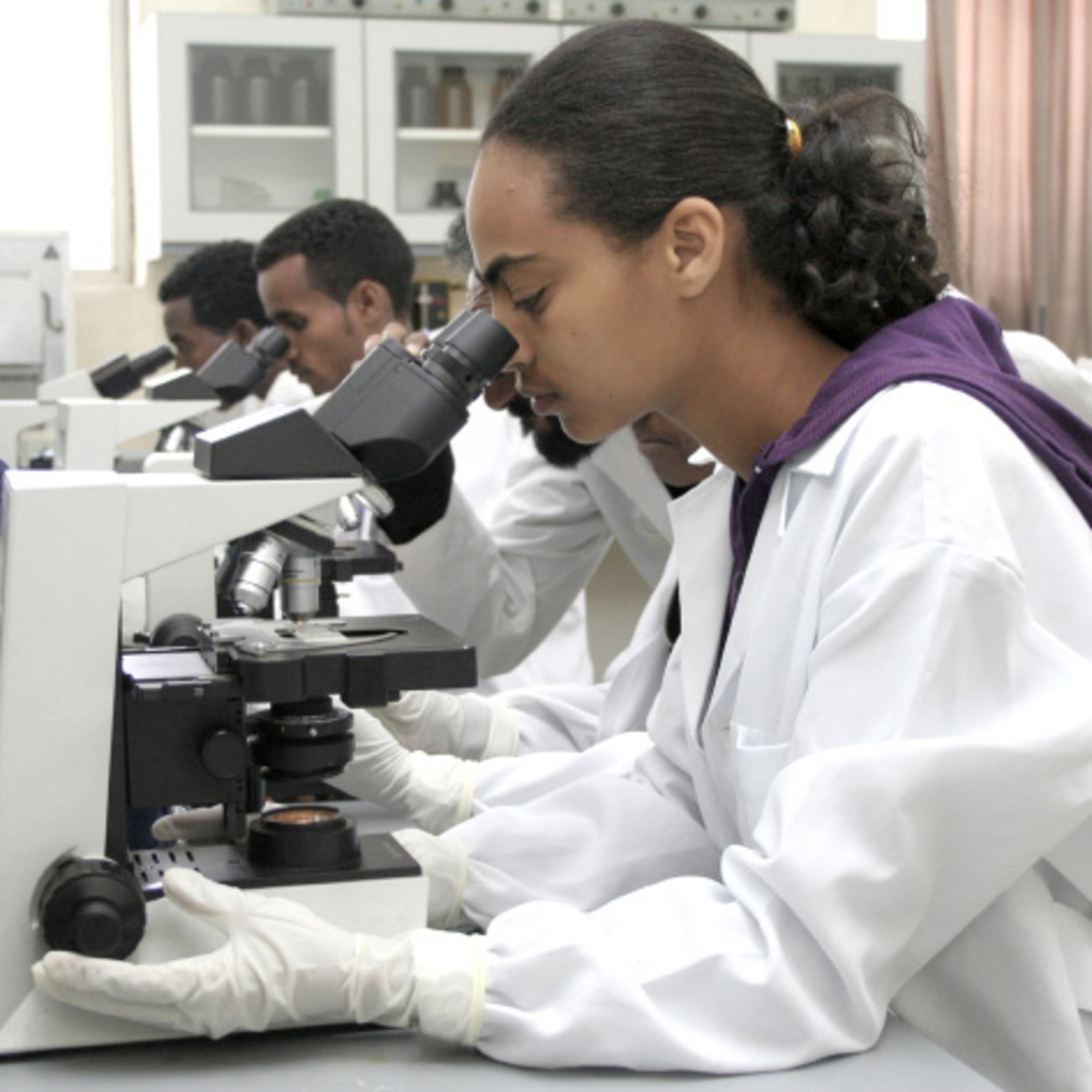
The Other Side of EritreaEritrea: Smashing Barriers, Empowering Women"Smashing all Barriers and Reshaping Outdated Societal Perceptions" by Dr. Fikrejesus Amahazion, discusses the significance of International Women's Day as a global celebration of women's achievements and a call to action for gender equality. It highlights the universal importance of gender equality as a fundamental human right and a catalyst for societal progress, despite ongoing global challenges. The article then focuses specifically on Eritrea's historical commitment to gender equality, detailing the country's initiatives, including legal frameworks, affirmative action policies, and institutional support to promote women's empowerment. Finally, it showcases tangible evidence of Eritrean women's contributions across various sectors like...
2025-06-0524 min
The Other Side of EritreaEritrea's Resilient Mining Sector: Policy, Progress, and ProspectsThe, "Eritrea's Mining Sector Government Policy, Progress to-date & Future Prospects," provides a comprehensive overview of Eritrea's mining sector, highlighting its rich geological potential and the government's strategic policies for its development. It discusses how Eritrea, being part of the mineral-rich Arabian Nubian Shield, possesses significant deposits of precious and base metals. The document emphasizes the government's commitment to diversified economic growth and sustainable resource management, enacting laws that promote a transparent and favorable environment for foreign investment while safeguarding national interests and ensuring equitable wealth distribution. Furthermore, the text addresses the challenges posed by external political pressures, particularly from...
2025-06-051h 13
The Other Side of EritreaWhich Way to the Sea, Please?This essay, "Which Way to the Sea, Please?" by Nuraddin Farah, examines the historical and persistent Ethiopian desire for direct access to the sea. Farah traces this ambition through the actions and declarations of various Ethiopian leaders, including Kings Yohannis and Menelik, and Emperor Haile Sellassie, highlighting their repeated attempts to secure coastal territories or port access through diplomacy, force, or appeals to European powers. The text emphasizes how Ethiopian leaders leveraged religious solidarity with Christian Europe and sought military aid to achieve their coastal aims, often at the expense of neighboring, less armed populations like the Somalis and...
2025-06-0537 min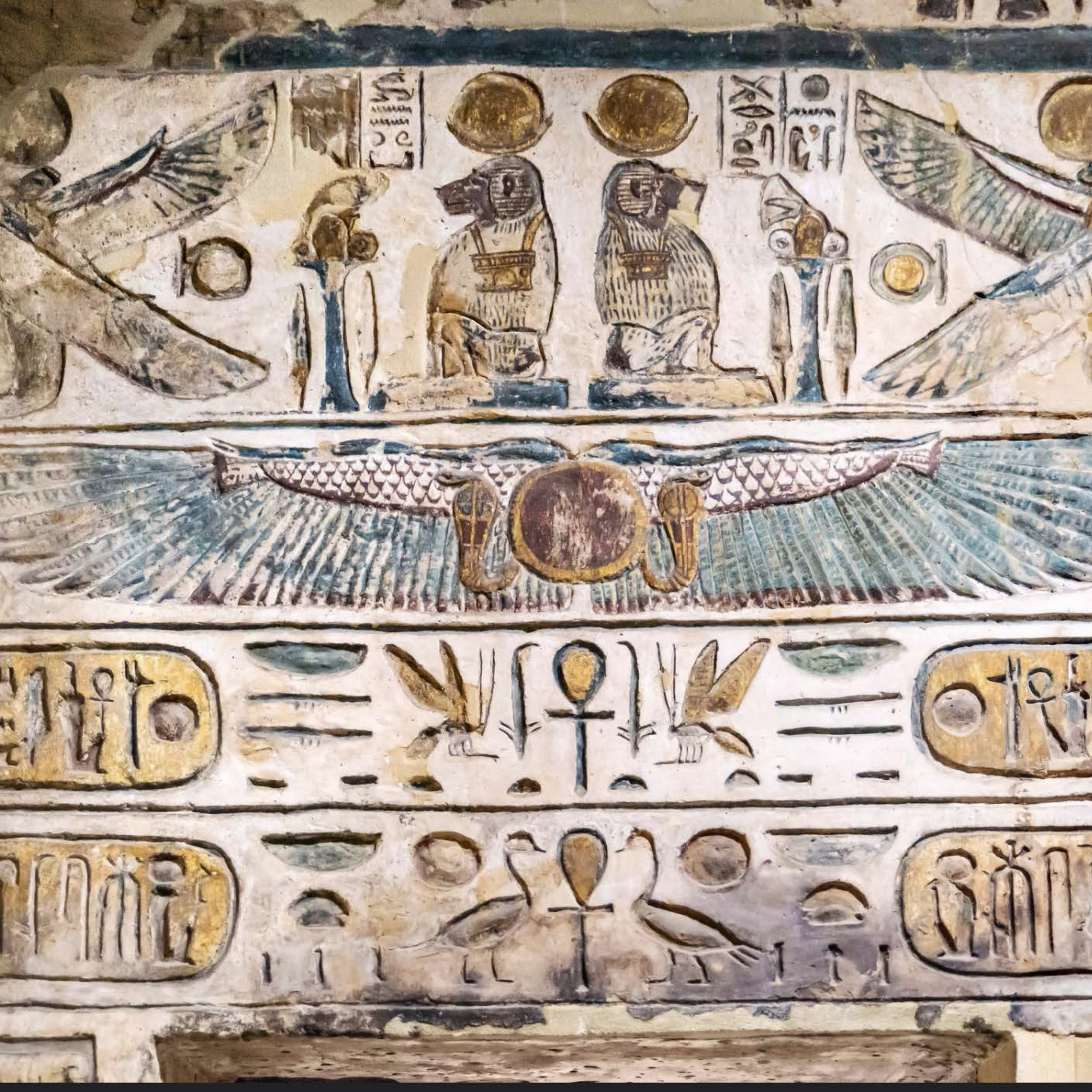
The Other Side of EritreaThe land of Punt untangled from deciphering ancient DNAThis is based on tyhe National Public Diplomacy Group’s Quarterly Online Magazine, March Publication explores the historical and geographical mystery of Punt, an ancient land from which Egyptians imported exotic goods, including Hamadryas Baboons. It highlights how ancient Egyptian records and artwork depict these baboons and their origins, despite lacking a precise location for Punt. The text then examines scientific attempts to pinpoint Punt's location, specifically discussing isotopic analysis and DNA studies of ancient baboon mummies. These studies suggest that Punt was located in the Horn of Africa, encompassing modern-day Eritrea and eastern Sudan, offering evidence that Pu...
2025-06-0521 min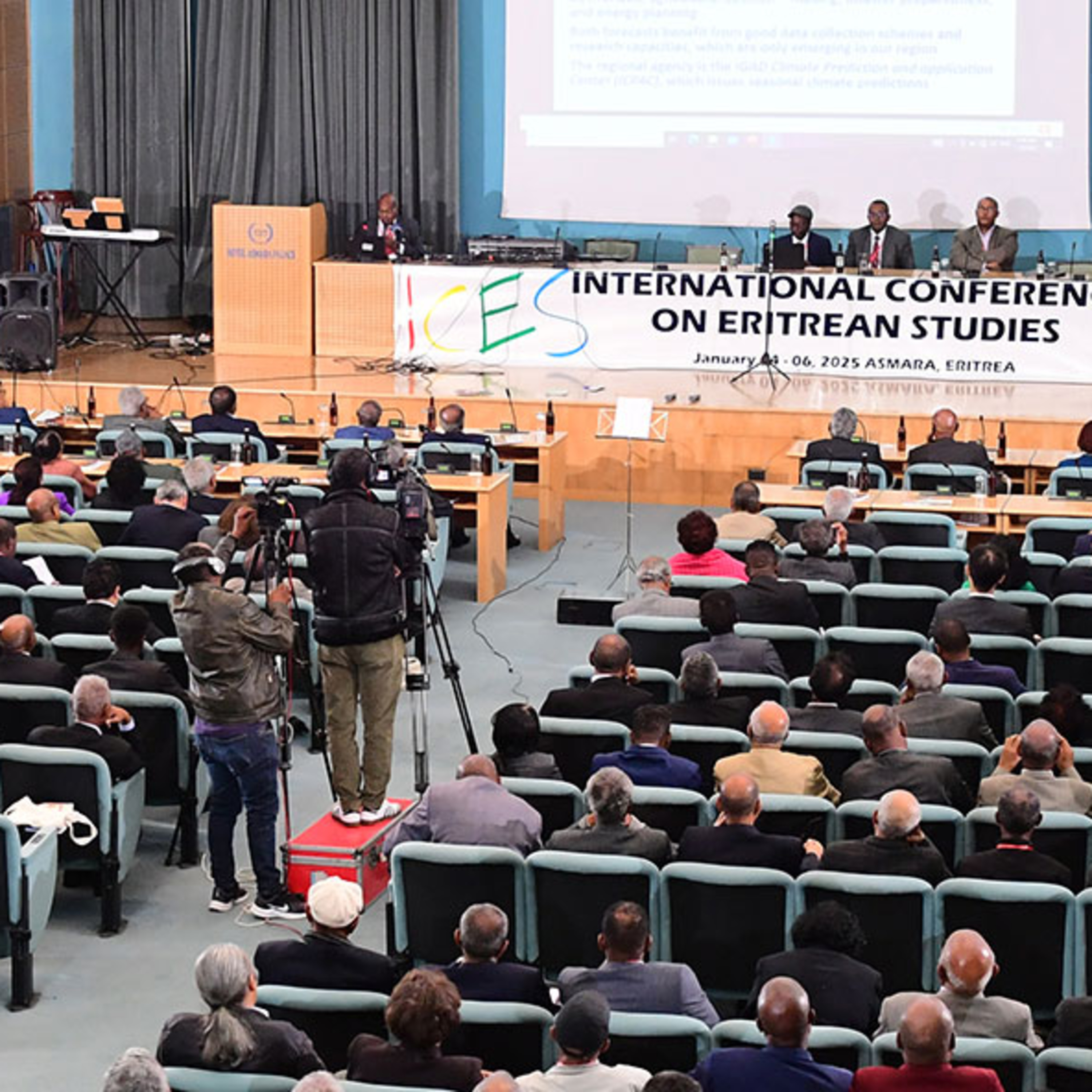
The Other Side of EritreaInternational Conference on Eritrean Studies: Interviews of Scholars and ActivistsThese episode features interviews with three individuals from the International Conference on Eritrean Studies: Professor Sarena Masa discussing the Adulis Project's archaeological findings and their impact on historical narratives, Daniel Sillas detailing his work exposing the exploitation of migrants and the censorship he faced, and Issayas Tesfamariam outlining the National Public Diplomacy Group's efforts to reshape perceptions of Eritrea and its people. The diverse topics highlight different facets of Eritrean history, society, and identity, ranging from ancient civilization to contemporary challenges and national representation. These discussions underscore the importance of research, advocacy, and cultural preservation in understanding and presenting...
2025-06-0233 min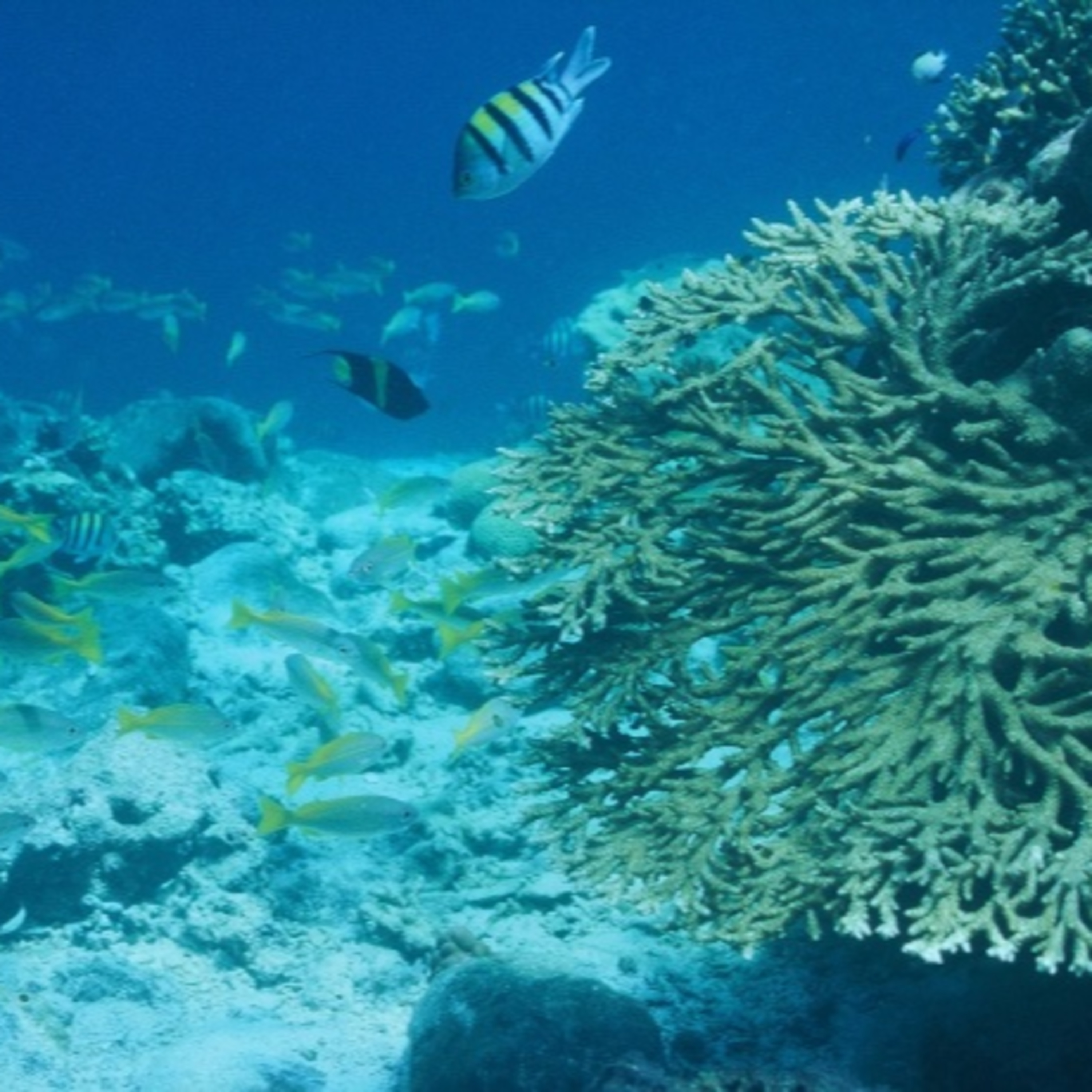
The Other Side of EritreaNorthern Red Sea Region: A Treasure Trove of TourismThis episode highlight the Northern Red Sea (NRS) region of Eritrea as a significant area for various reasons, emphasizing its natural and cultural richness. The region is presented as a prime location for tourism, offering diverse experiences from maritime activities and the beauty of its numerous islands to terrestrial landscapes with varied climates and ecosystems. Furthermore, the NRS holds substantial archaeological and historical importance, containing evidence of ancient trade routes, early human evolution through significant fossil discoveries, and notable sites reflecting different historical periods, including ancient ports and religious landmarks. The texts collectively paint a picture of the NRS...
2025-06-0230 min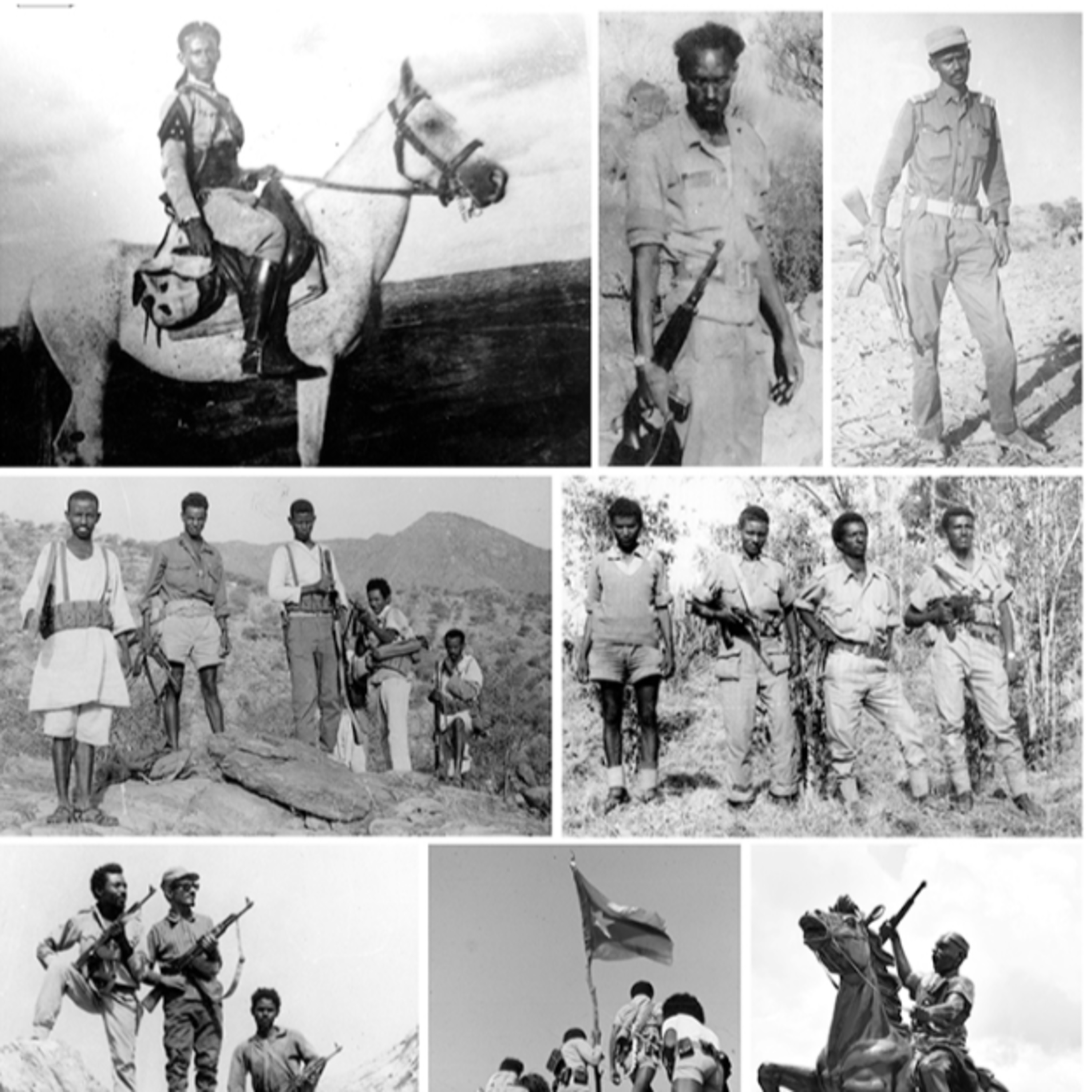
The Other Side of EritreaAwate’s Vision Led to another Vision & RealizationsThe episode discusses the Eritrean struggle for liberation, starting with Hamid Idris Awate's early resistance and culminating in Eritrea's independence in 1991, achieved through various military operations led by the EPLF. It explains that while gaining sovereignty was the first goal, the second, economic emancipation based on social justice, has been hindered by external hostilities and sanctions. Despite these challenges, Eritrea has defended itself and made progress in building infrastructure and achieving development targets, with the youth playing a key role in both the liberation and ongoing economic struggle. The text emphasizes that achieving an independent state was a necessary...
2025-06-0231 min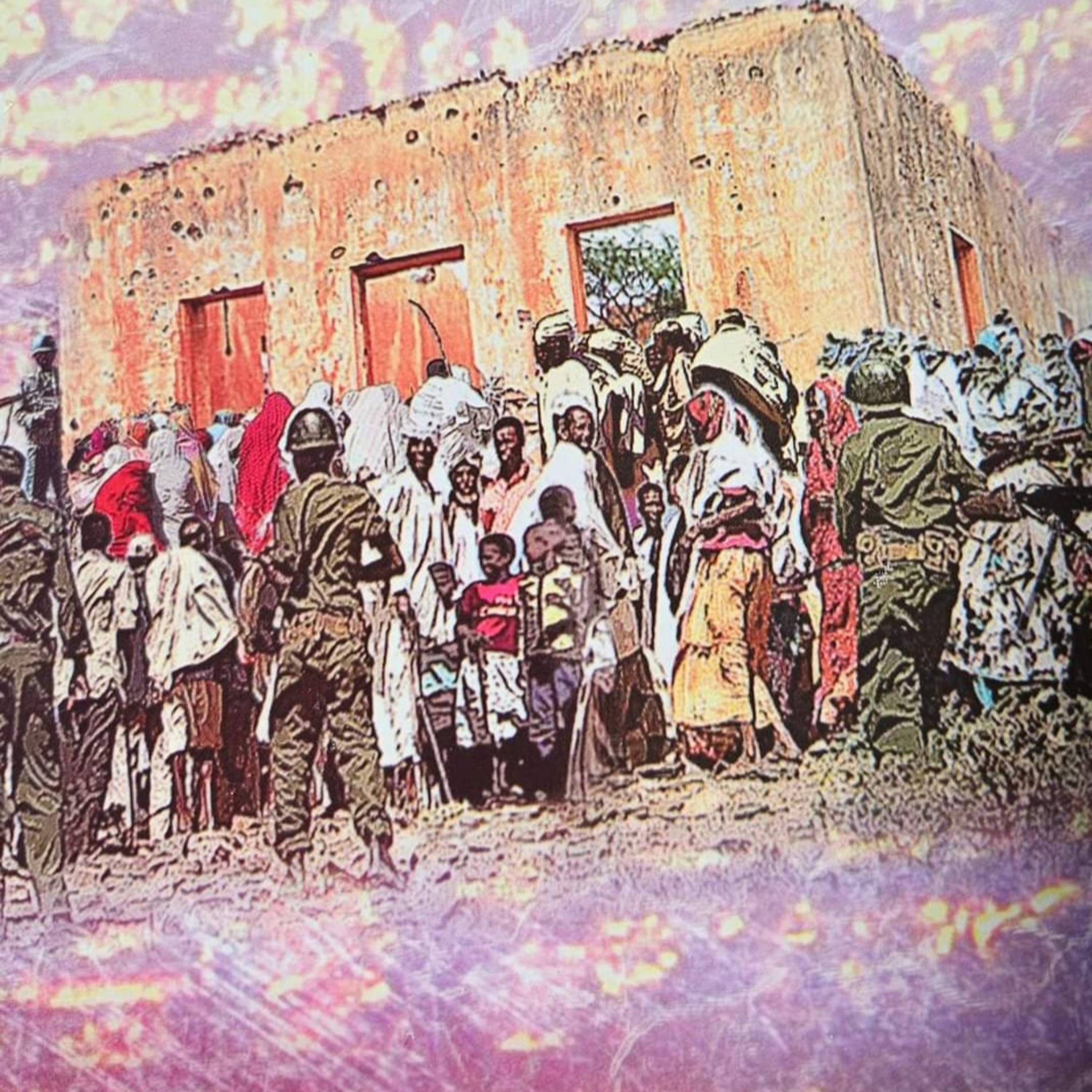
The Other Side of EritreaRemembering the Unforgettable: Ona and Besikdira MassacreThis episode discusses the massacre of Eritrean civilians by the Ethiopian army in the 1970s, particularly focusing on the atrocities committed in Ona and Besikdira in November and December of 1970. It highlights the lasting impact of these events on the memory of the Eritrean people and the importance of memorialization as a tribute to victims and a lesson for the future. The text also introduces a book by Netsereab Azazi which documents these specific massacres through research and survivor accounts. Ultimately, the source emphasizes the significance of remembering these historical injustices to learn from the past and strive for...
2025-06-0226 min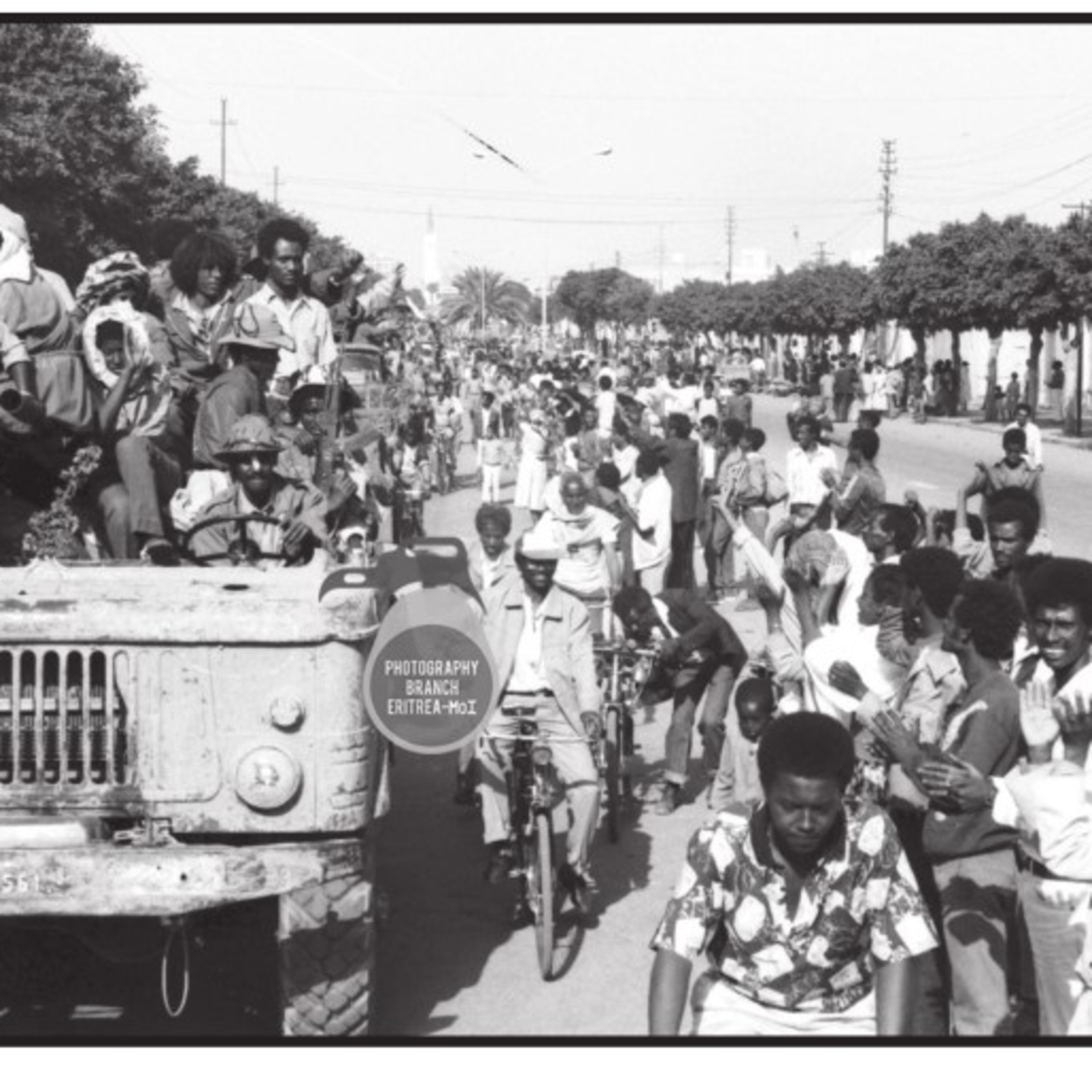
The Other Side of EritreaSignificance of May in the History of EritreaThis episode highlights the significant historical events that have occurred in Eritrea during the month of May. It covers a range of pivotal moments, from the start of Italian occupation and the formation of the first national political organization to the outbreak of the Eritrean-Ethiopian War. The piece also recounts specific acts of violence and a key military operation during the struggle for independence. Finally, it culminates in the celebration of Eritrea's independence day and its recognition by the United Nations.By Simon Weldemikael
2025-06-0213 min
The Other Side of EritreaEritrean At a Glance Part 7_Media_ A Historical OverviewPart 7 of 7This is the final part and provides a detailed overview of media in Eritrea, tracing its history from its introduction by European missionaries in the mid-19th century through periods of suppression under Ethiopian rule to its current state. It describes the structure of Eritrean media, including print, radio, and television, highlighting key publications and broadcasting services and their reach both domestically and internationally. The text also outlines the objectives of Eritrean mass media, such as promoting national unity and providing information and entertainment. Finally, it briefly mentions the Eritrean News Agency's...
2025-06-0112 min
The Other Side of EritreaEritrea At A Glance Part 6_ Health and Human Services AchievementsThis part 6 of 7 this episde details Eritrea's post-independence efforts in the areas of Health and Human Services between 1991 and 2007. Significant progress is highlighted in expanding healthcare infrastructure and training health professionals, leading to improved access to care and better health outcomes, such as reduced infant mortality and increased life expectancy. Furthermore, the text outlines the Ministry of Labor and Human Welfare's role in promoting social justice through employment services, labor inspections, a new social security scheme, and comprehensive programs for children, disabled individuals, the elderly, and families affected by conflict or disease. Overall, the document presents a...
2025-06-0118 min
The Other Side of EritreaEritrean At A Glance Part 5_Education and Sports Advancement.Part 5 of 7This episode 5 is part of a larger series, discusses various aspects of life in Eritrea, focusing heavily on the country's educational system and sports achievements. It outlines the historical progression of education from colonial limitations to current reforms aimed at universal access and development, detailing the different levels of schooling, including expanding higher education and robust vocational training programs. Additionally, the text highlights Eritrea's recent successes in international sports competitions, particularly in athletics, football, and cycling, emphasizing the rising profile of Eritrean athletes and teams on the global stage.
2025-06-0113 min
The Other Side of EritreaEritrea At a Glance Part 4_Culture_ Arts, Festivals, and ArchaeologyThis is part 4 of 7.This section provides an overview of Eritrean culture and heritage, emphasizing the cultural significance of various national and regional festivals. It highlights the diversity of traditions across the nine nationalities and details important cultural practices such as the coffee ceremony and traditional cuisine. The text also describes Eritrean arts, including architecture, music, dance, literature, painting, theatre, film, and crafts like pottery, weaving, and jewelry. Finally, it touches upon museums and libraries, alongside notable archaeological sites and the organizations dedicated to preserving and promoting Eritrea's rich cultural assets.
2025-06-0116 min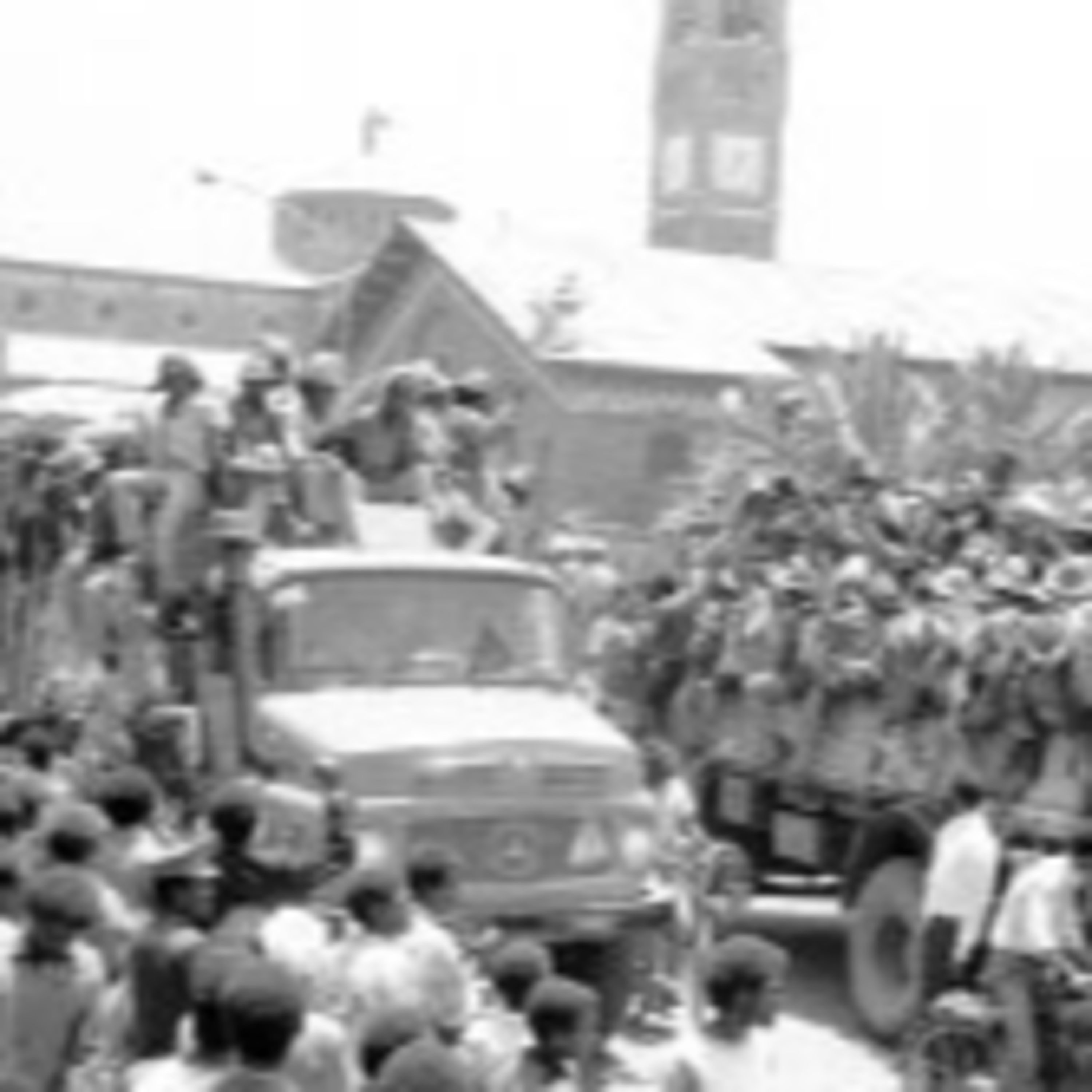
The Other Side of EritreaEritrea At a Glance Part 3_Independence and ReconstructionThis is part 3 of 7.Following a long liberation war that ended in 1991, Eritrea achieved de facto independence and faced the immense task of reconstructing its devastated infrastructure and economy. A national referendum in 1993 led to overwhelming support for sovereignty, and Eritrea gained international recognition, establishing a provisional government and beginning the process of state-building, including drafting a constitution and reforming civil services. The former liberation front transitioned into a new political movement, the People's Front for Democracy and Justice, focused on national development and public participation, promoting self-reliance through public works and national service programs. Despite significant...
2025-06-0124 min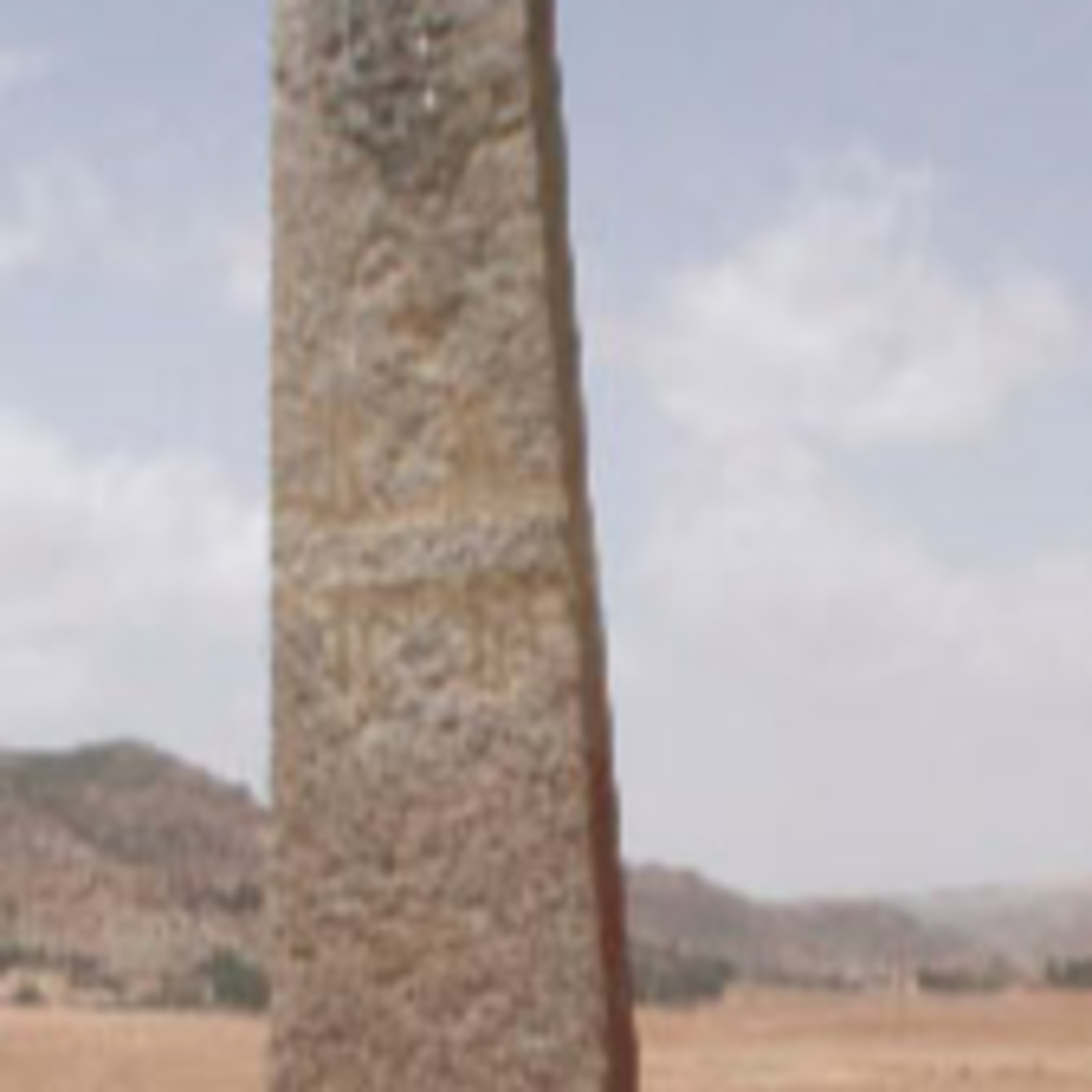
The Other Side of EritreaEritrea At a Glance Part 2: Prehistory to LiberationThis is part 2 of 7, this historical account details the long and complex history of Eritrea, tracing its development from prehistoric times with some of the earliest known human settlements, through various ancient empires that controlled regional trade and culture. It then describes a succession of later kingdoms and empires that held sway over parts of the territory, including the Beja kingdoms and the Bahre Negash. The text highlights the period of modern colonial rule under the Italians and British, followed by Ethiopian annexation after World War II. Finally, it outlines the protracted liberation struggle led by the Eritrean Liberation...
2025-06-0123 min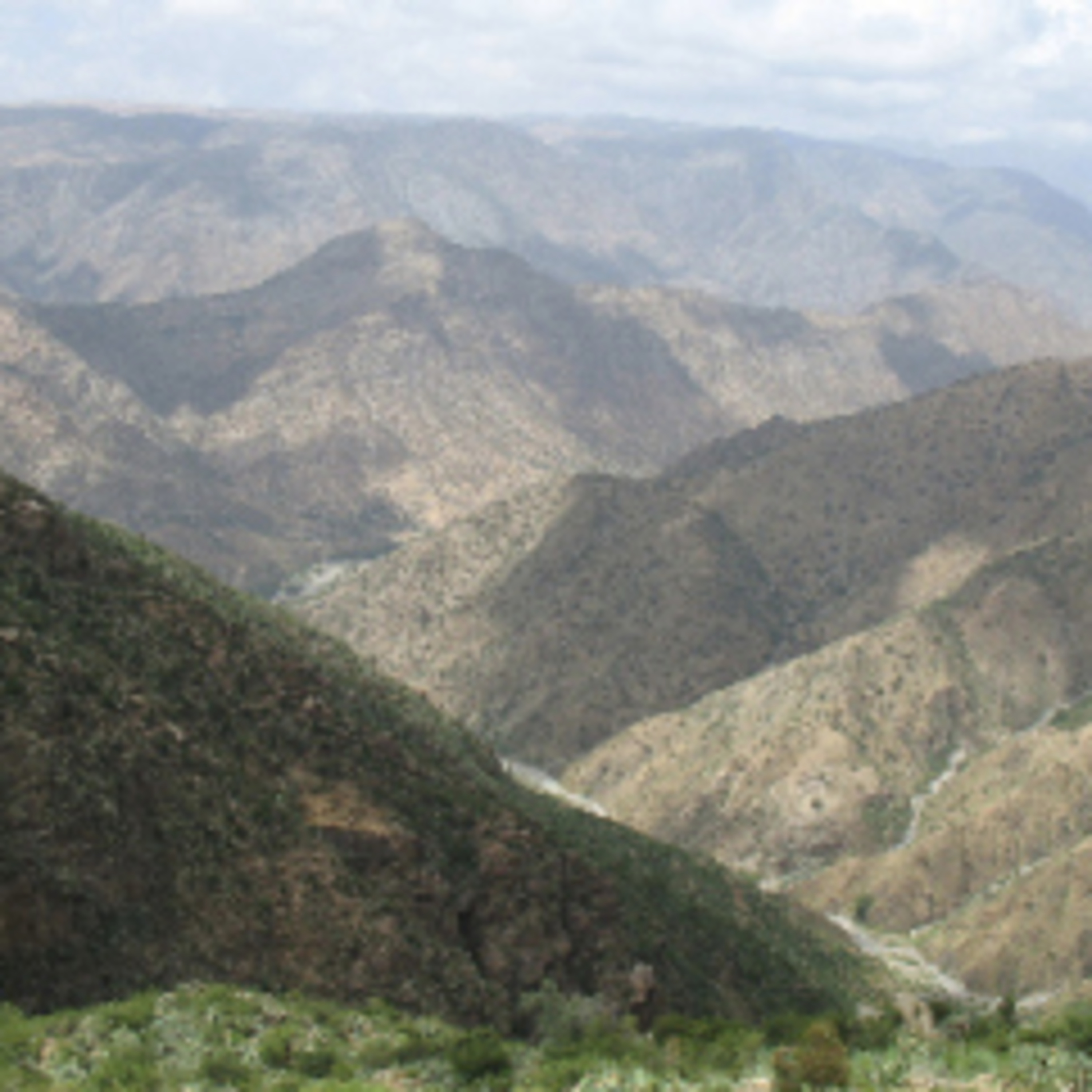
The Other Side of EritreaEritrea At A Glance Part 1: Major Outlines, Land and PeopleThis multi-part series provides a comprehensive overview of Eritrea, starting with basic facts and moving into geographic features, climate, and natural life. It then focuses on the population and culture, detailing the nine ethnic groups and major religions present in the country. The text also discusses urban and rural life, before exploring civil society with a focus on women, youth, workers, and other organizations, concluding with information about Eritreans living abroad.
2025-06-0128 min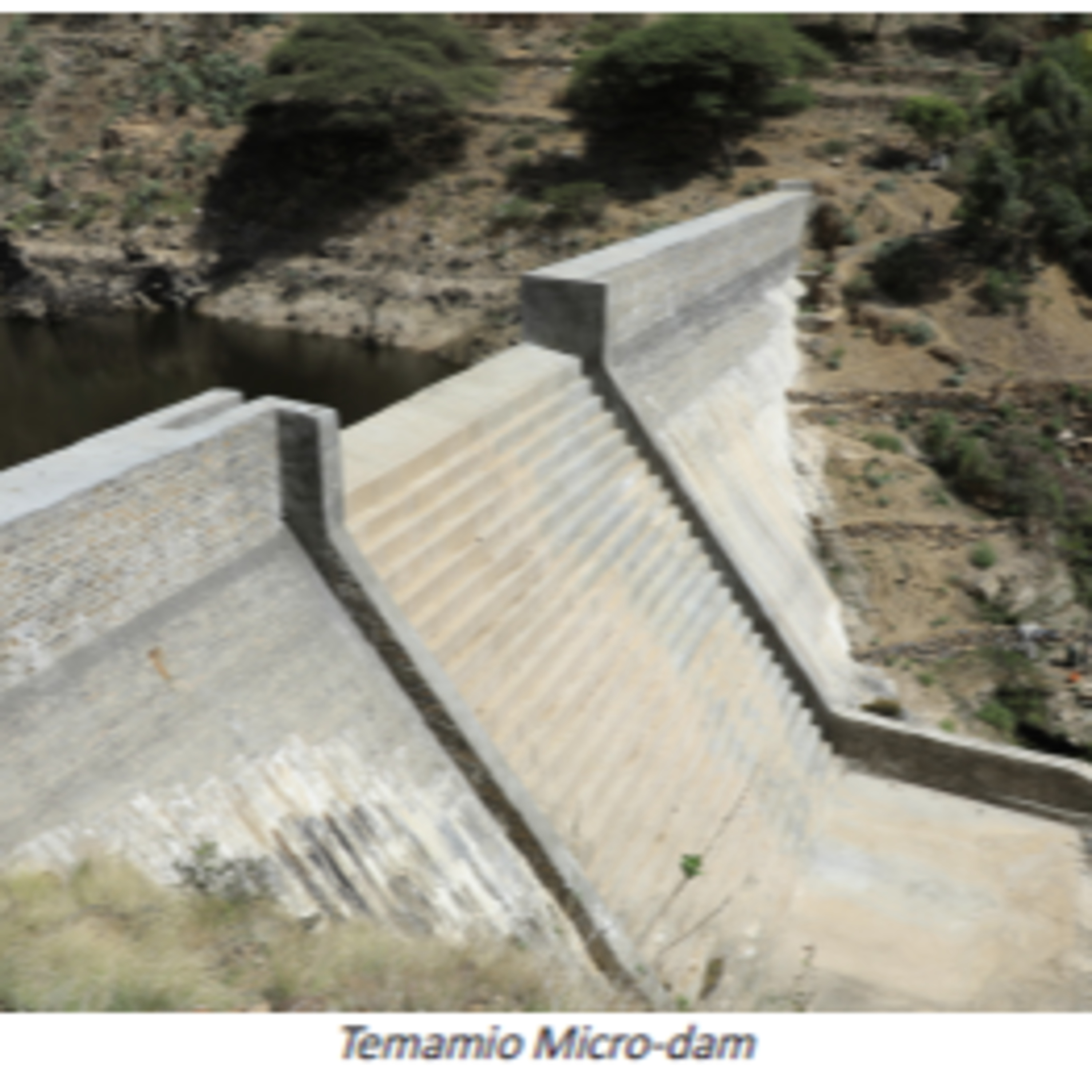
The Other Side of EritreaEritrea's Dams Drive Community TransformationThis episode outlines Eritrea's national water conservation efforts over the past 33 years, emphasizing the construction of various water reservoirs including dams of different sizes, ponds, sub-surface dams, and diversion structures. The article details the significant increase in the number and capacity of these structures since independence and highlights the government's strategy to ensure equitable distribution based on geographical factors and community needs. Testimonials from beneficiaries illustrate the positive impact of these projects on livelihoods, particularly in providing reliable access to potable water and revitalizing agricultural activities.
2025-06-0115 min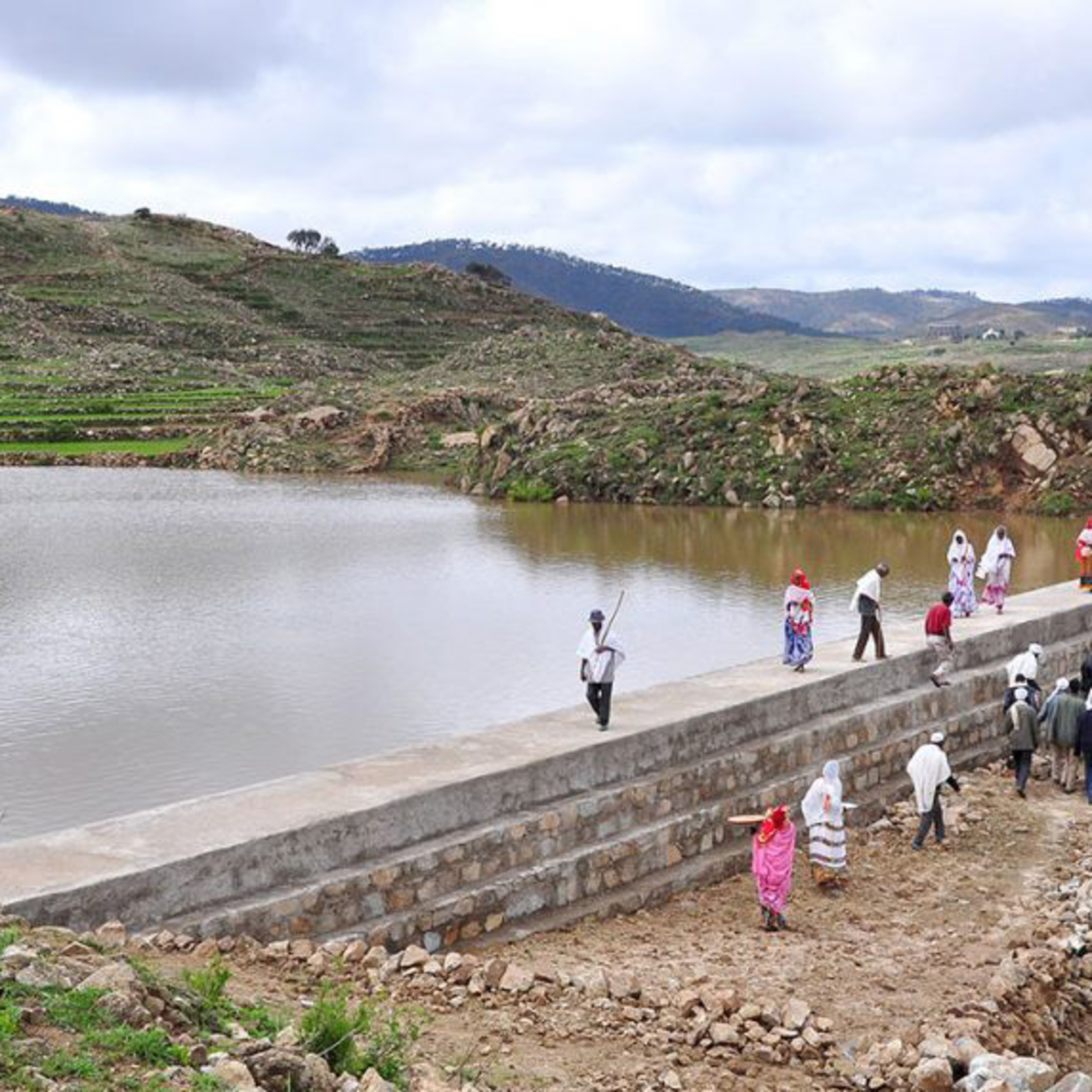
The Other Side of EritreaEritrea's Water Transformation: From Scarcity to SustainabilityThis episode examines Eritrea's water situation, highlighting its challenges with drought and limited water resources across several major river basins. It emphasizes that groundwater is the most dependable source despite pressures from overuse and climate change. The document details how Eritrea has implemented comprehensive legal and policy frameworks based on Integrated Water Resources Management (IWRM) principles to address these issues, leading to dramatic improvements in access to clean and safe water nationwide, especially in rural areas and public institutions. This progress is attributed to significant investment in infrastructure, such as increasing the number of dams and ponds, and collaborations...
2025-06-0111 min
The Other Side of EritreaEritrea: a nation forged through struggle (Part III & Final)This multi-part source details Eritrea's struggle for self-determination, beginning with the early colonial period and the loss of autonomy under Ethiopian rule. It traces the evolution from early resistance to a full-scale liberation war, highlighting the immense challenges faced by Eritrean fighters against successive Ethiopian regimes supported by various Cold War powers. The narrative focuses on key military campaigns and battles that turned the tide, culminating in decisive victories in the early 1990s leading to the liberation of major cities and ultimately, independence in 1991 after decades of arduous struggle. The source concludes by emphasizing the resilience of the Eritrean...
2025-05-3114 min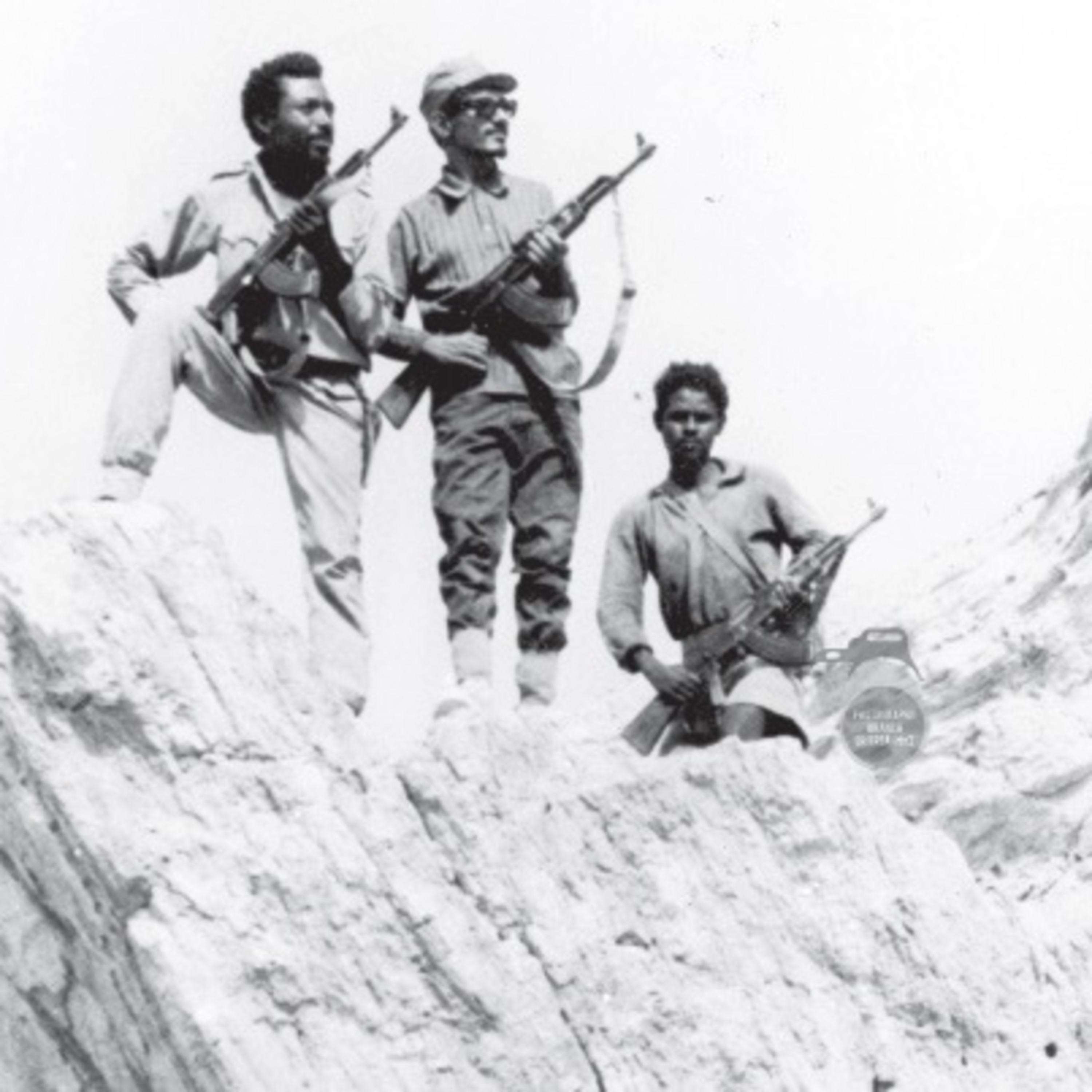
The Other Side of EritreaEritrea: A Nation Forged Through Struggle (Part II)This segment is the second part of a three-part series focusing on Eritrea's journey toward independence. It details how the United Nations' plan to federate Eritrea with Ethiopia as an autonomous unit ultimately failed due to Ethiopia's systematic dismantling of the agreed-upon structure. The source highlights the erosion of Eritrean autonomy under Ethiopian rule, the suppression of peaceful protests, and the international community's inaction in upholding the federal agreement. This ultimately led to Ethiopia's formal annexation of Eritrea and served as the catalyst for the start of the Eritrean people's armed struggle for liberation.
2025-05-3110 min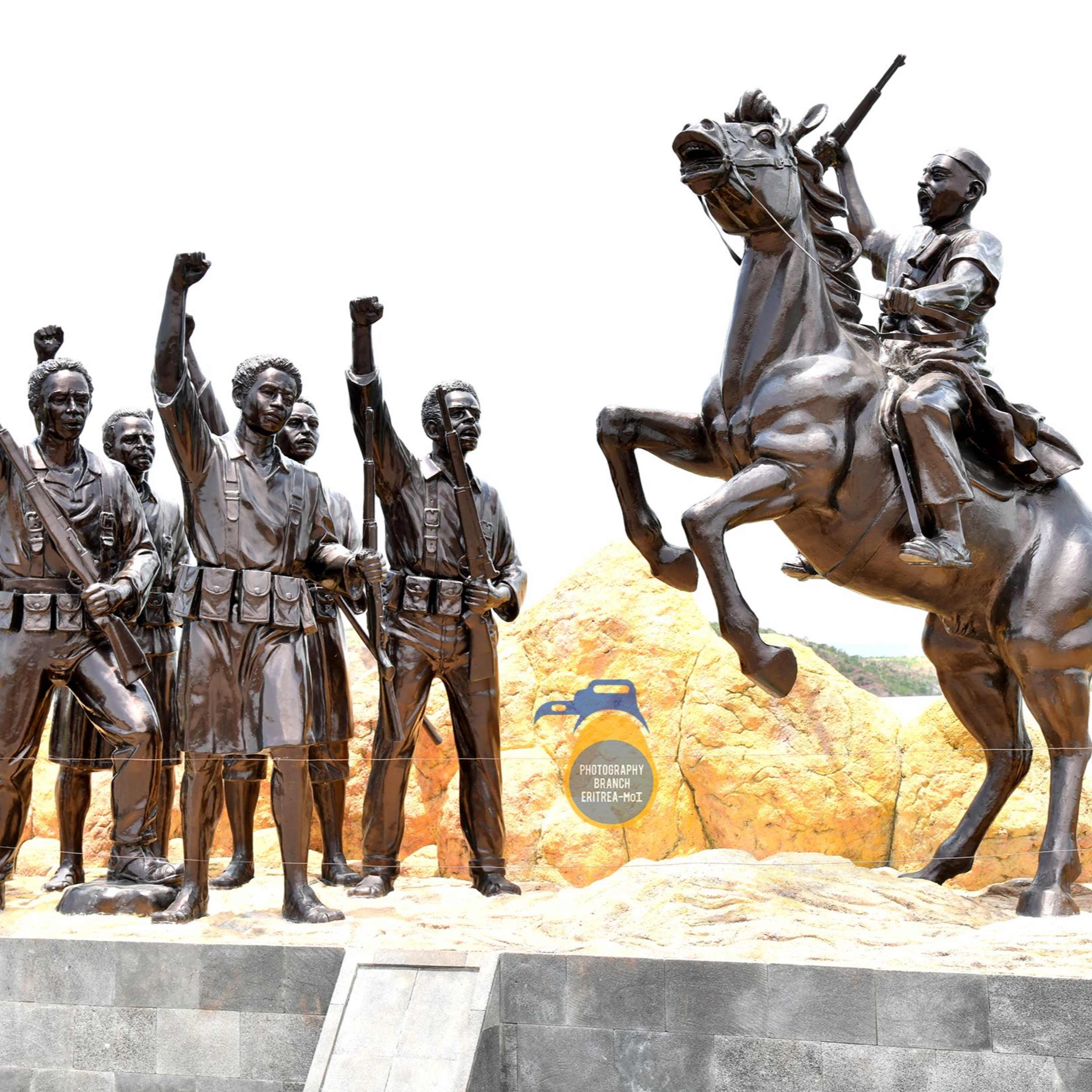
The Other Side of EritreaEritrea: Nation Forged Through Struggle (Part I)This multipart series examines the history of Eritrea, tracing its origins from the dawn of humanity in the Danakil Depression through successive periods of foreign rule and occupation. The text discusses the impact of Italian colonization, noting both the exploitation of Eritreans and the significant infrastructure development that occurred. It then details the British occupation after World War II and the subsequent denial of independence, ultimately leading to a federation with Ethiopia imposed by the UN due to Cold War strategic interests. The series highlights how Ethiopia systematically dismantled Eritrean autonomy, setting the stage for a long struggle for...
2025-05-3112 min